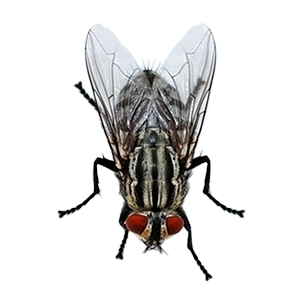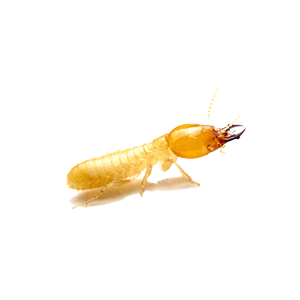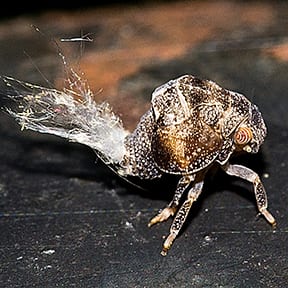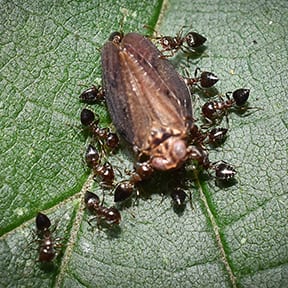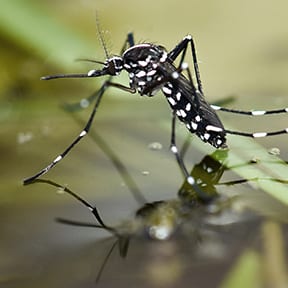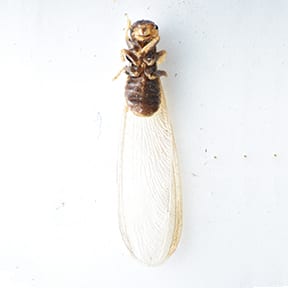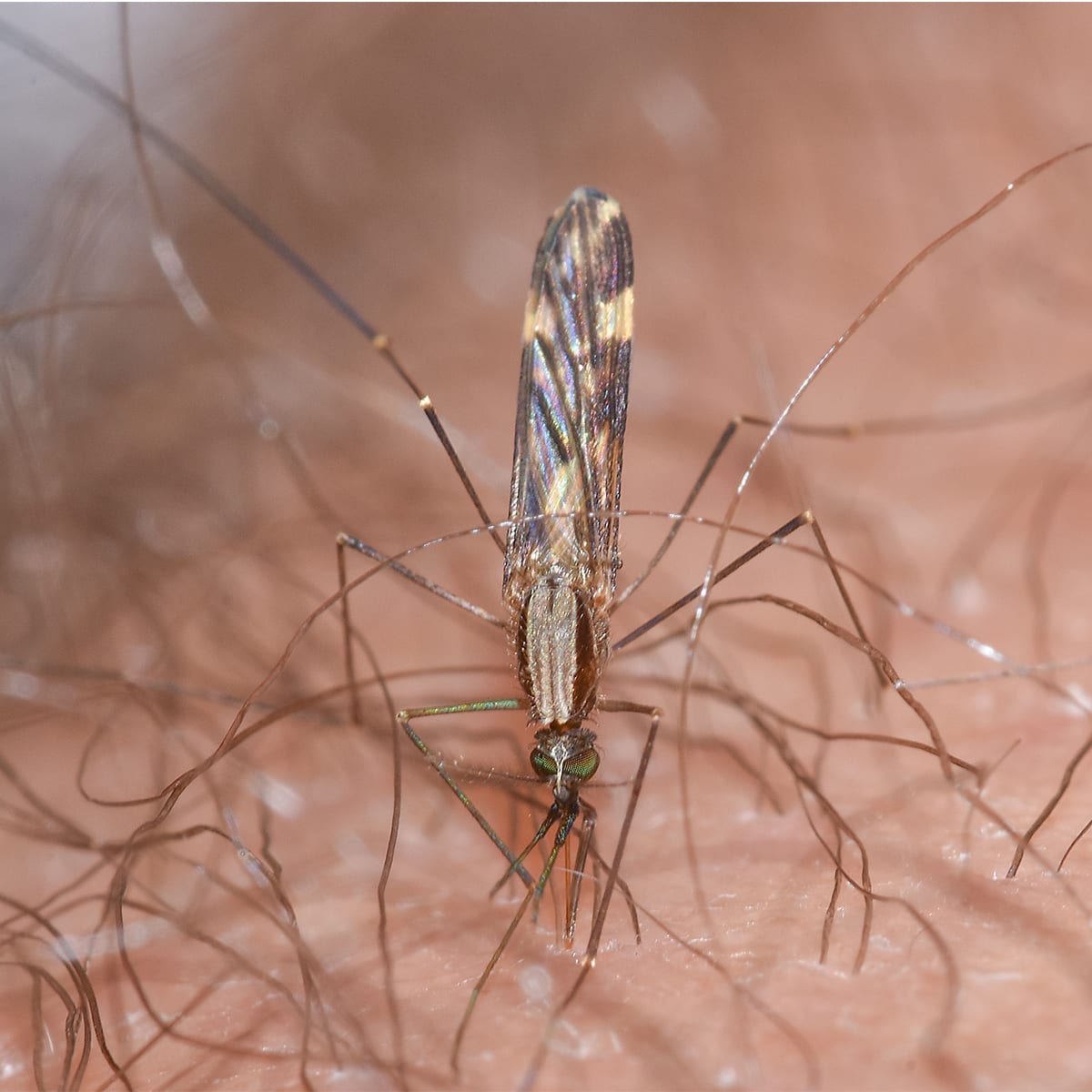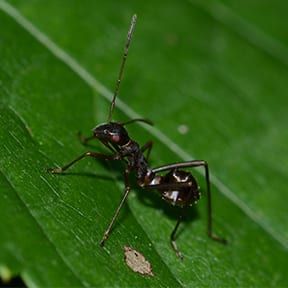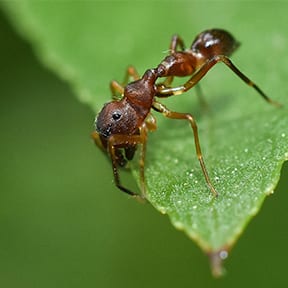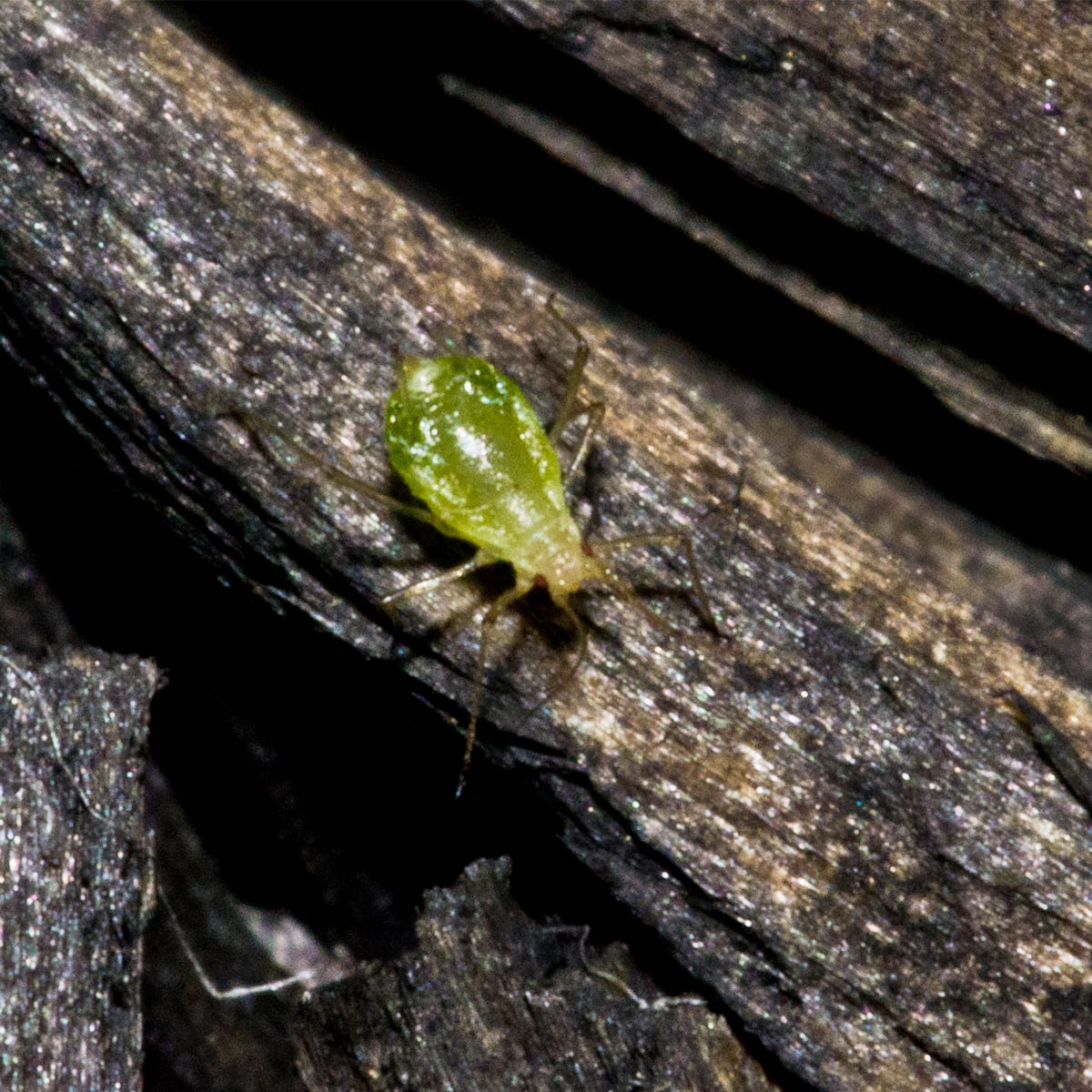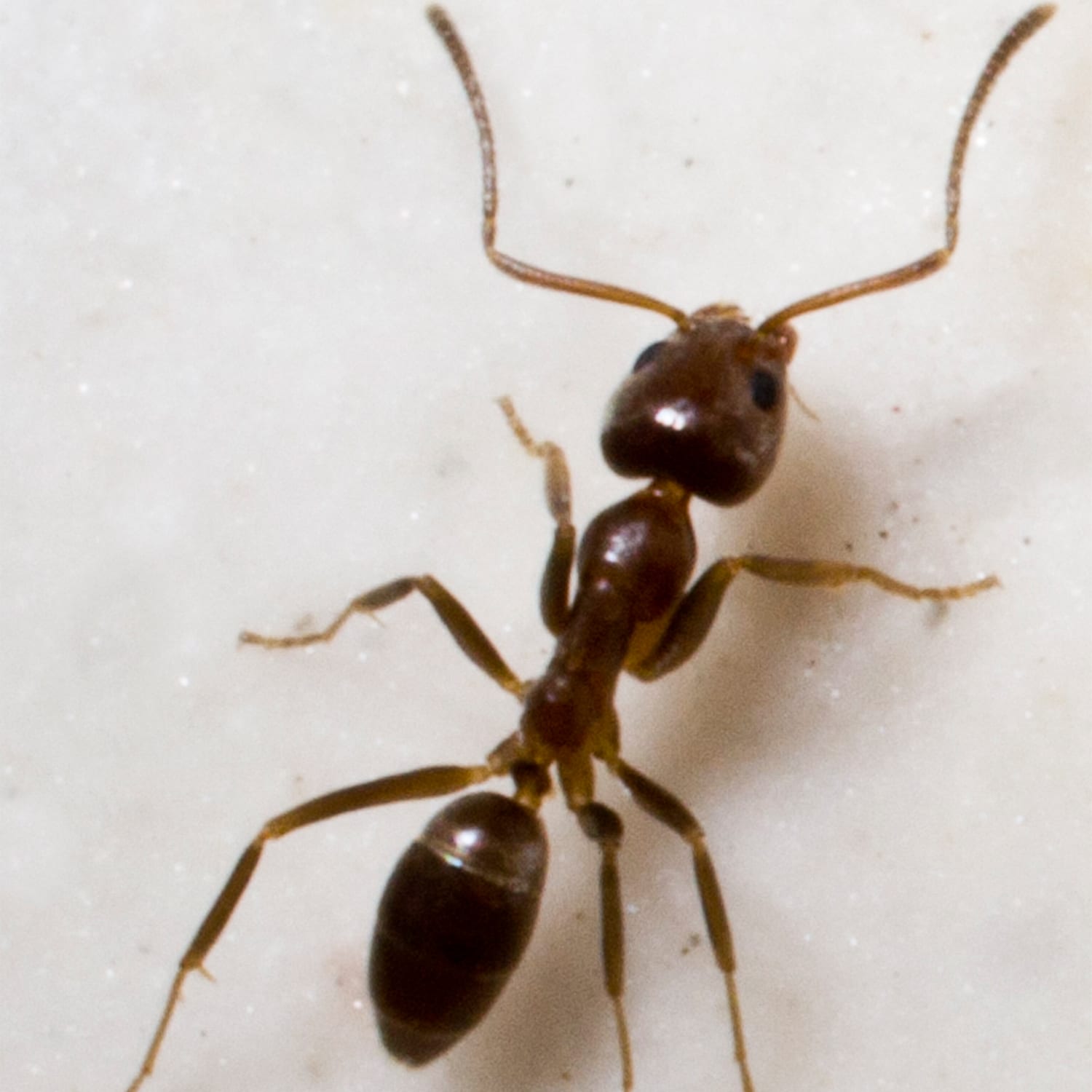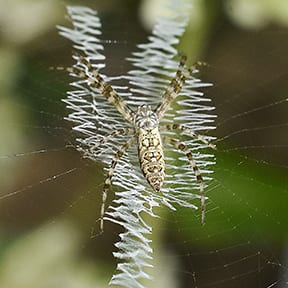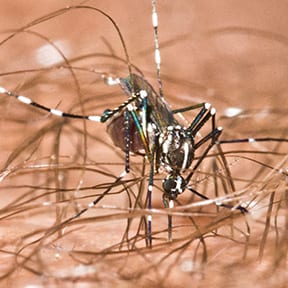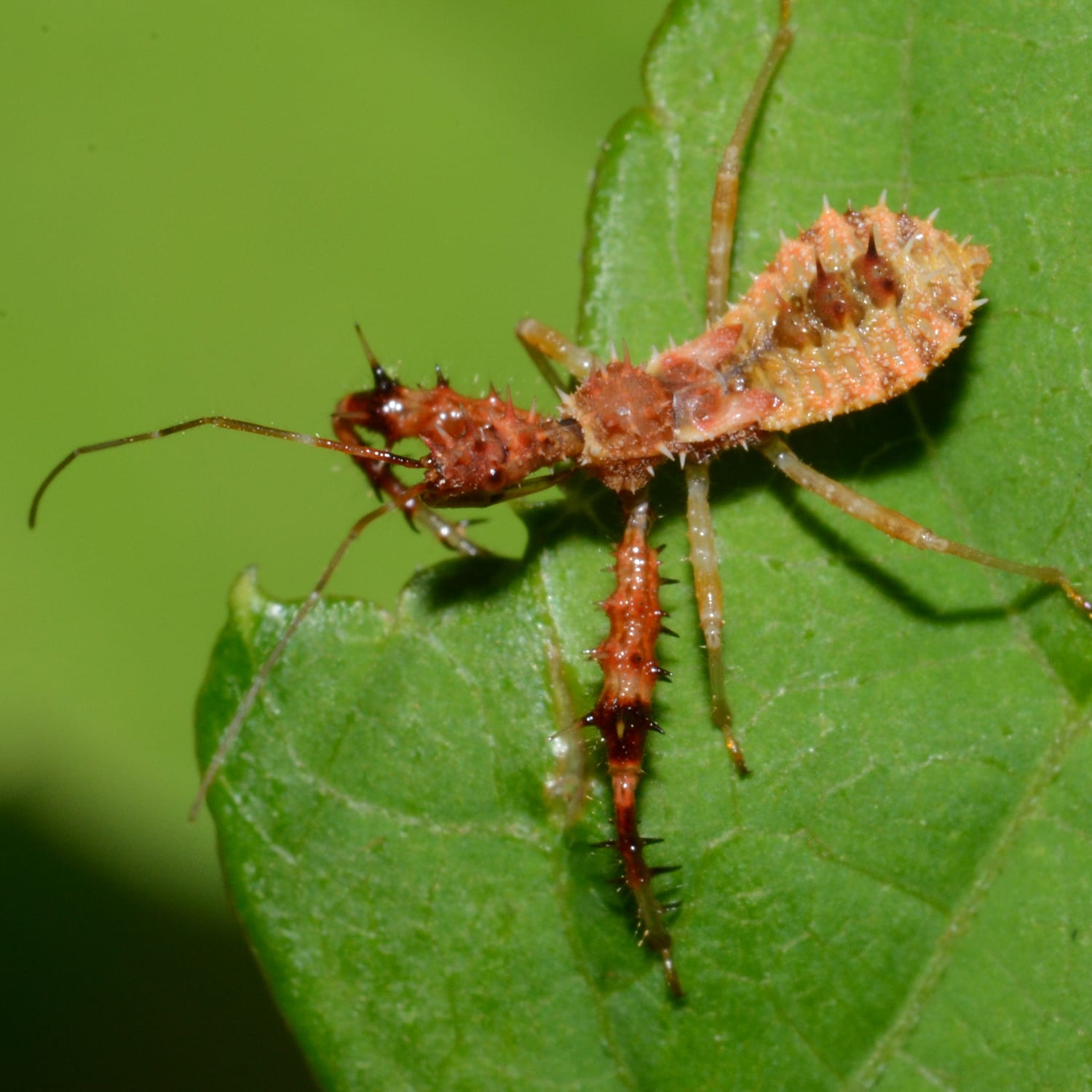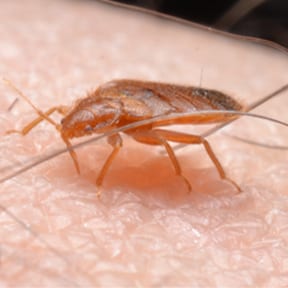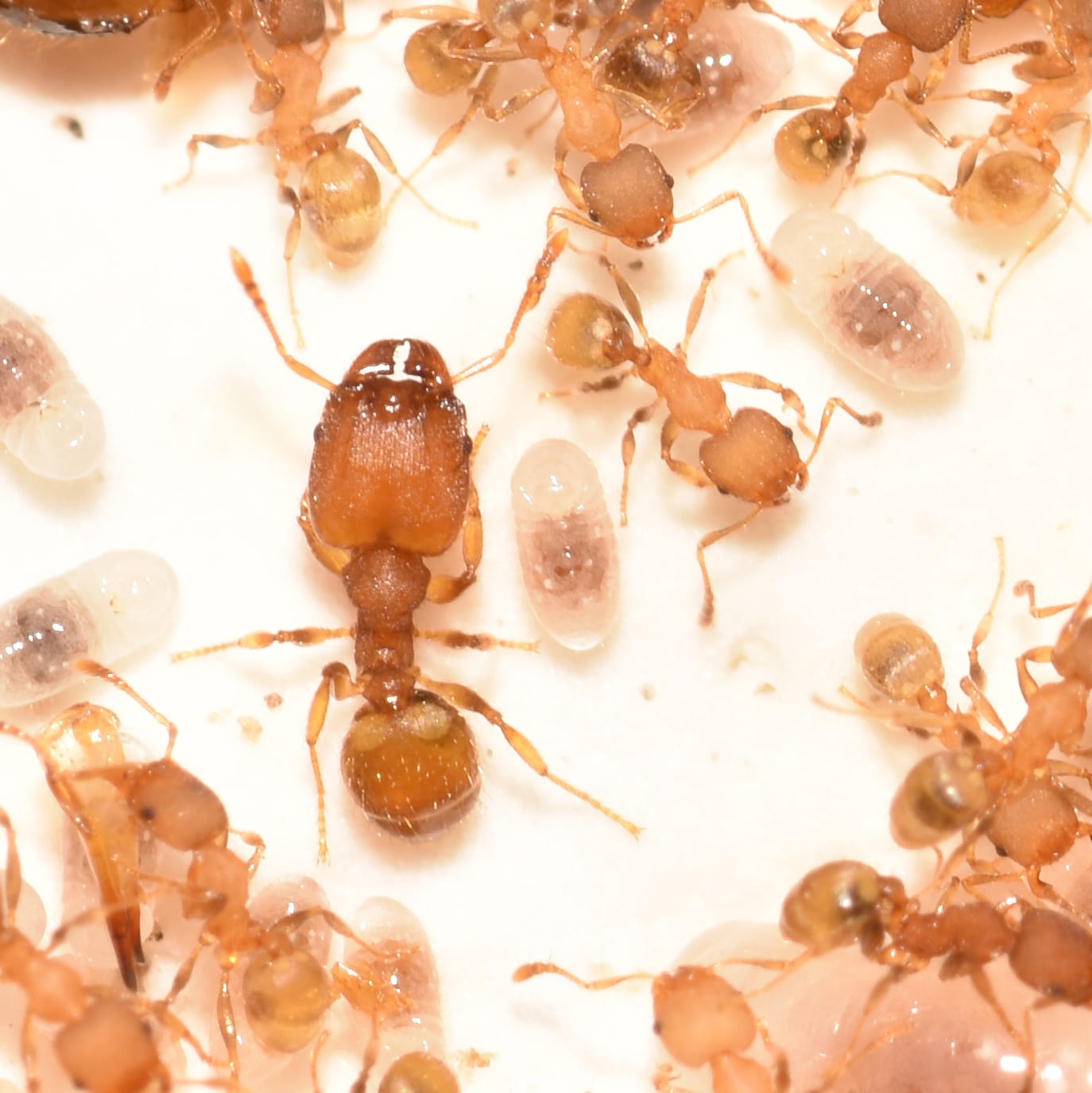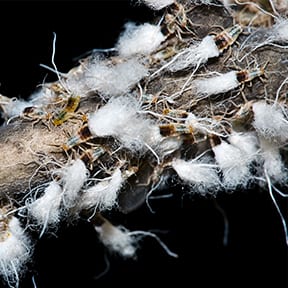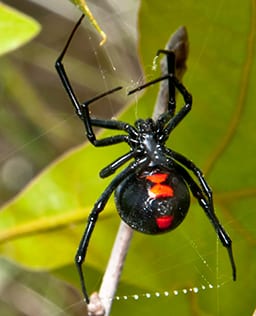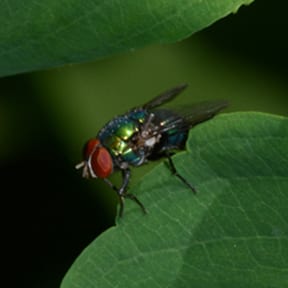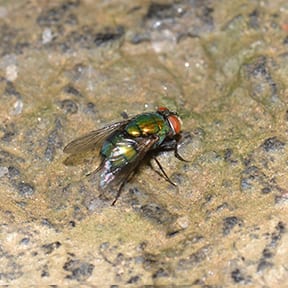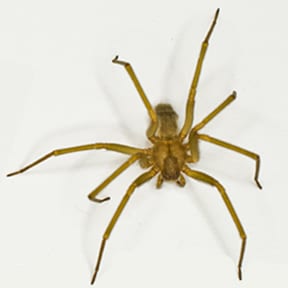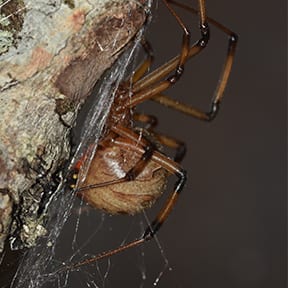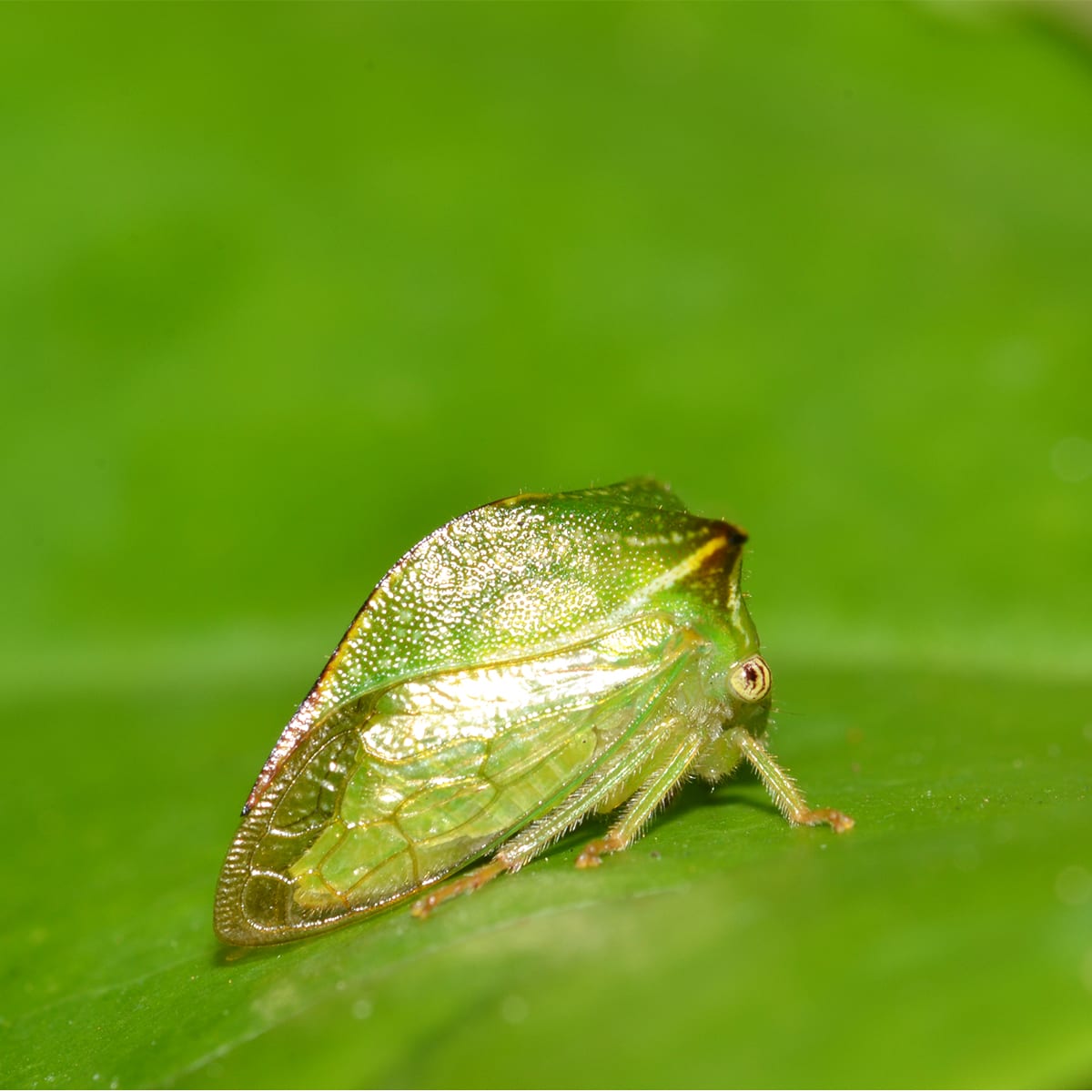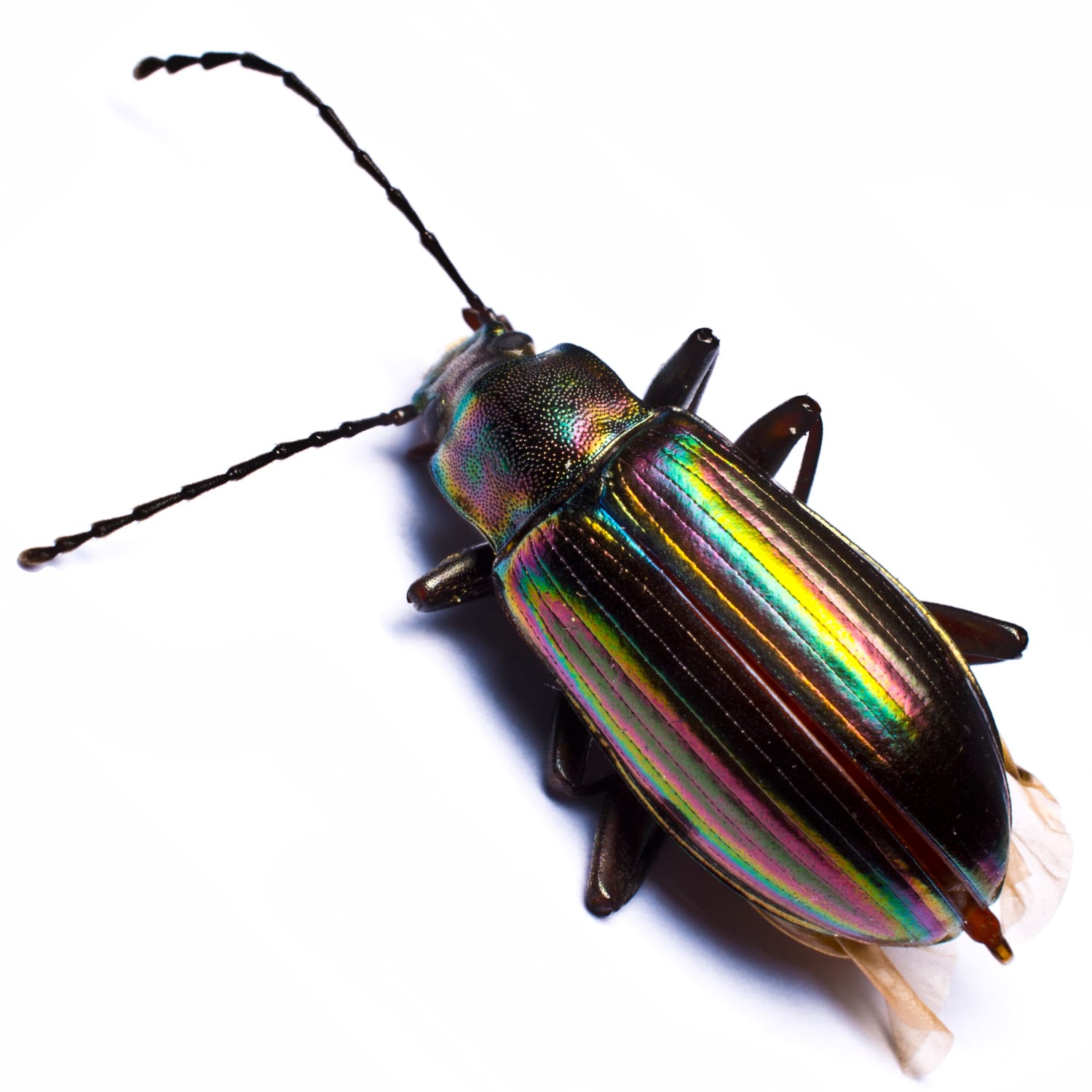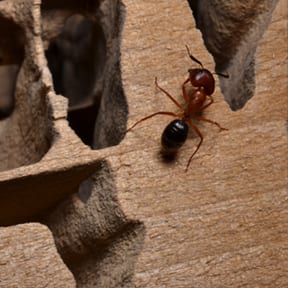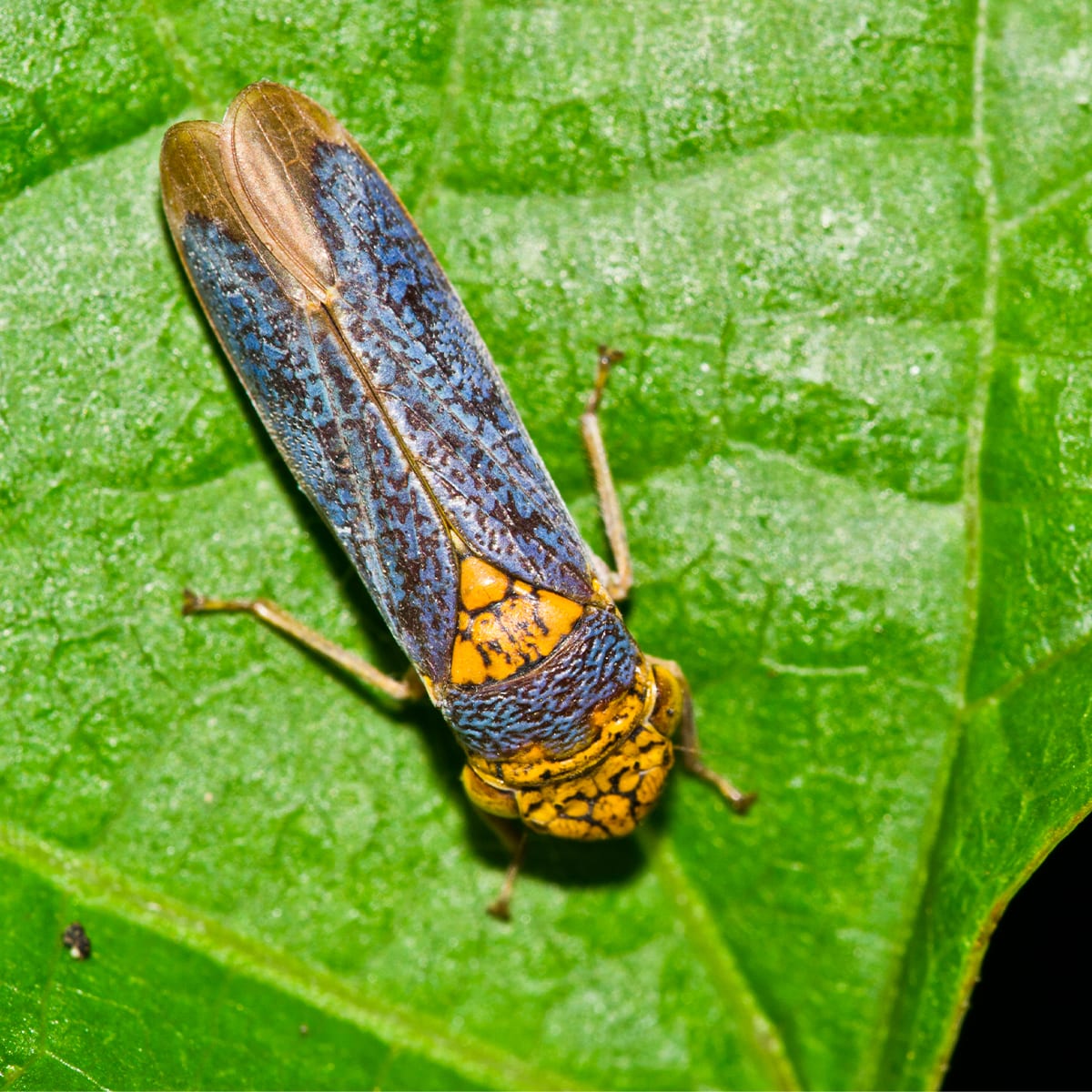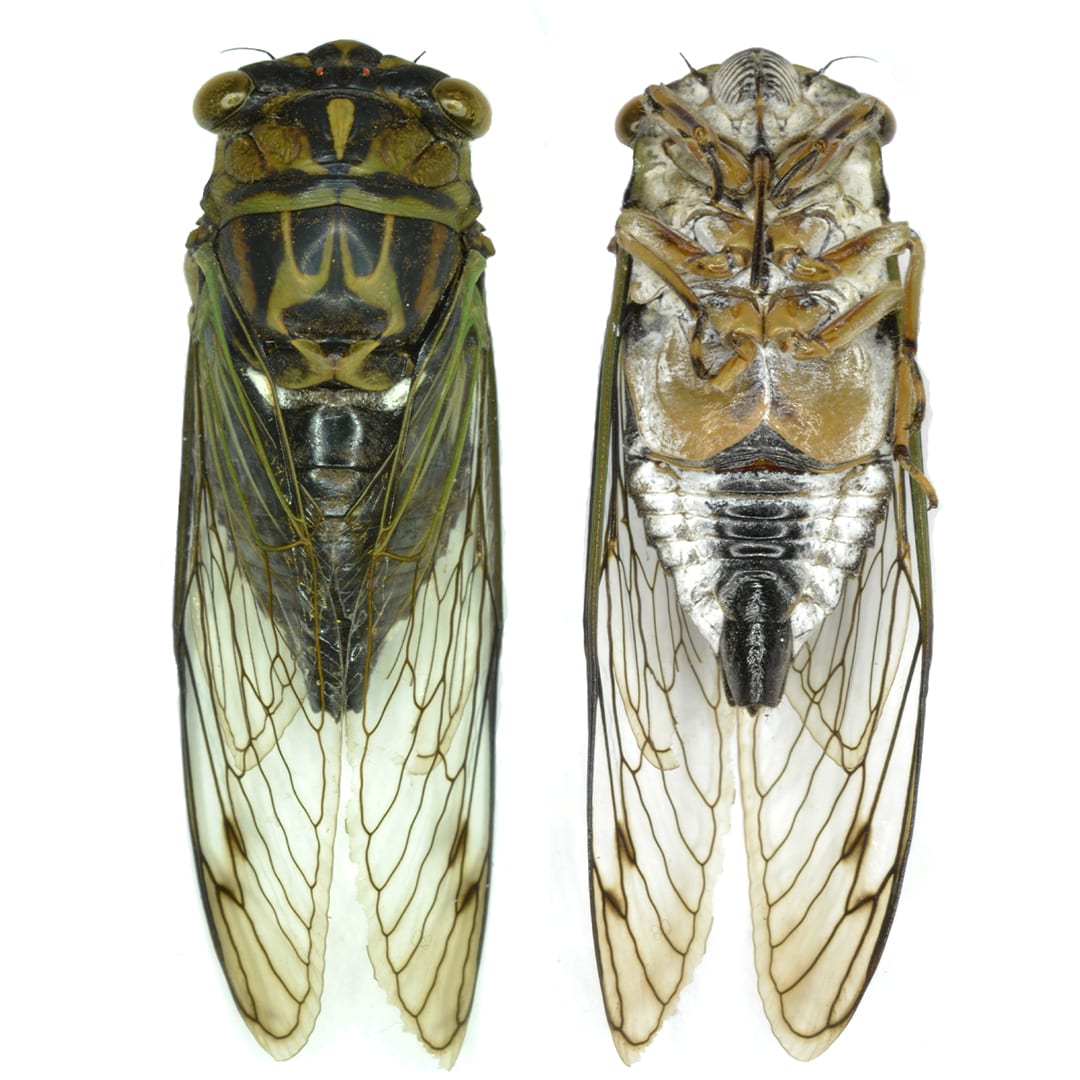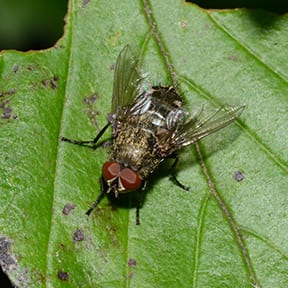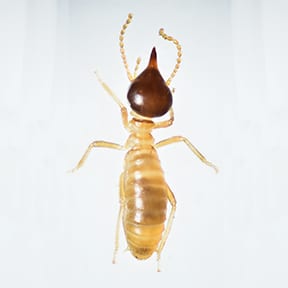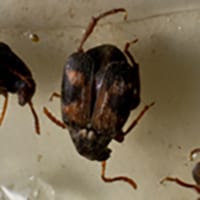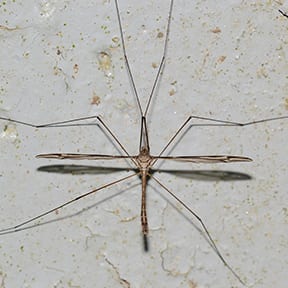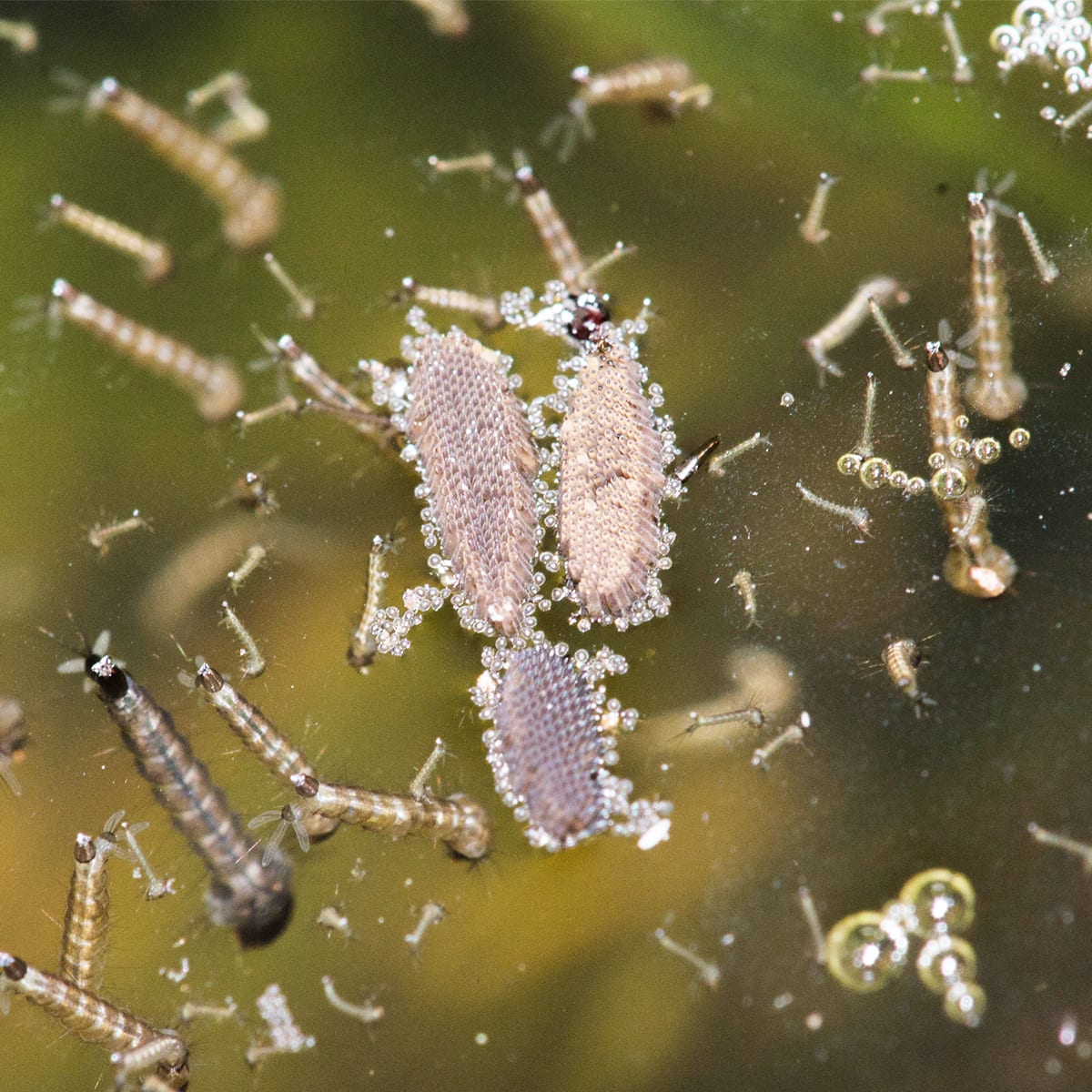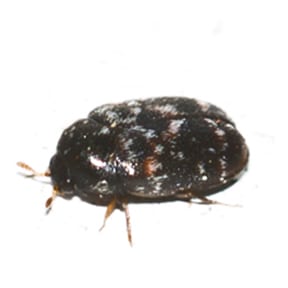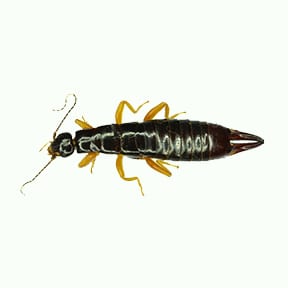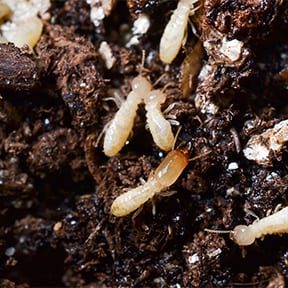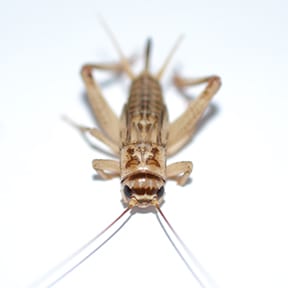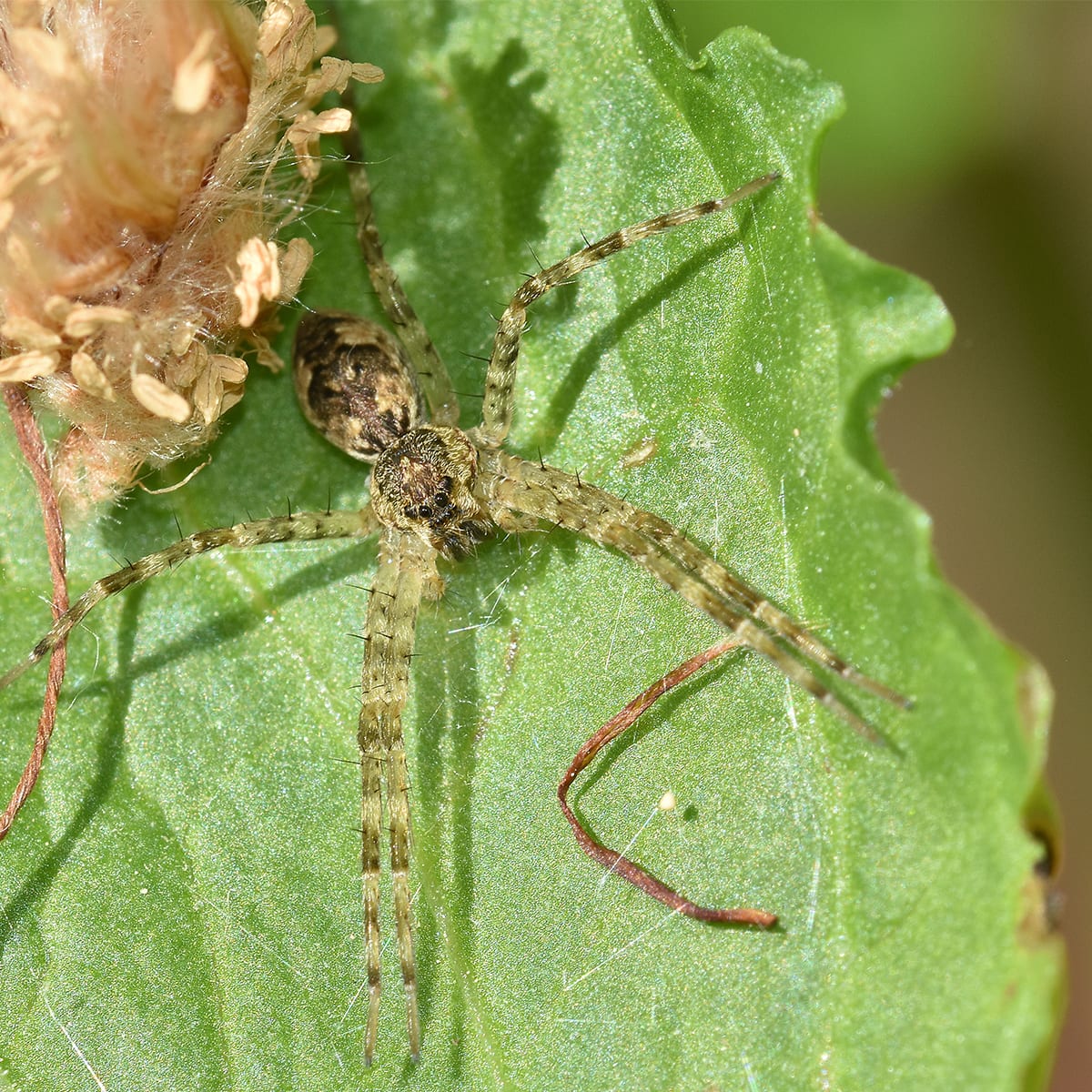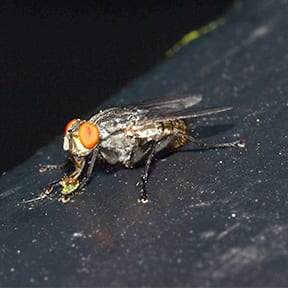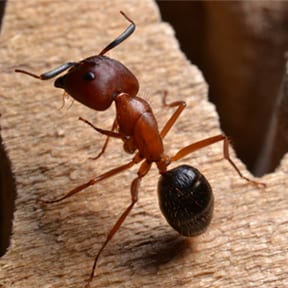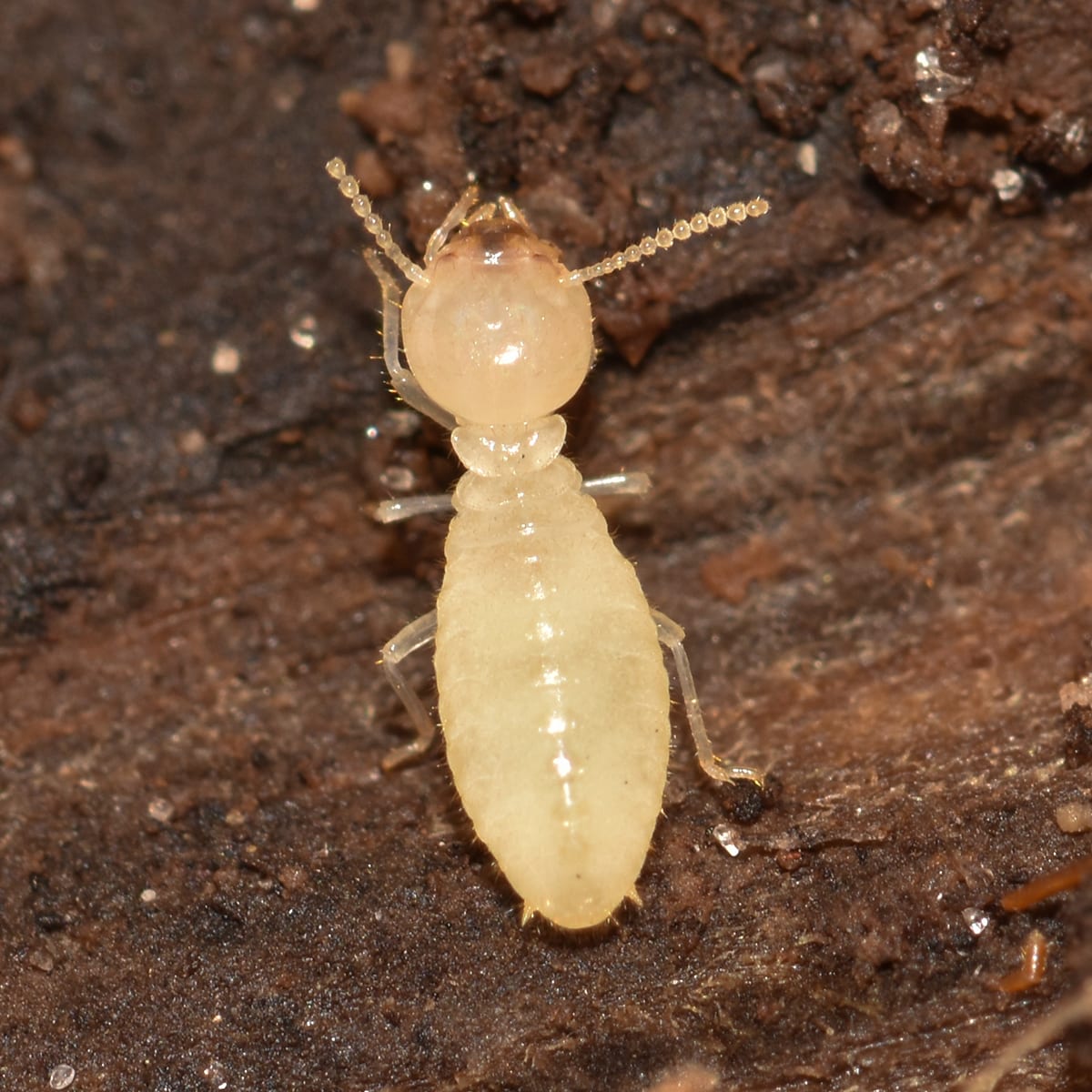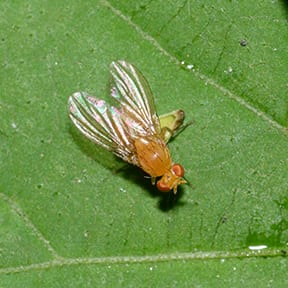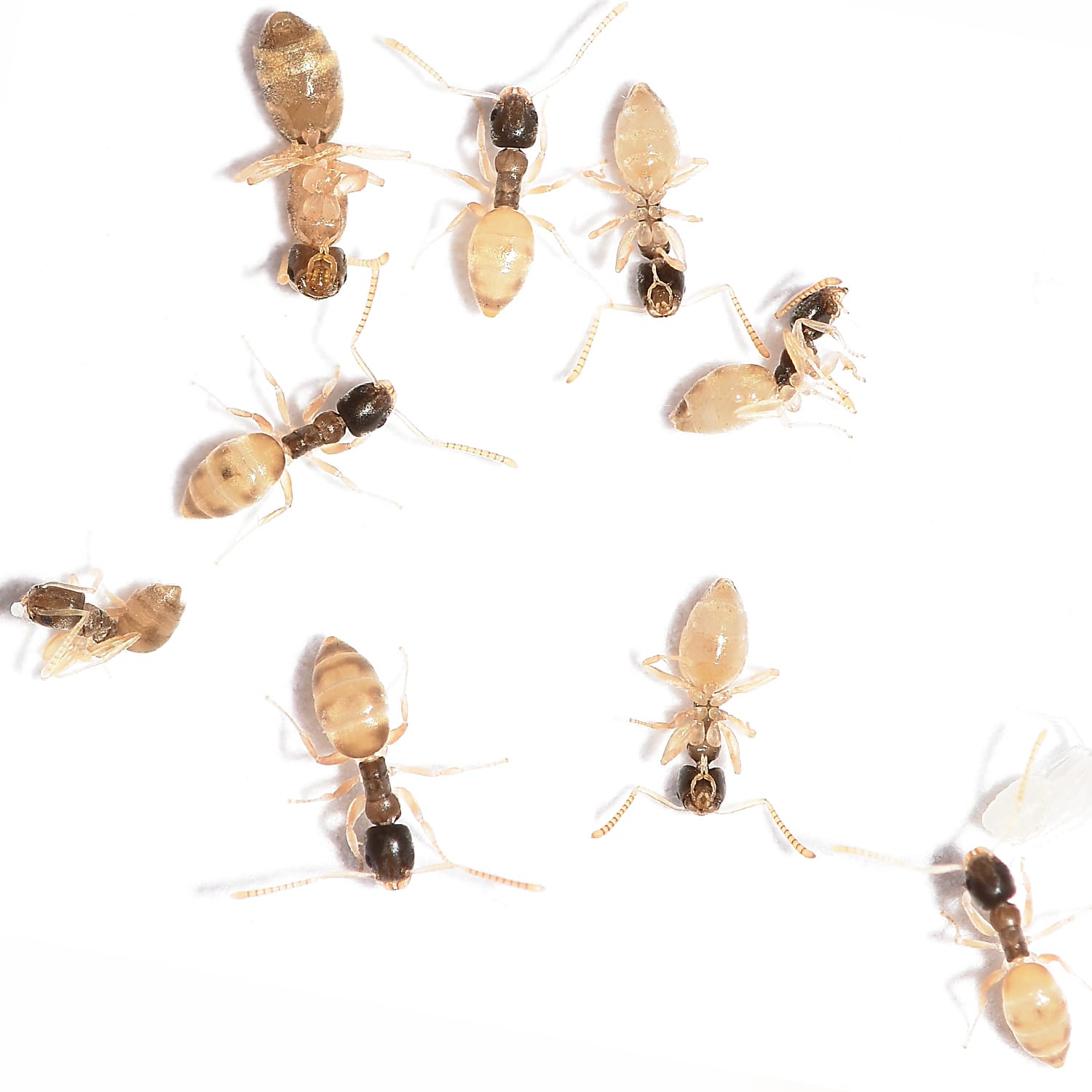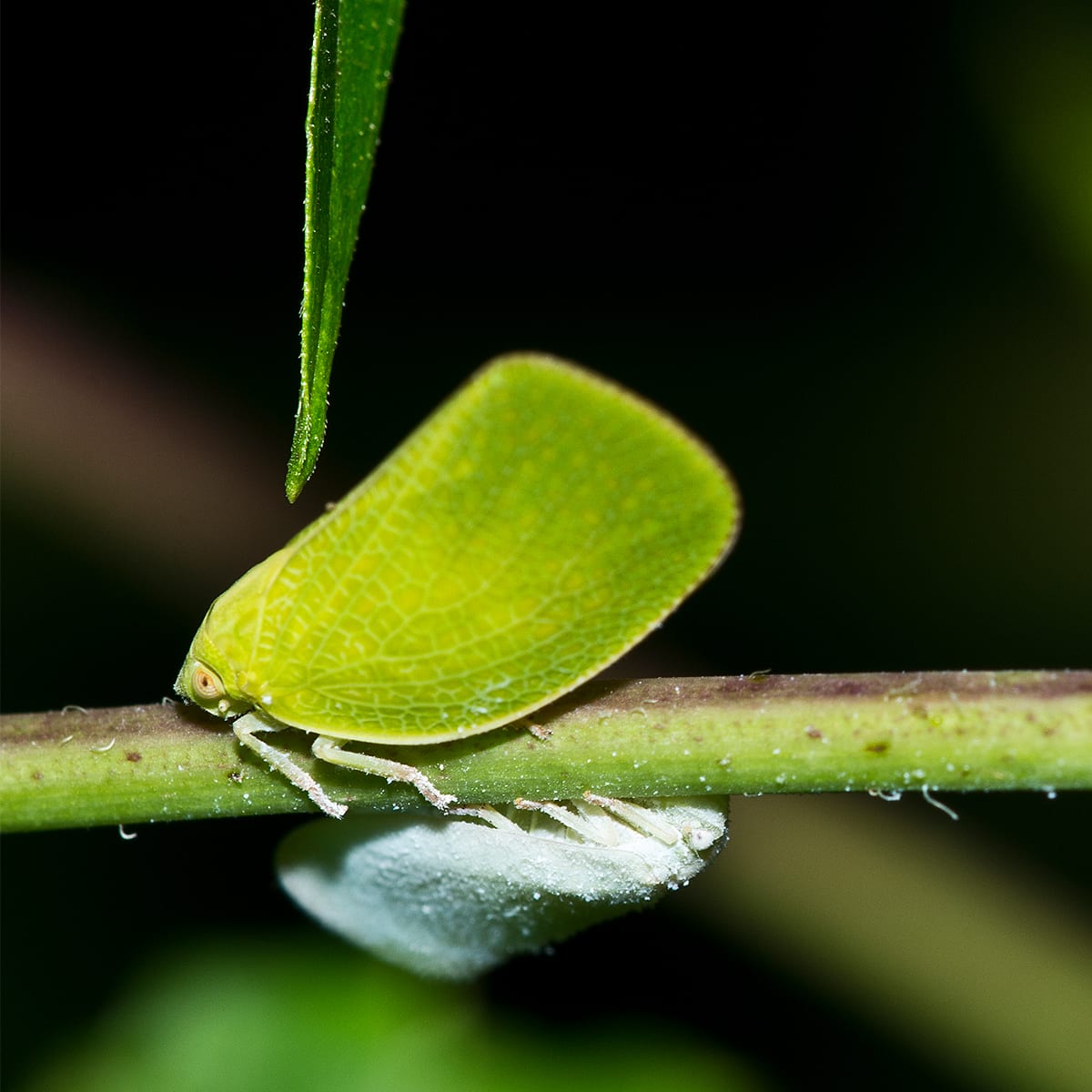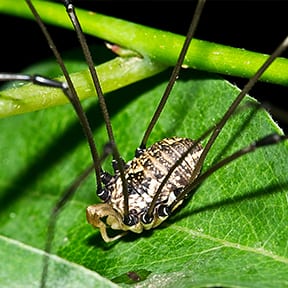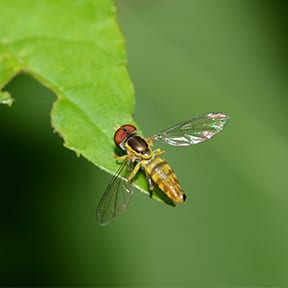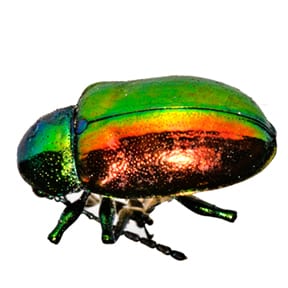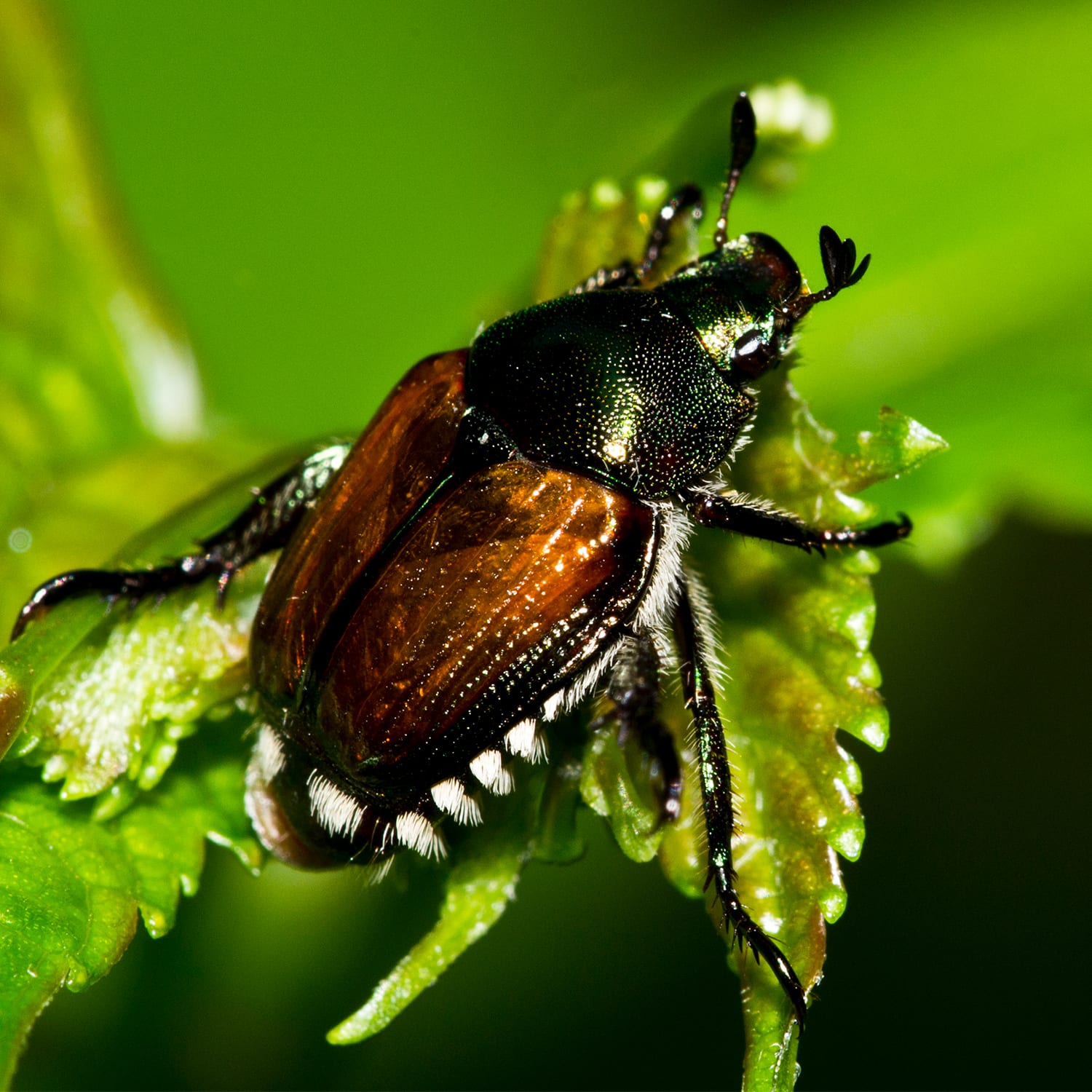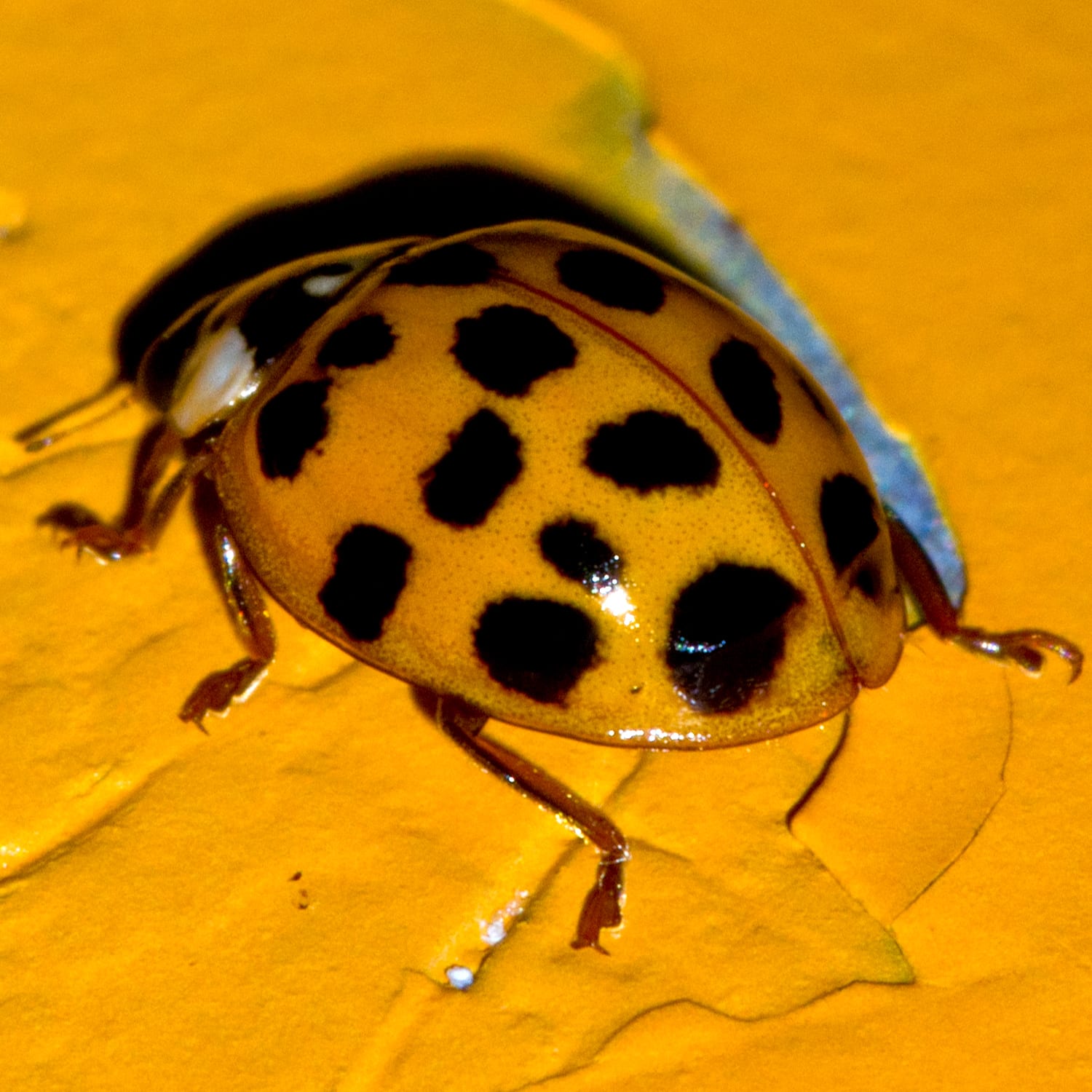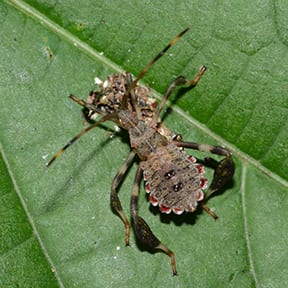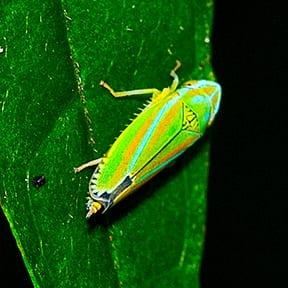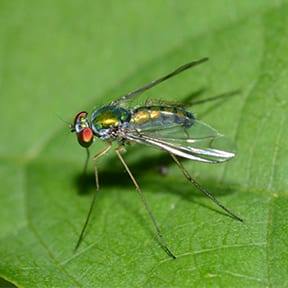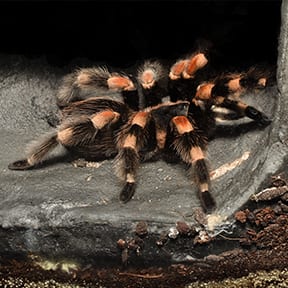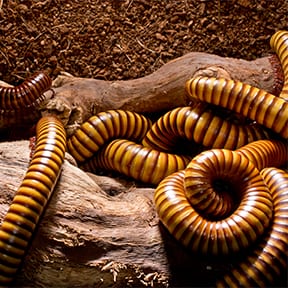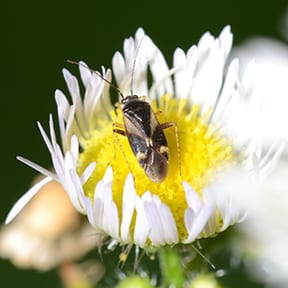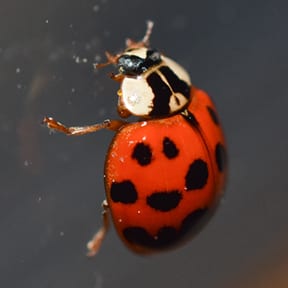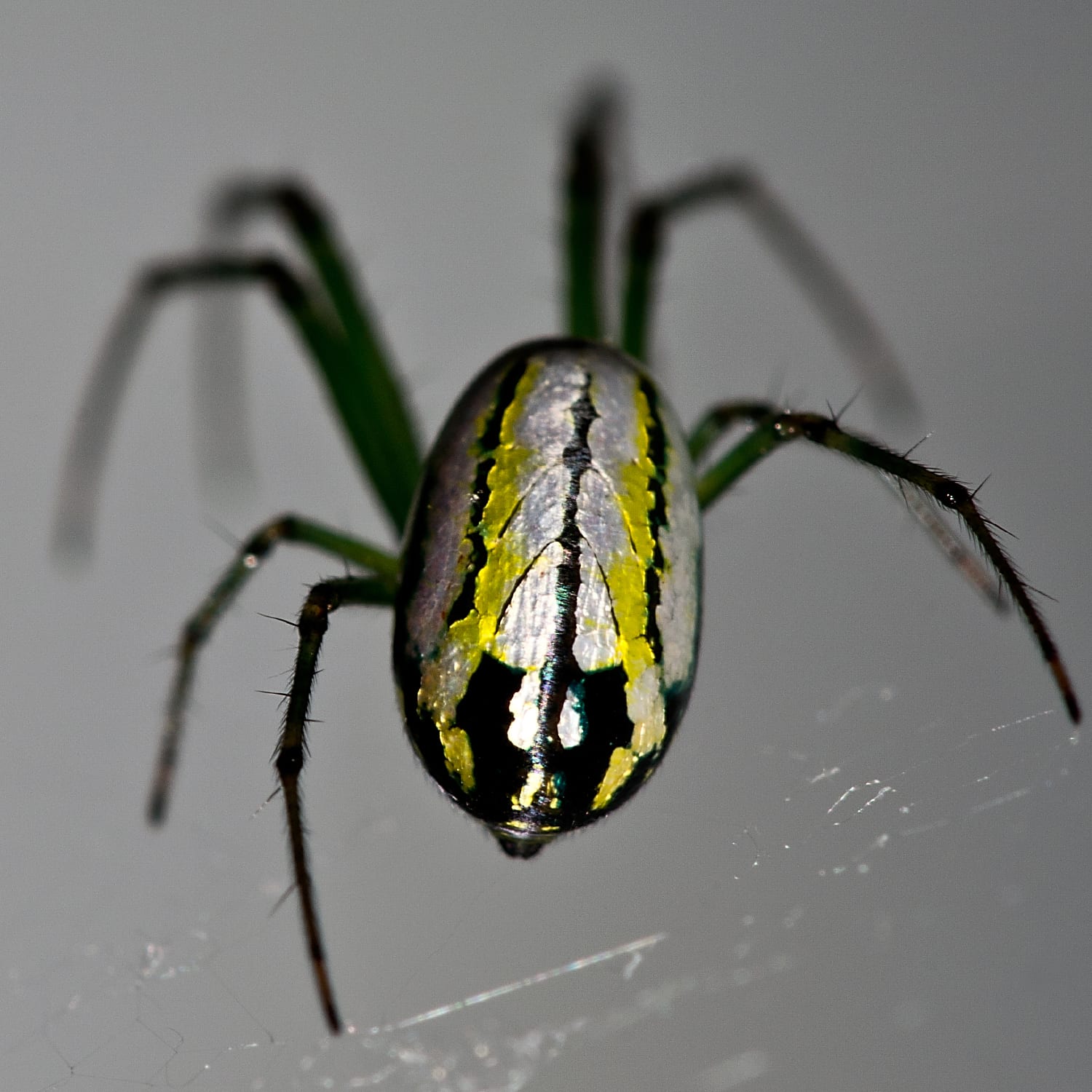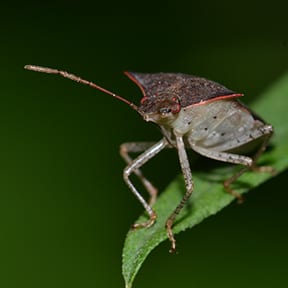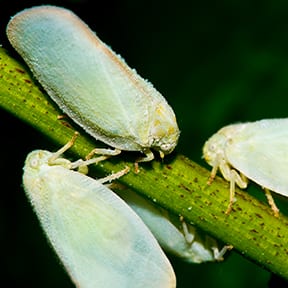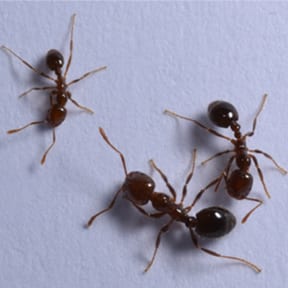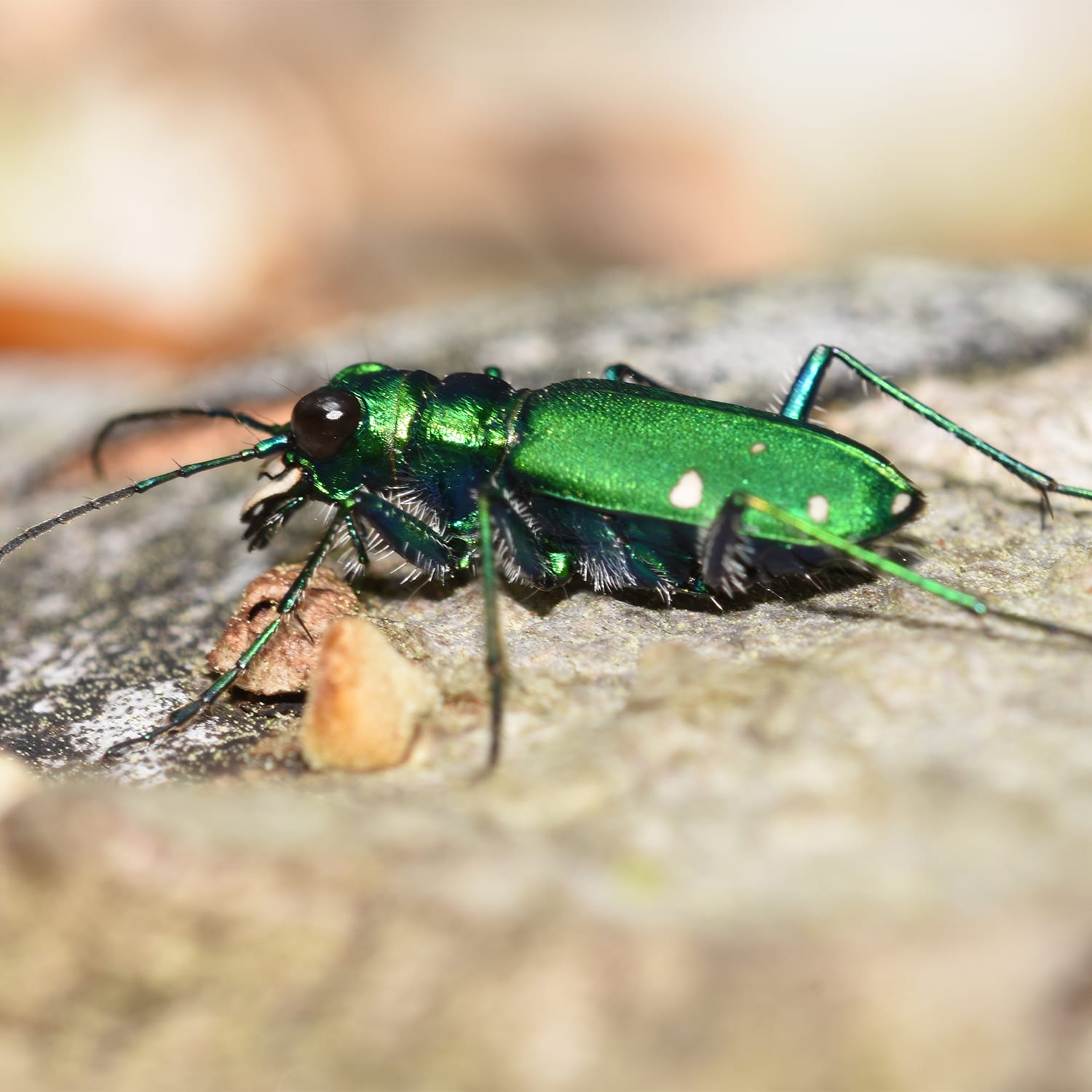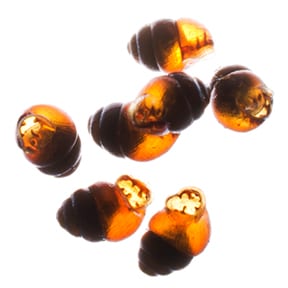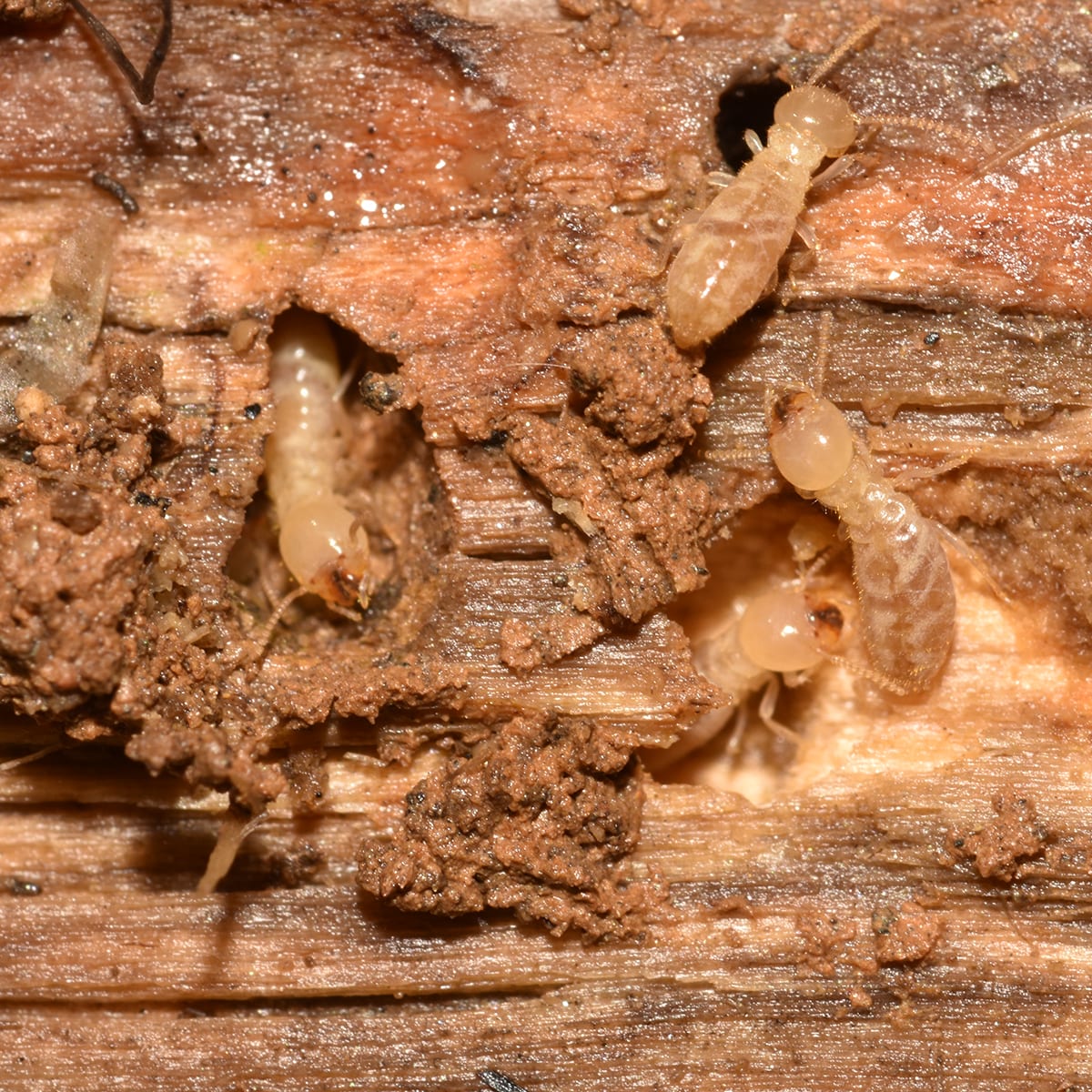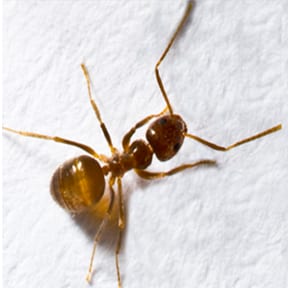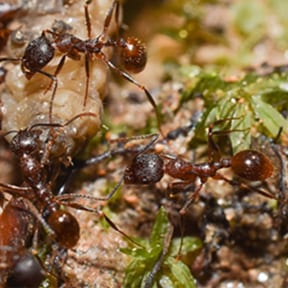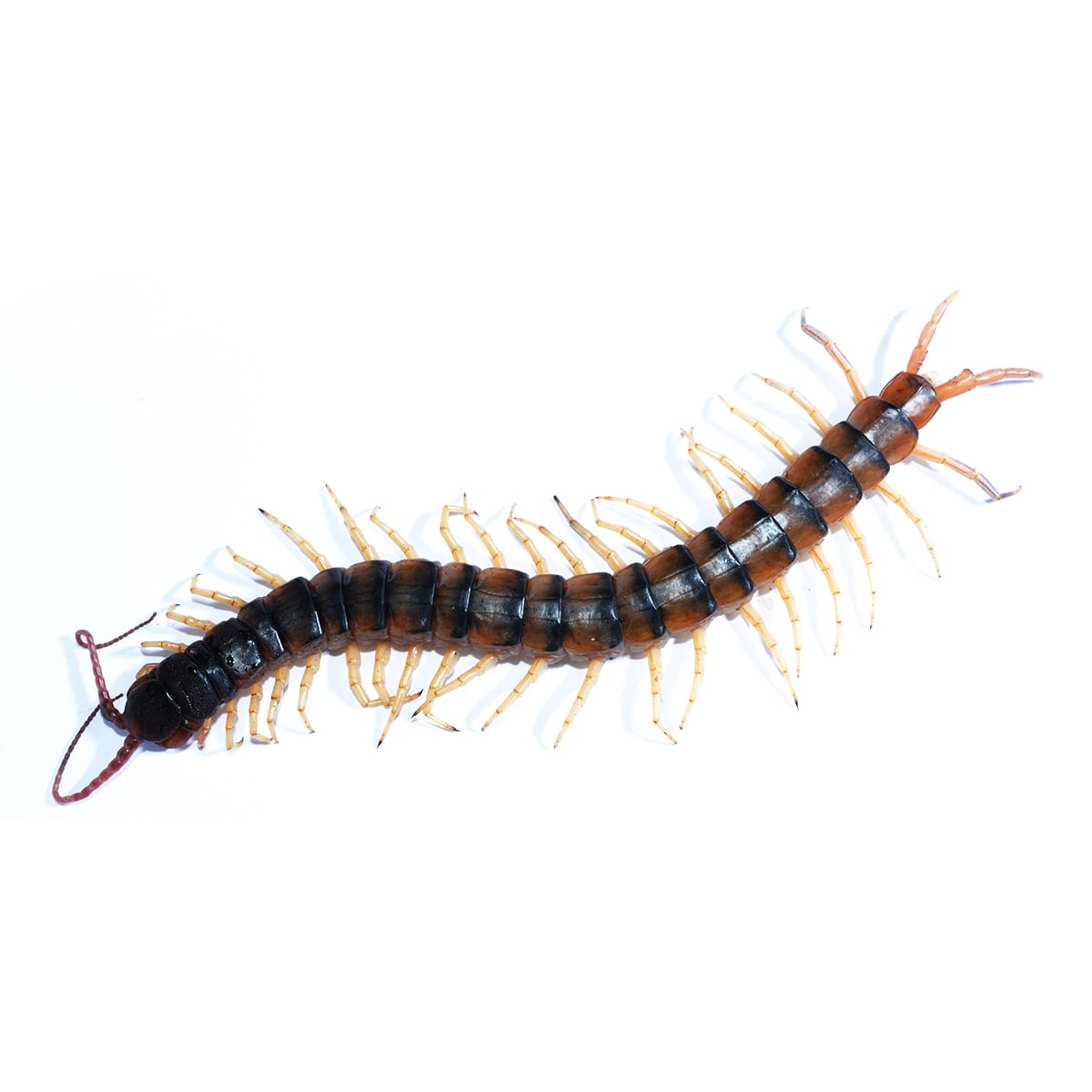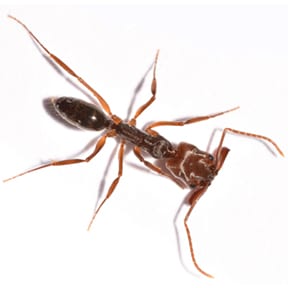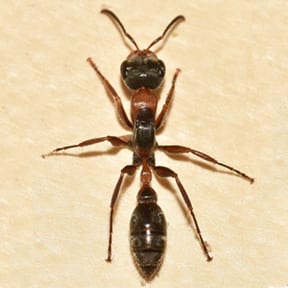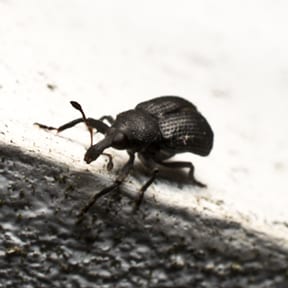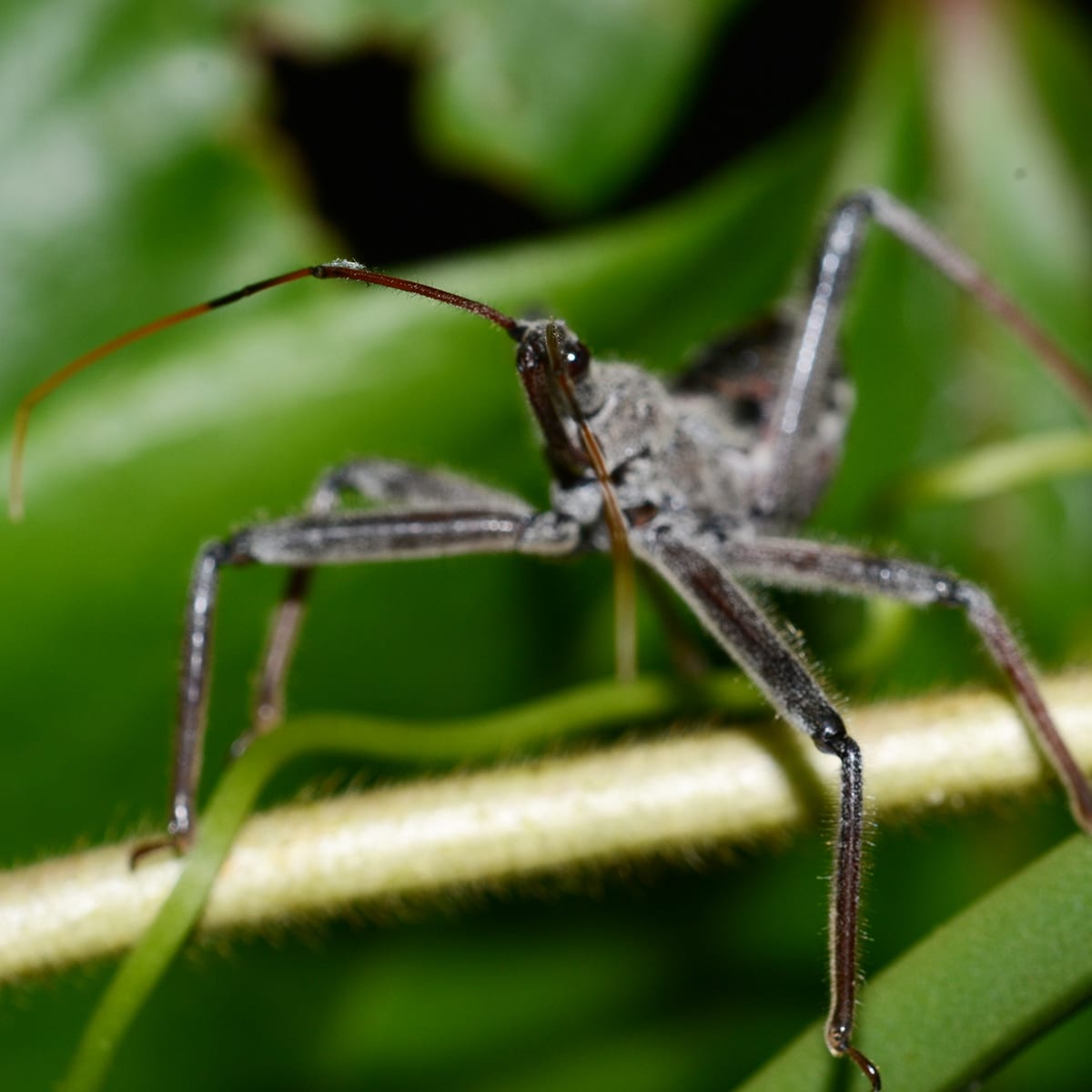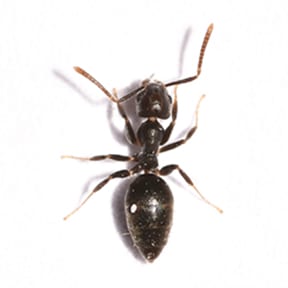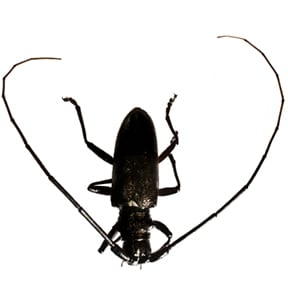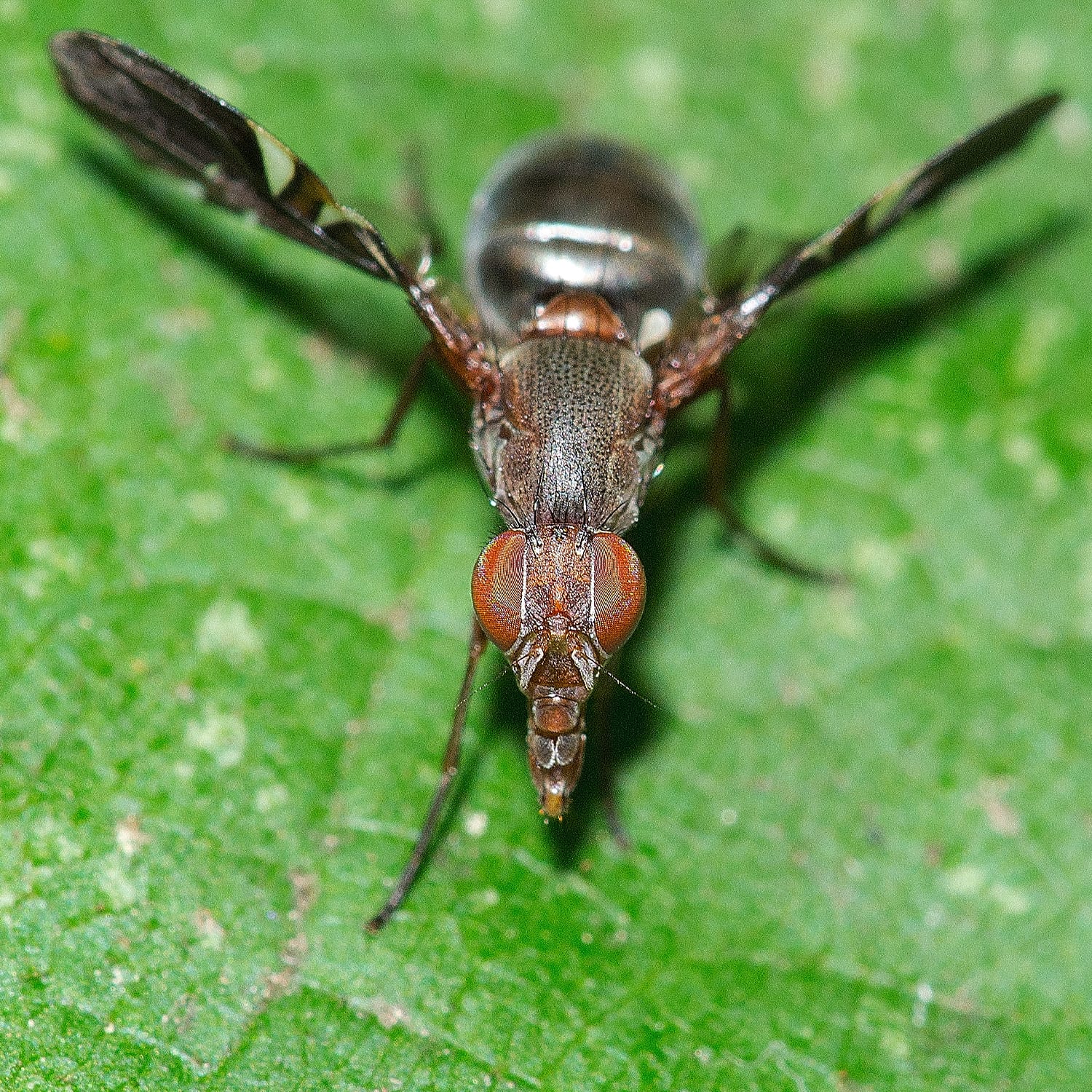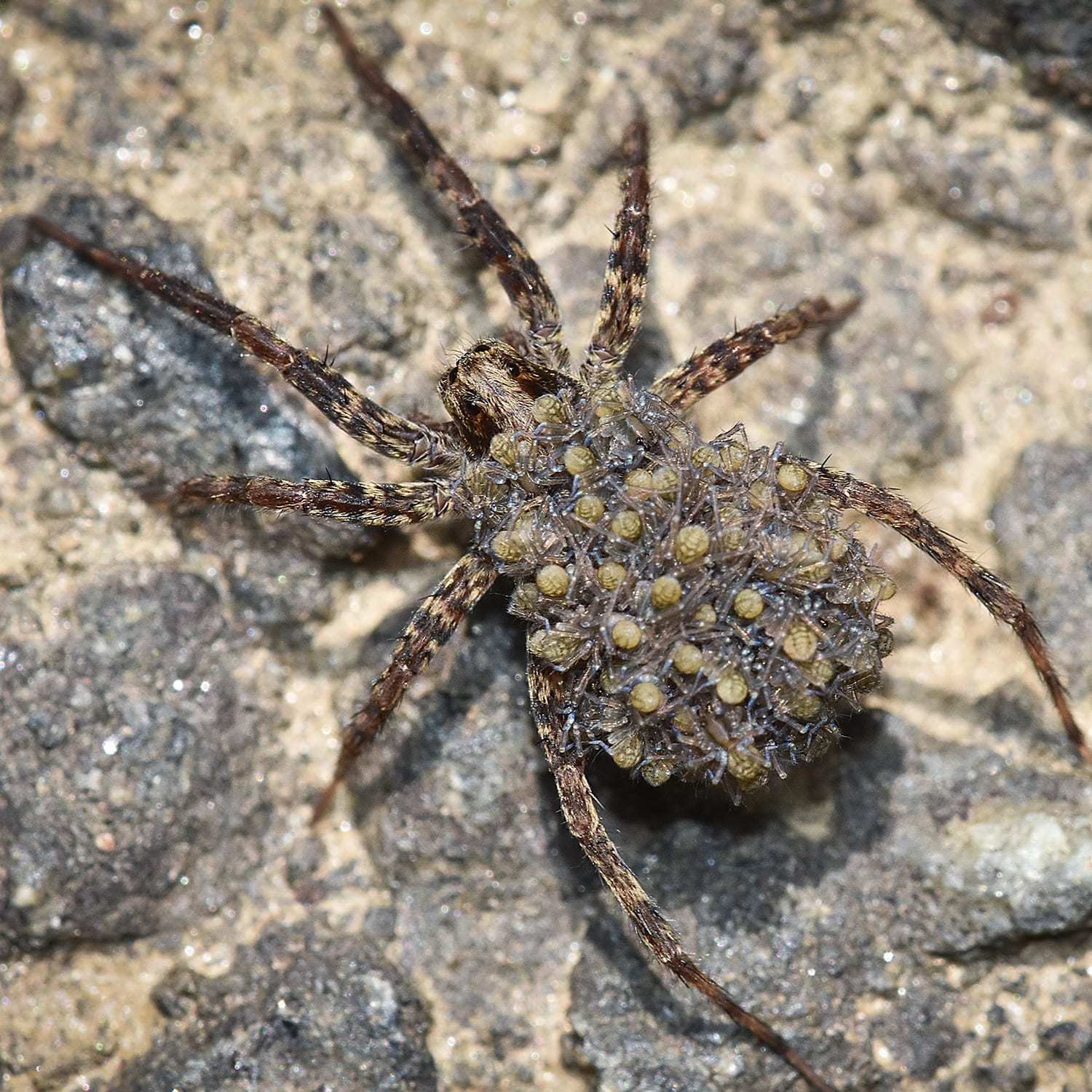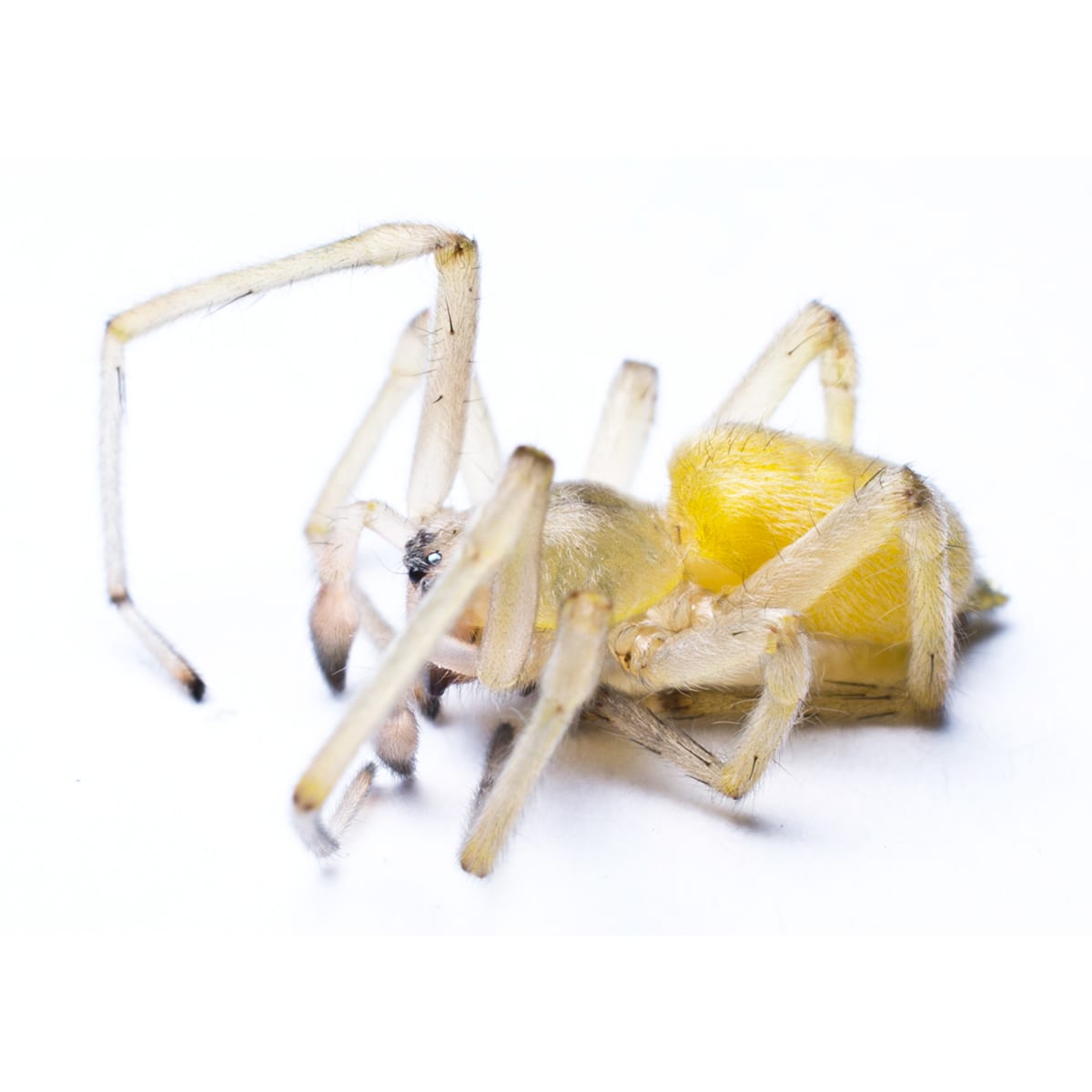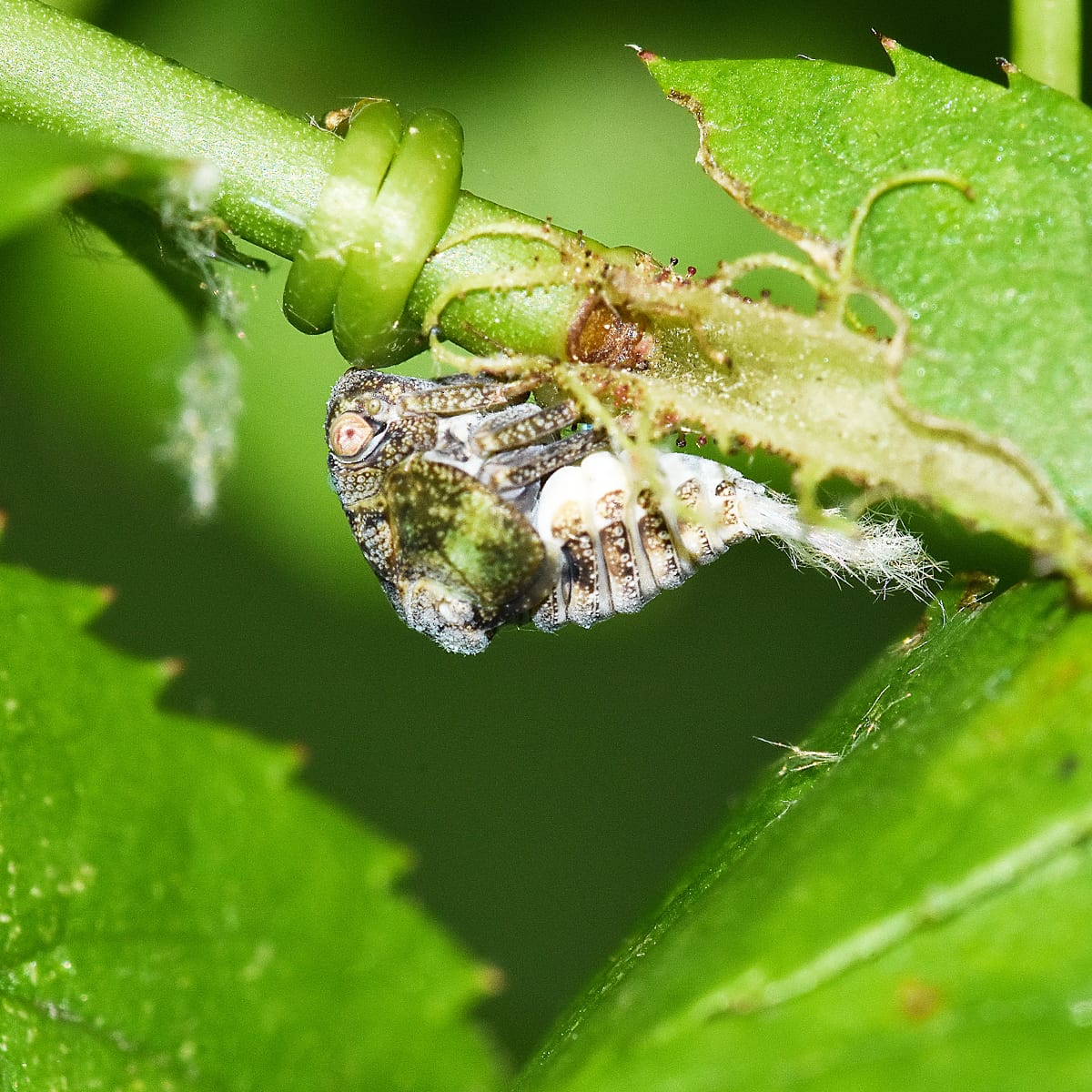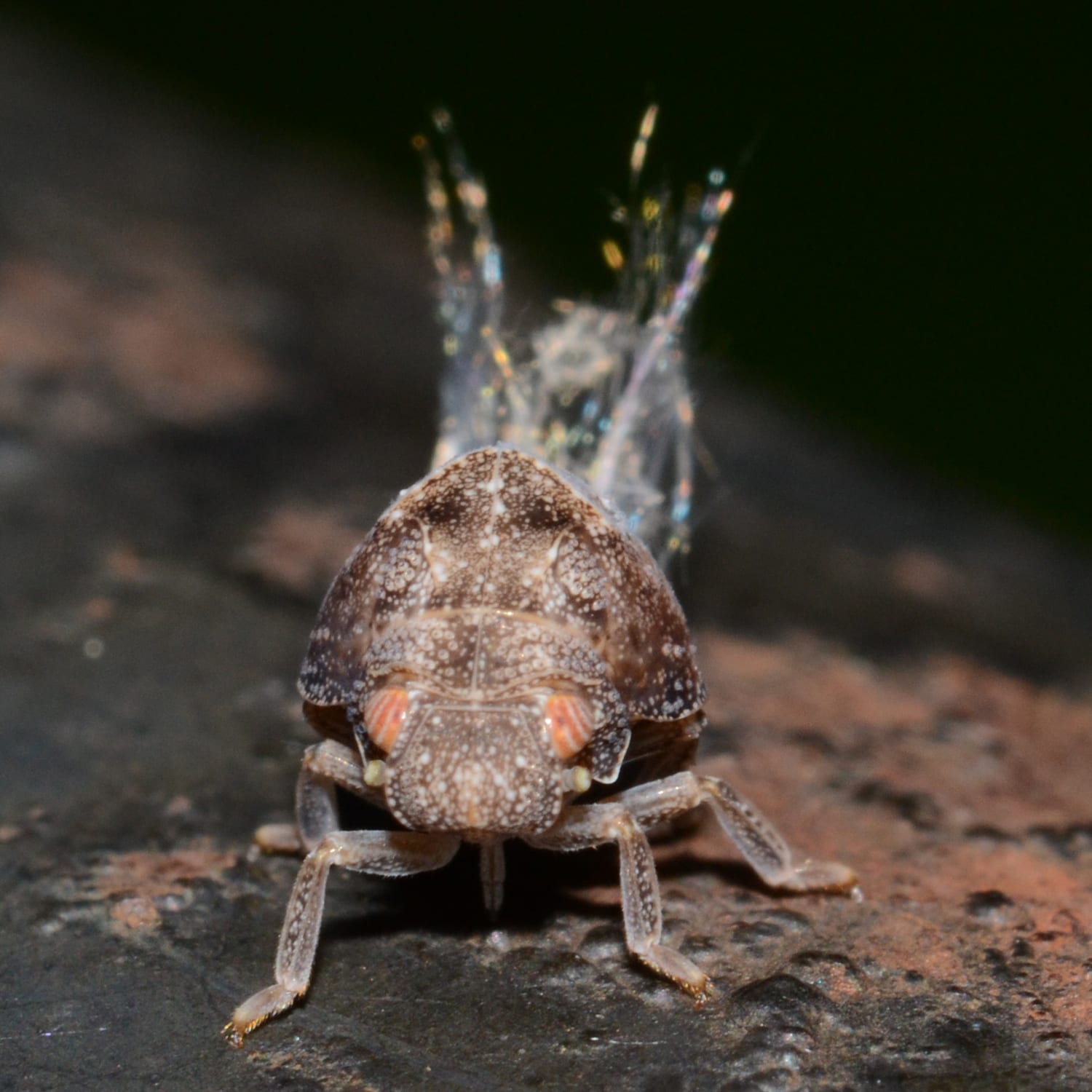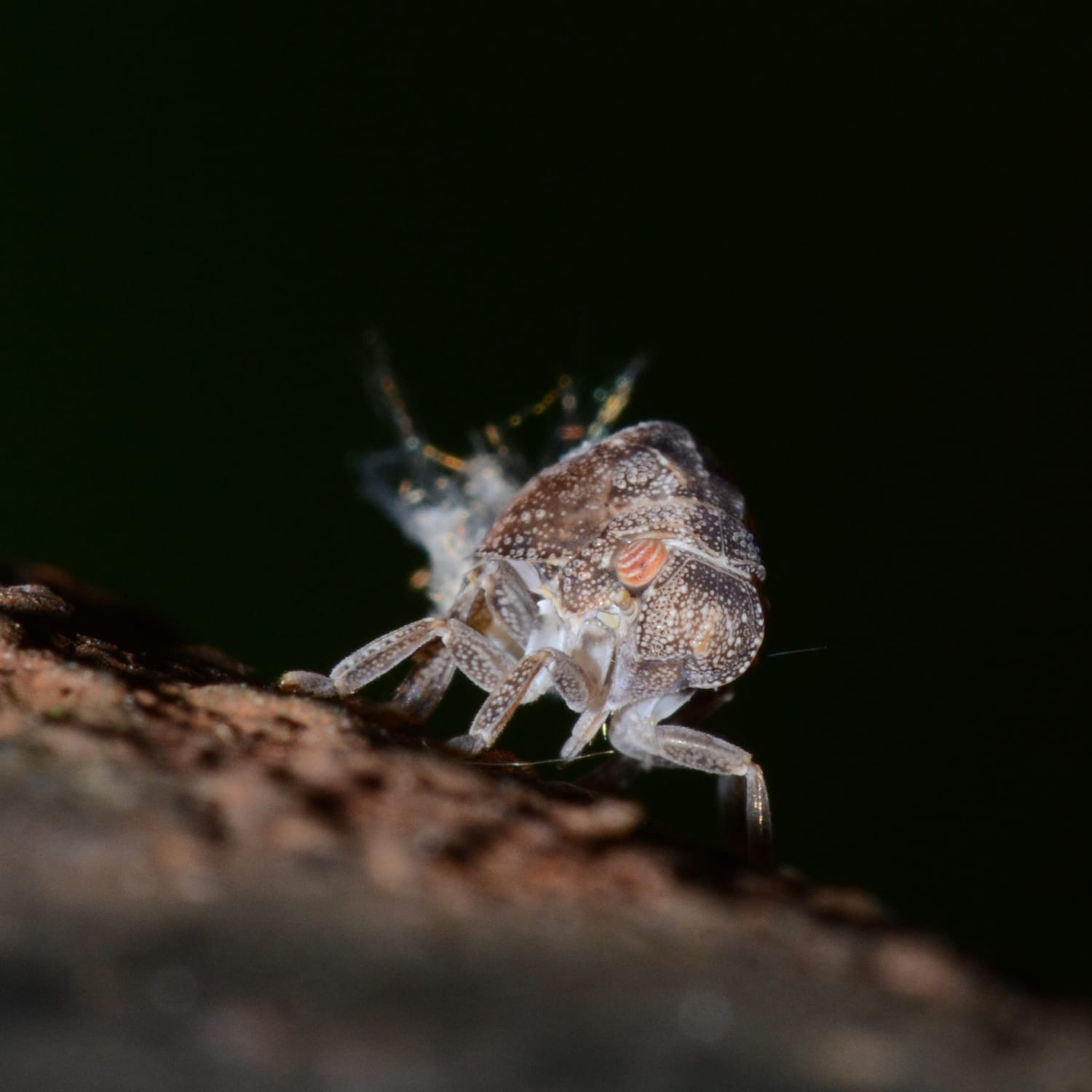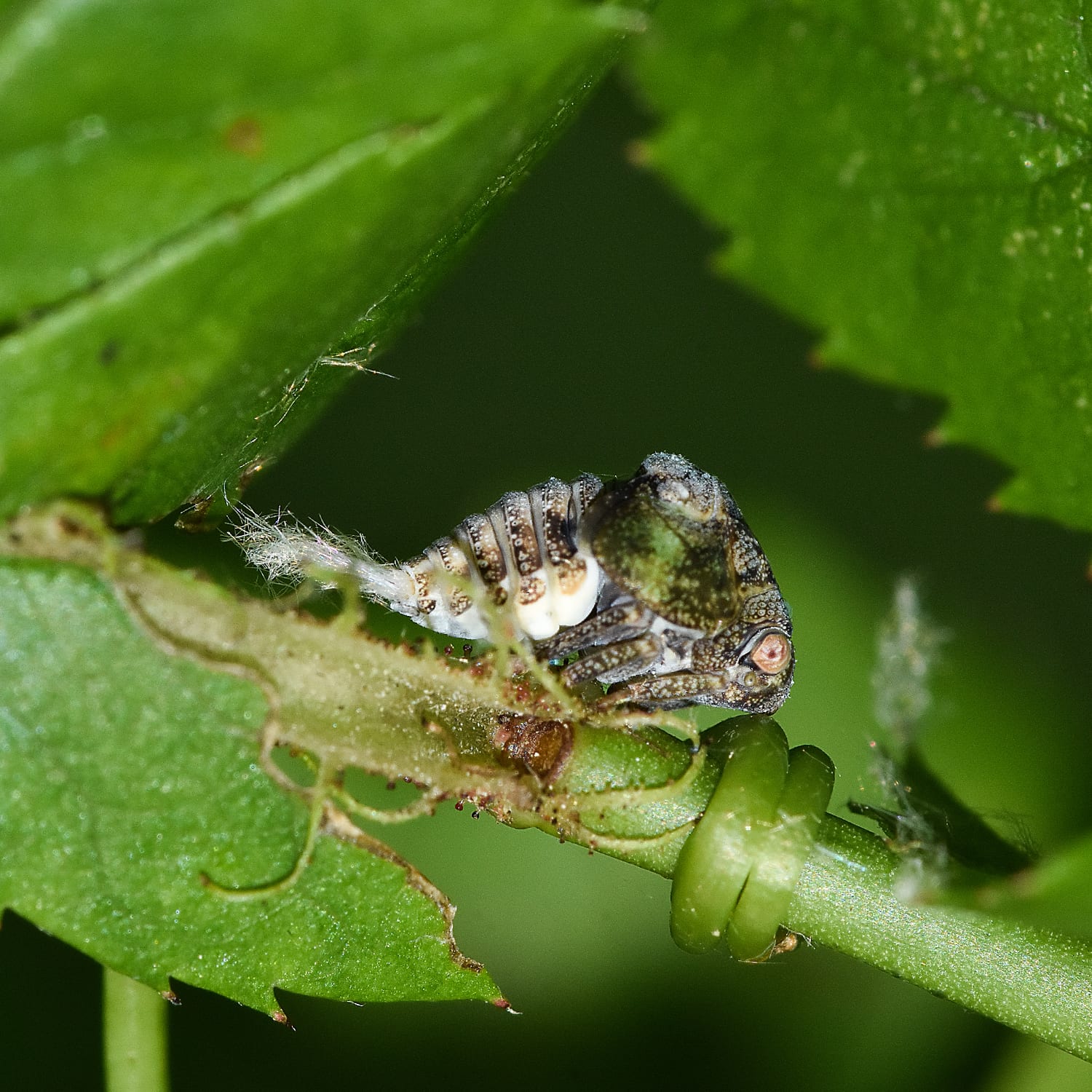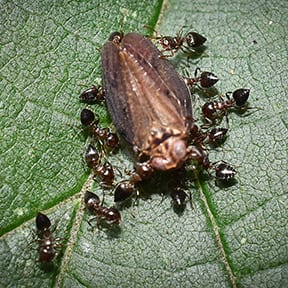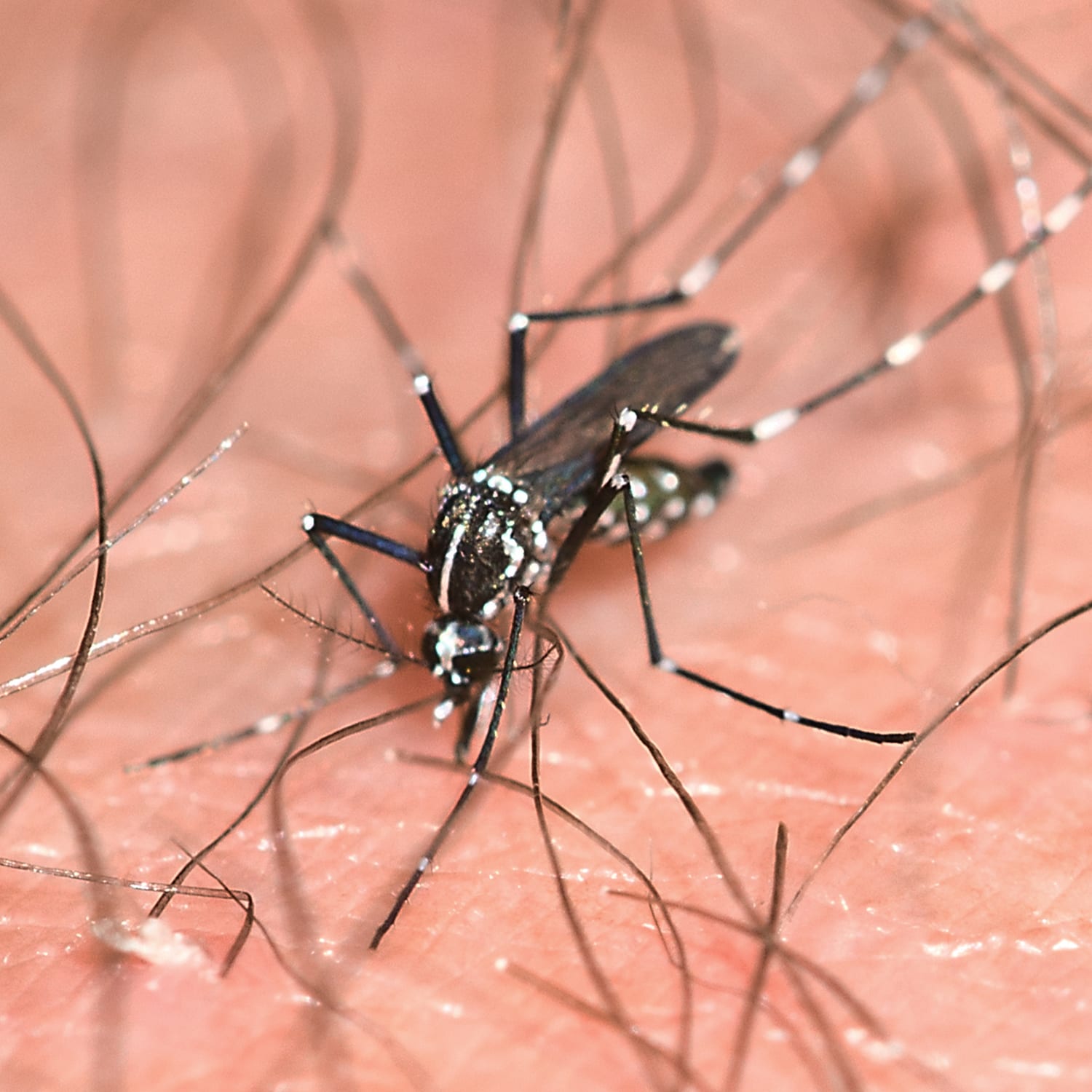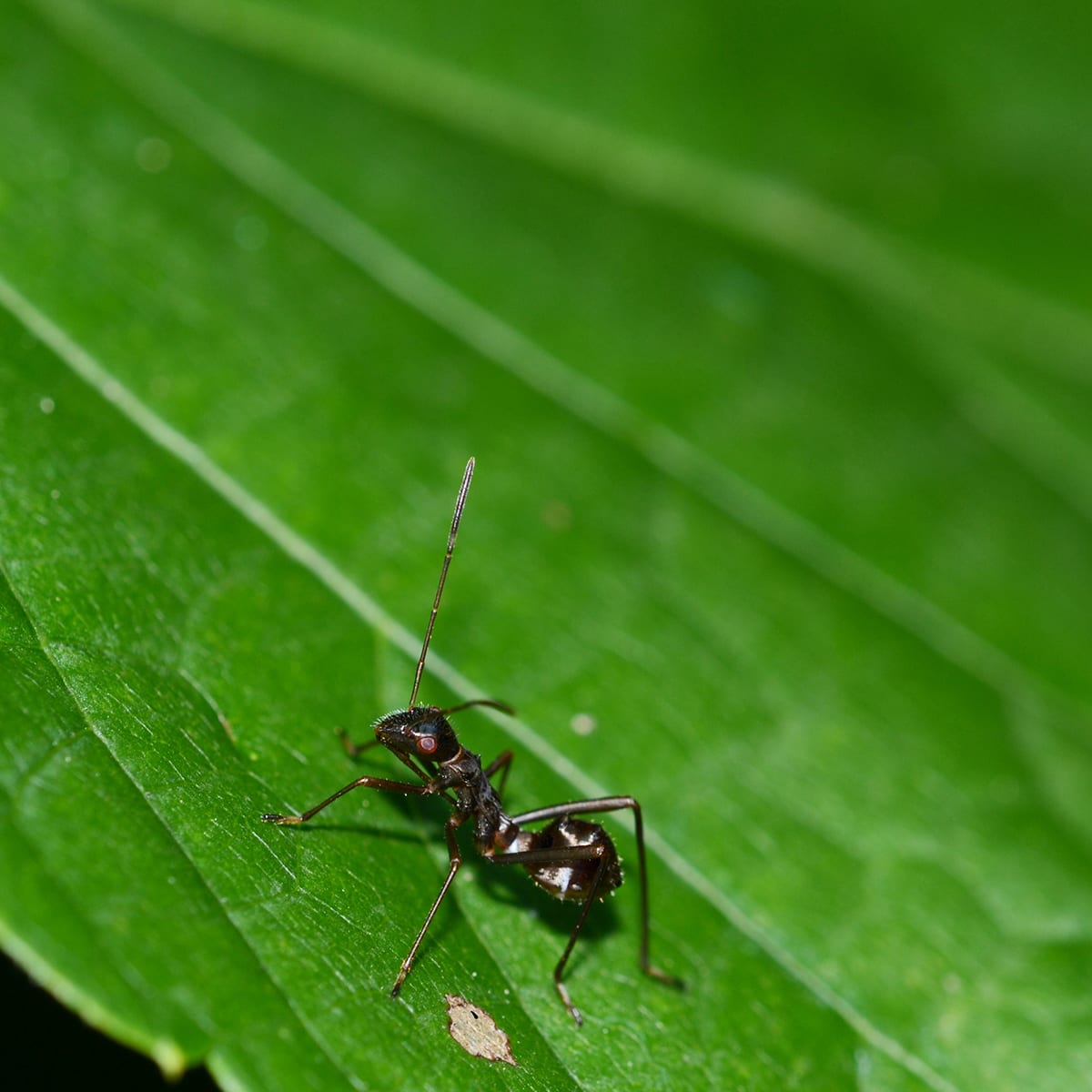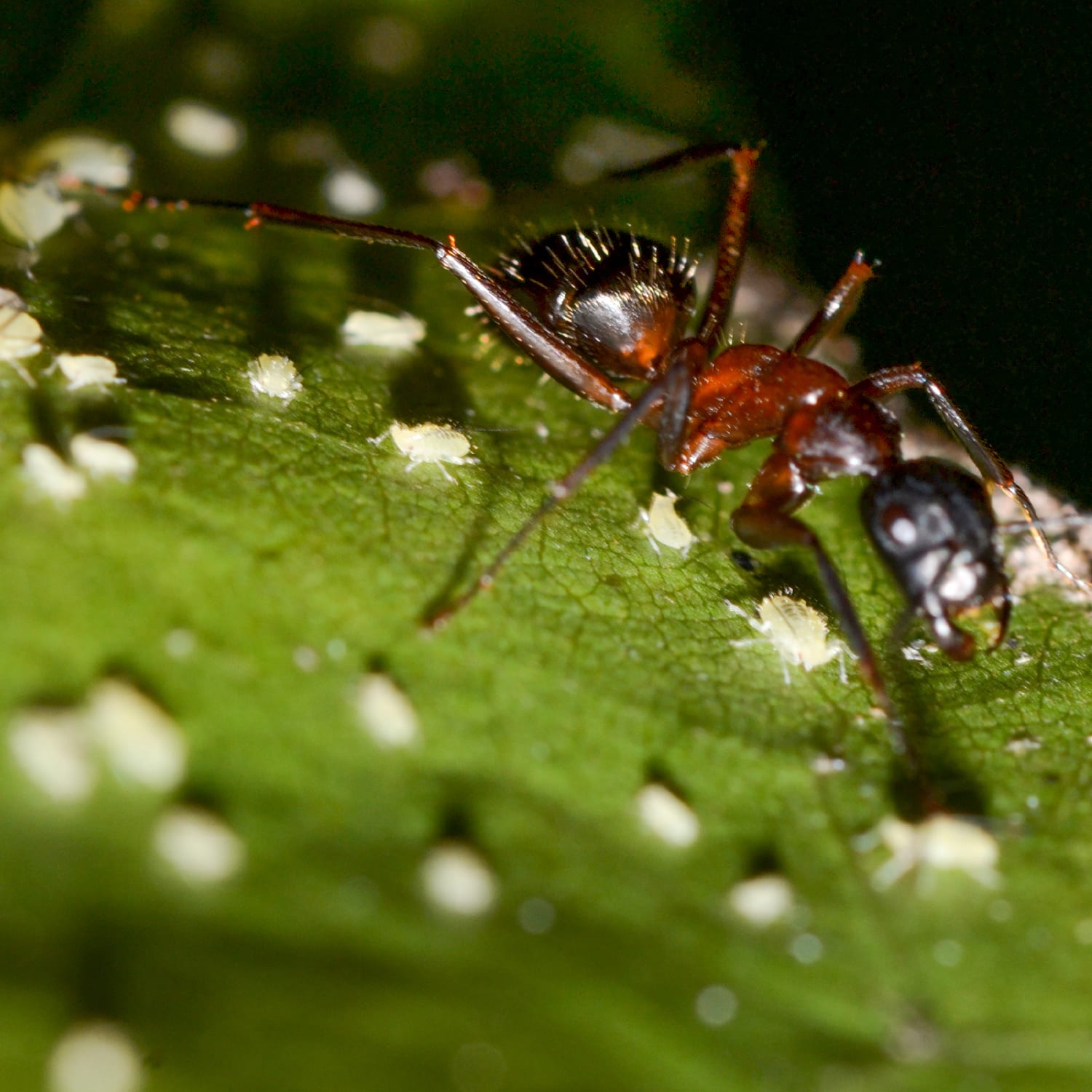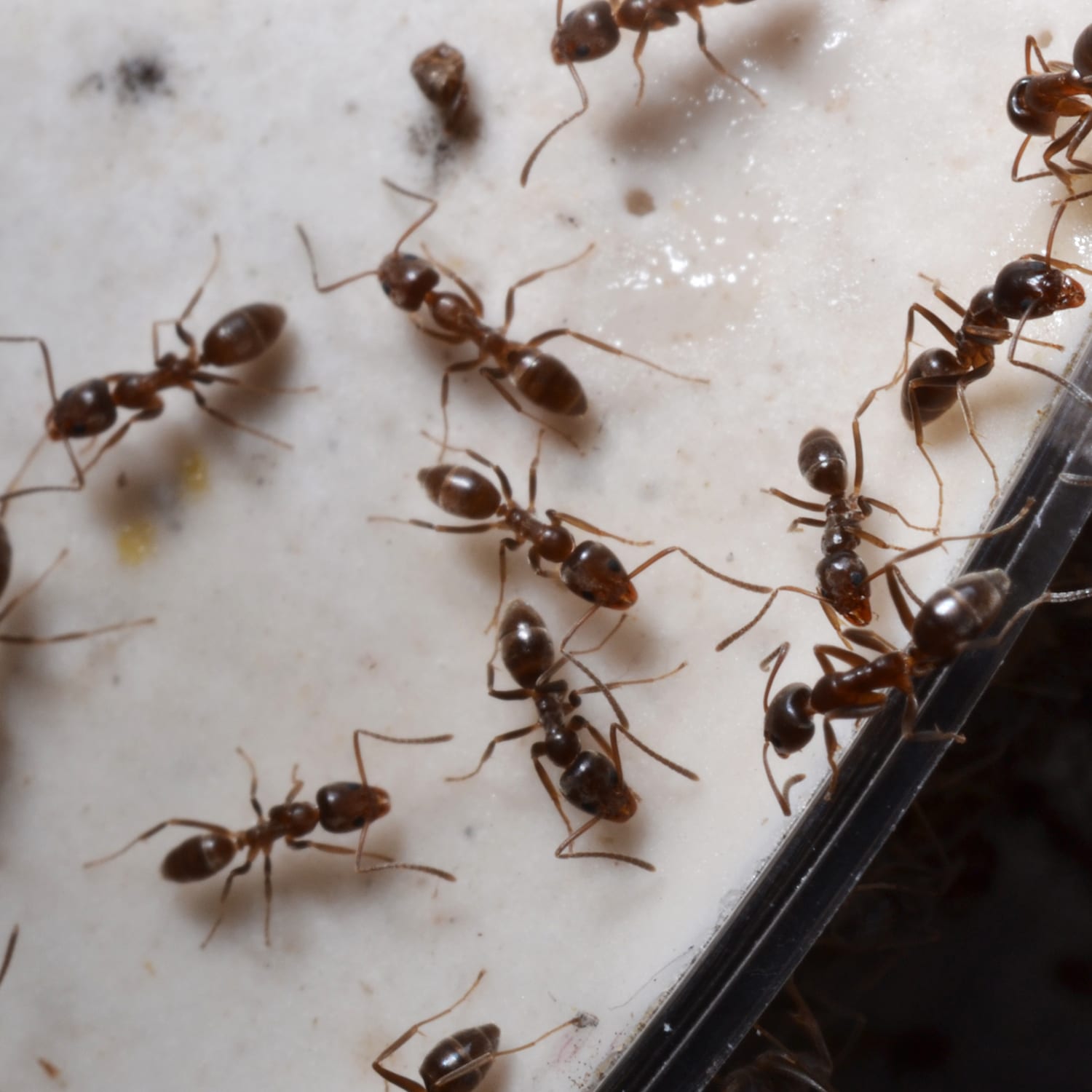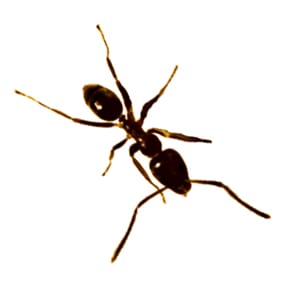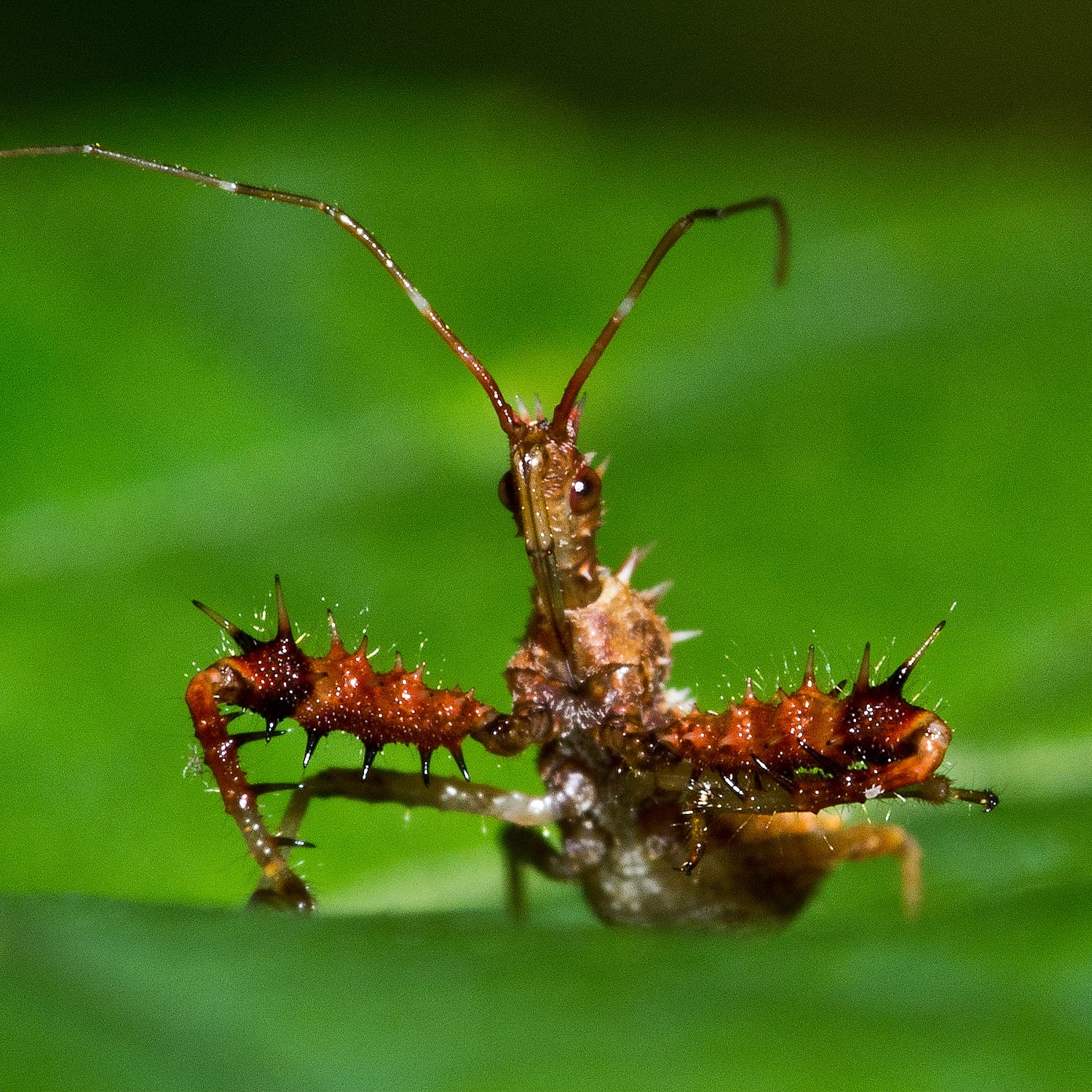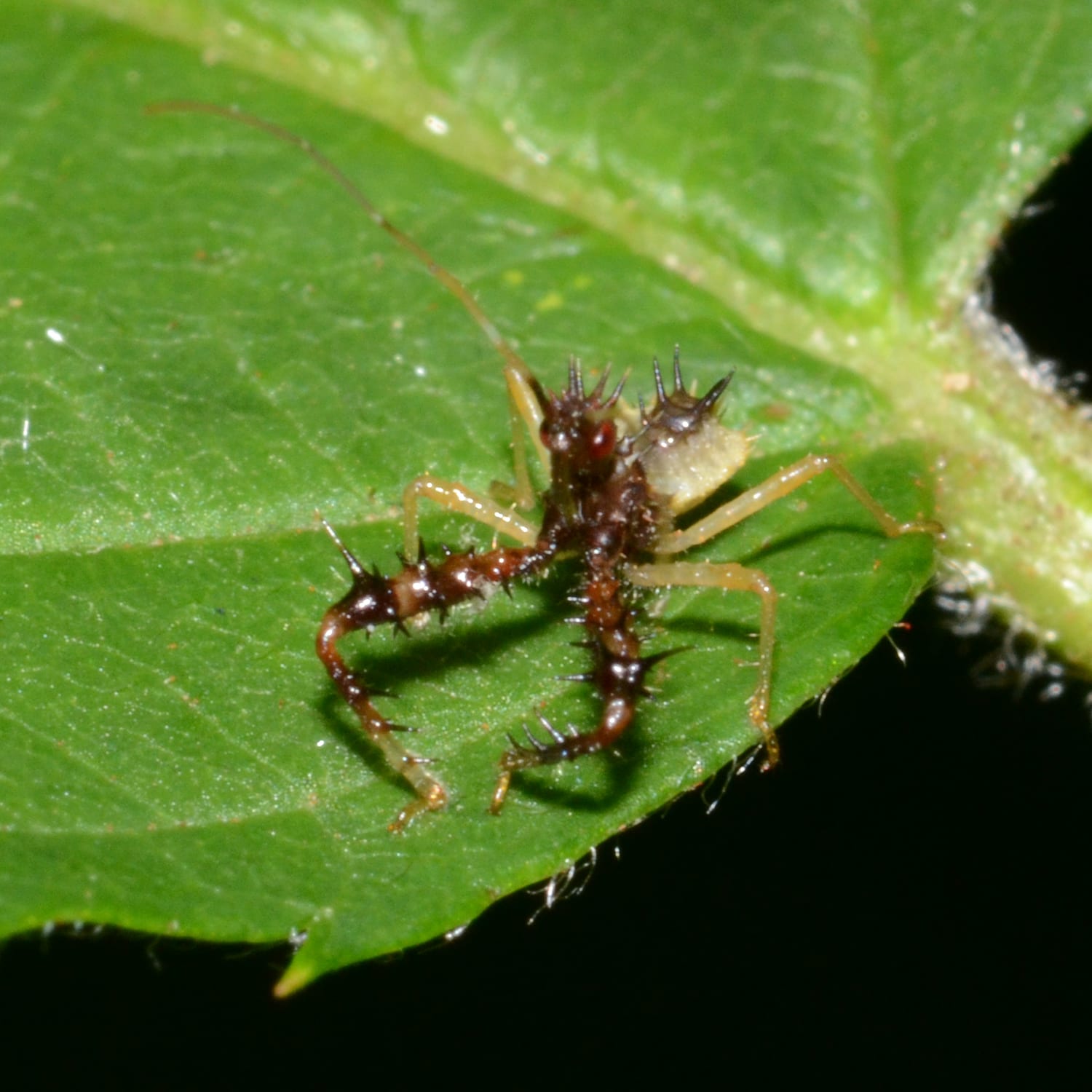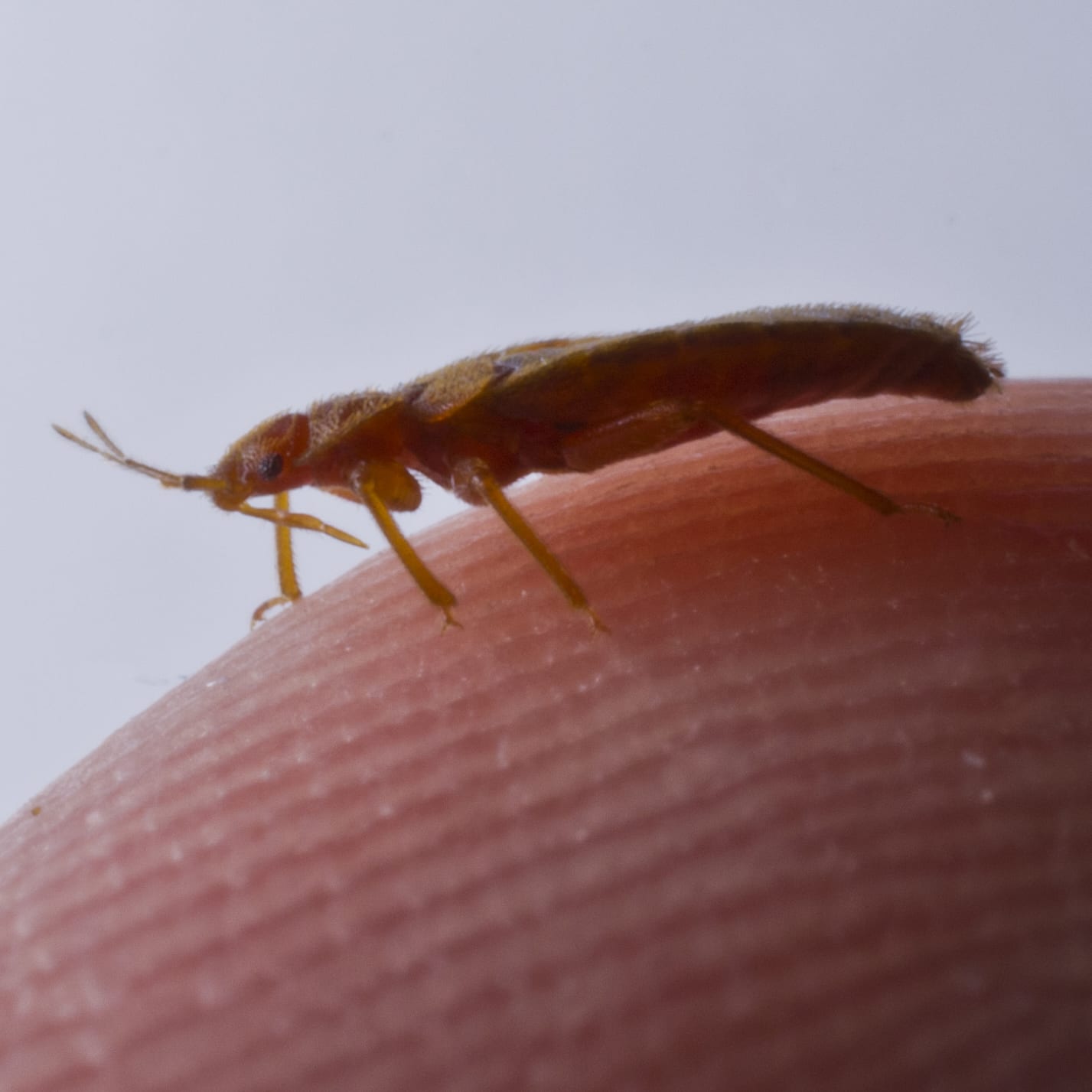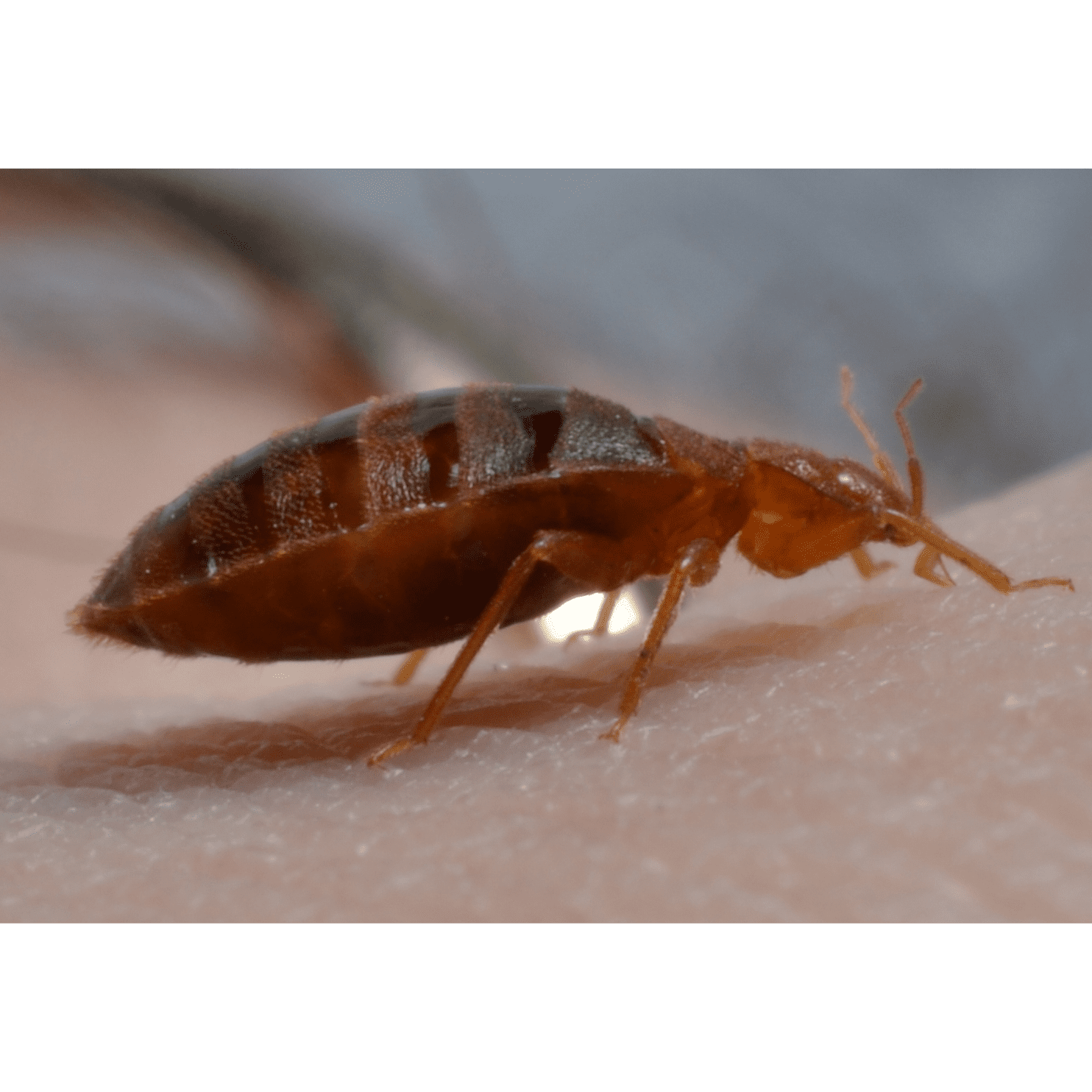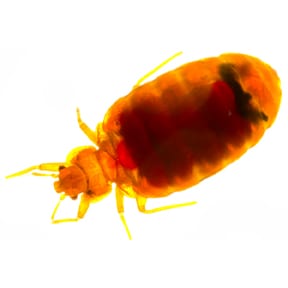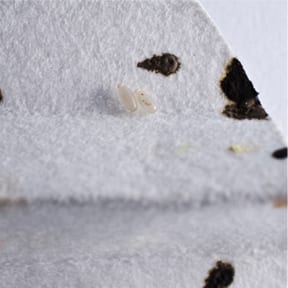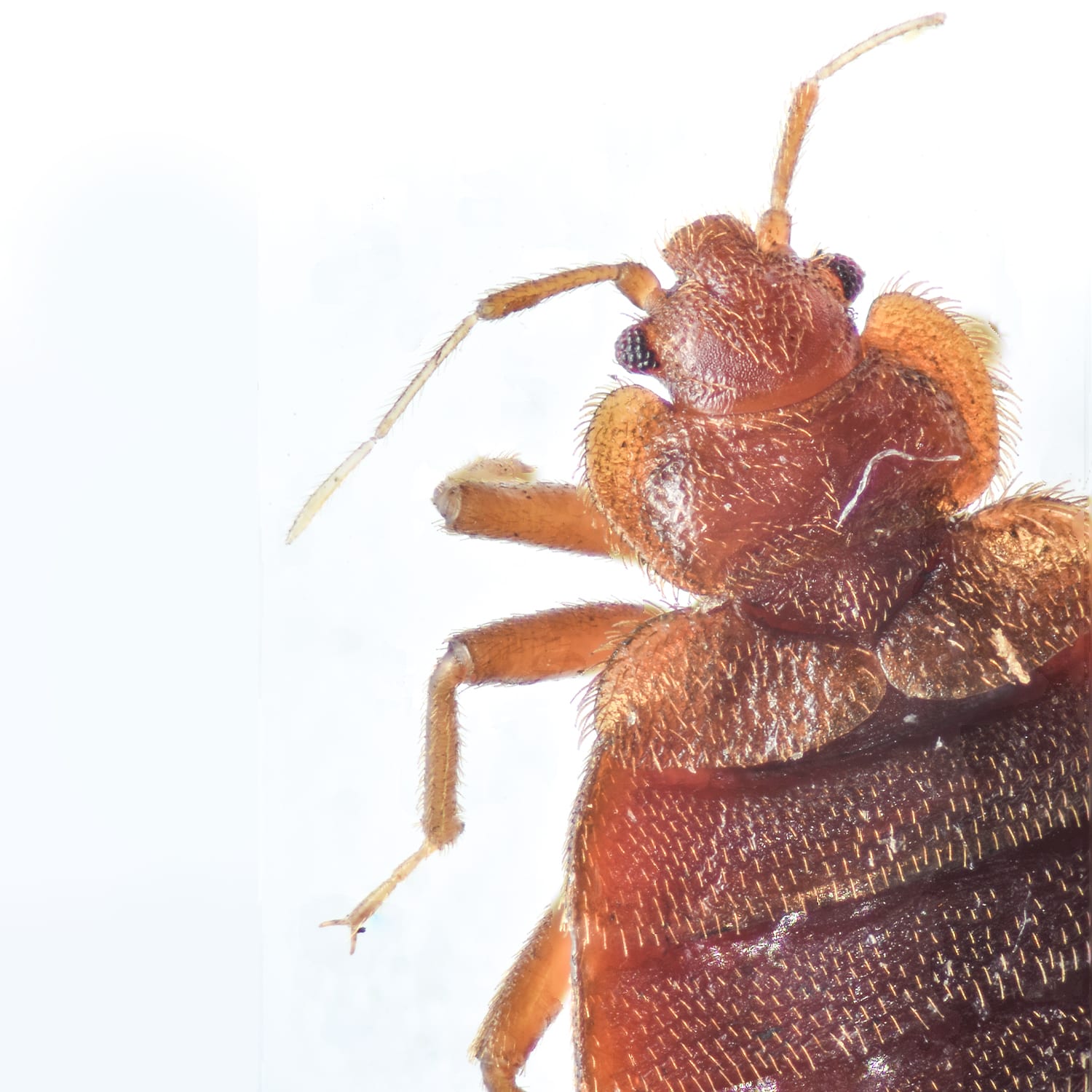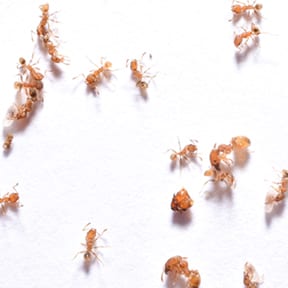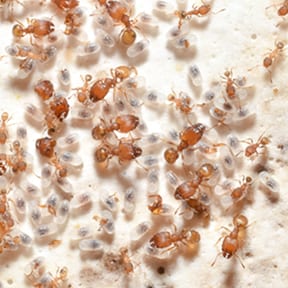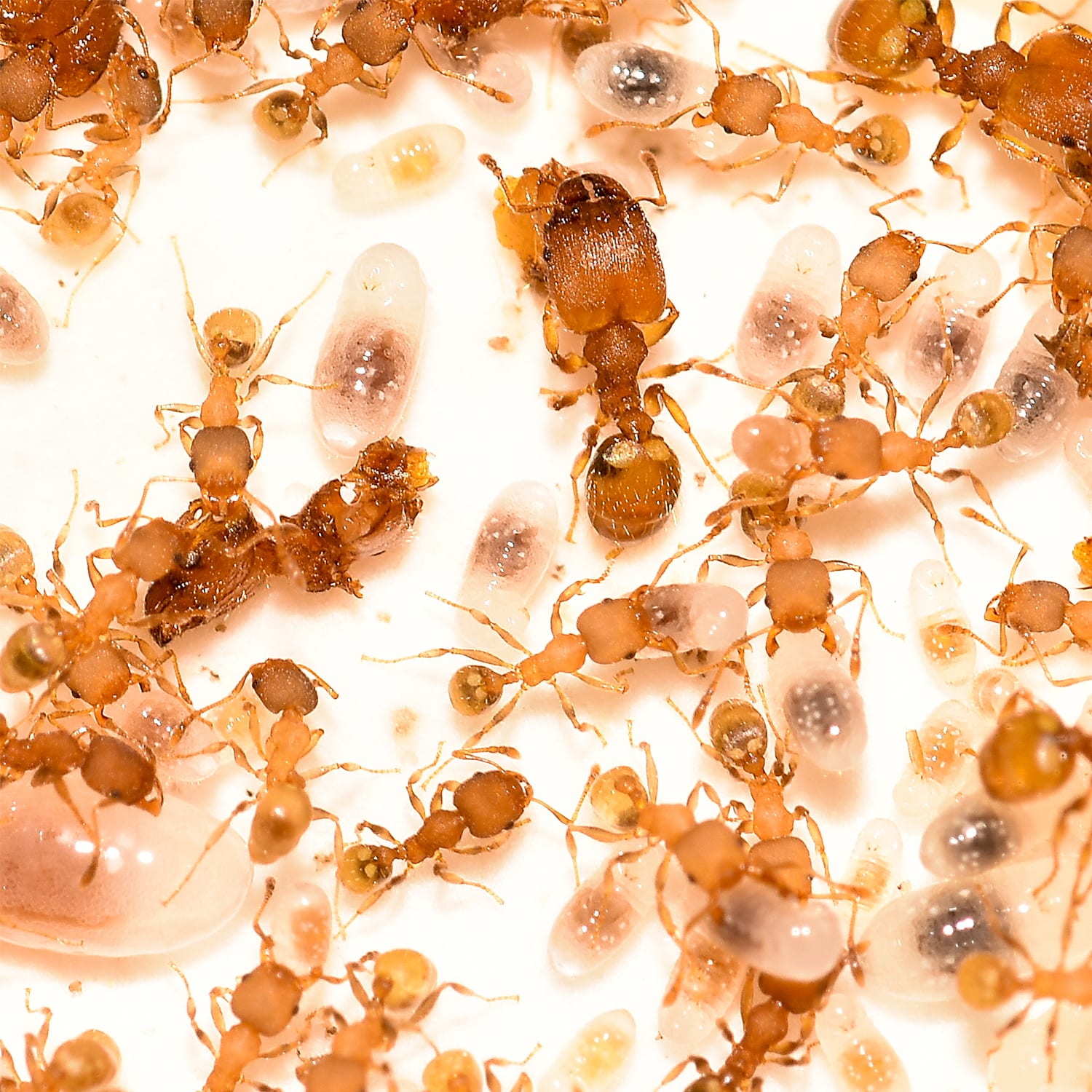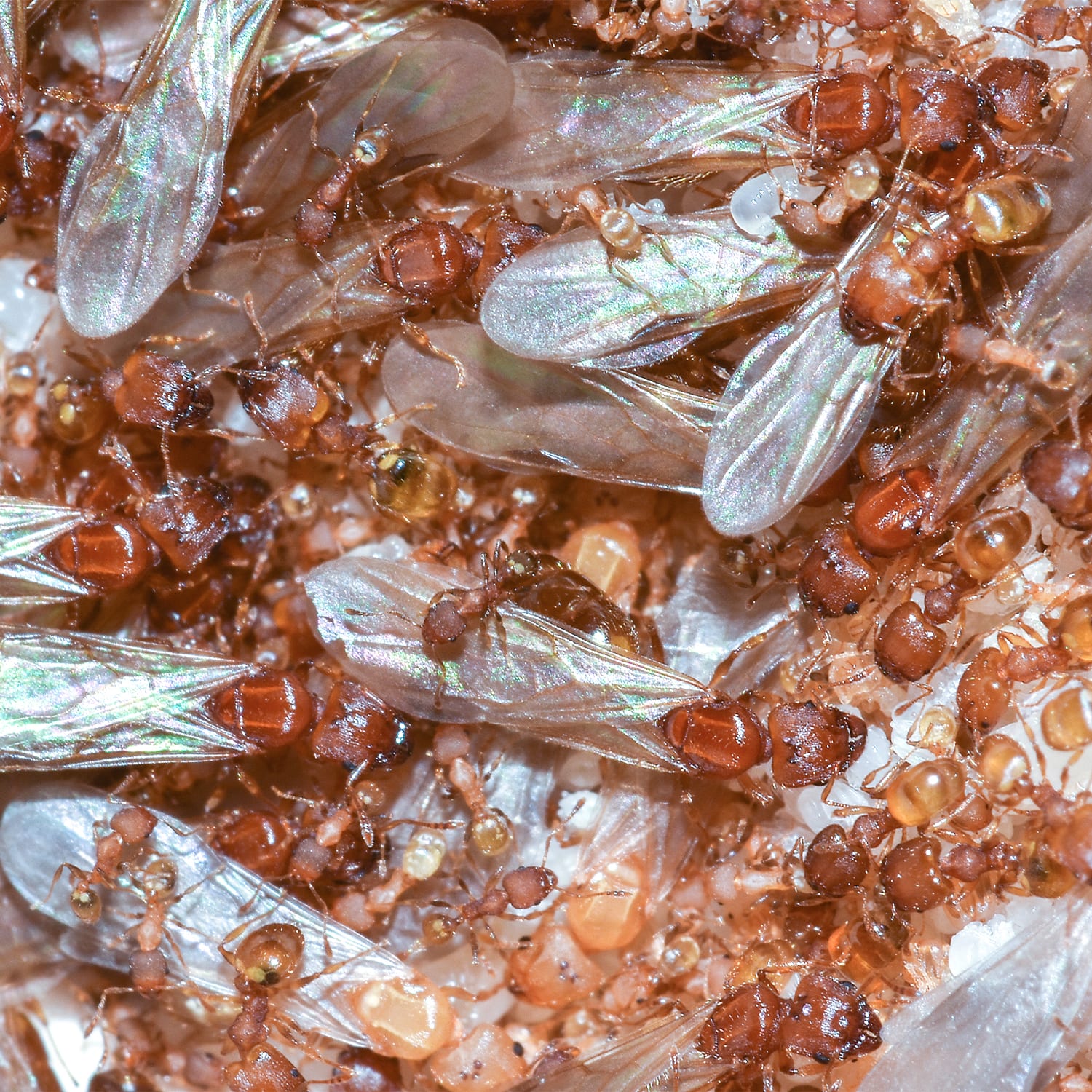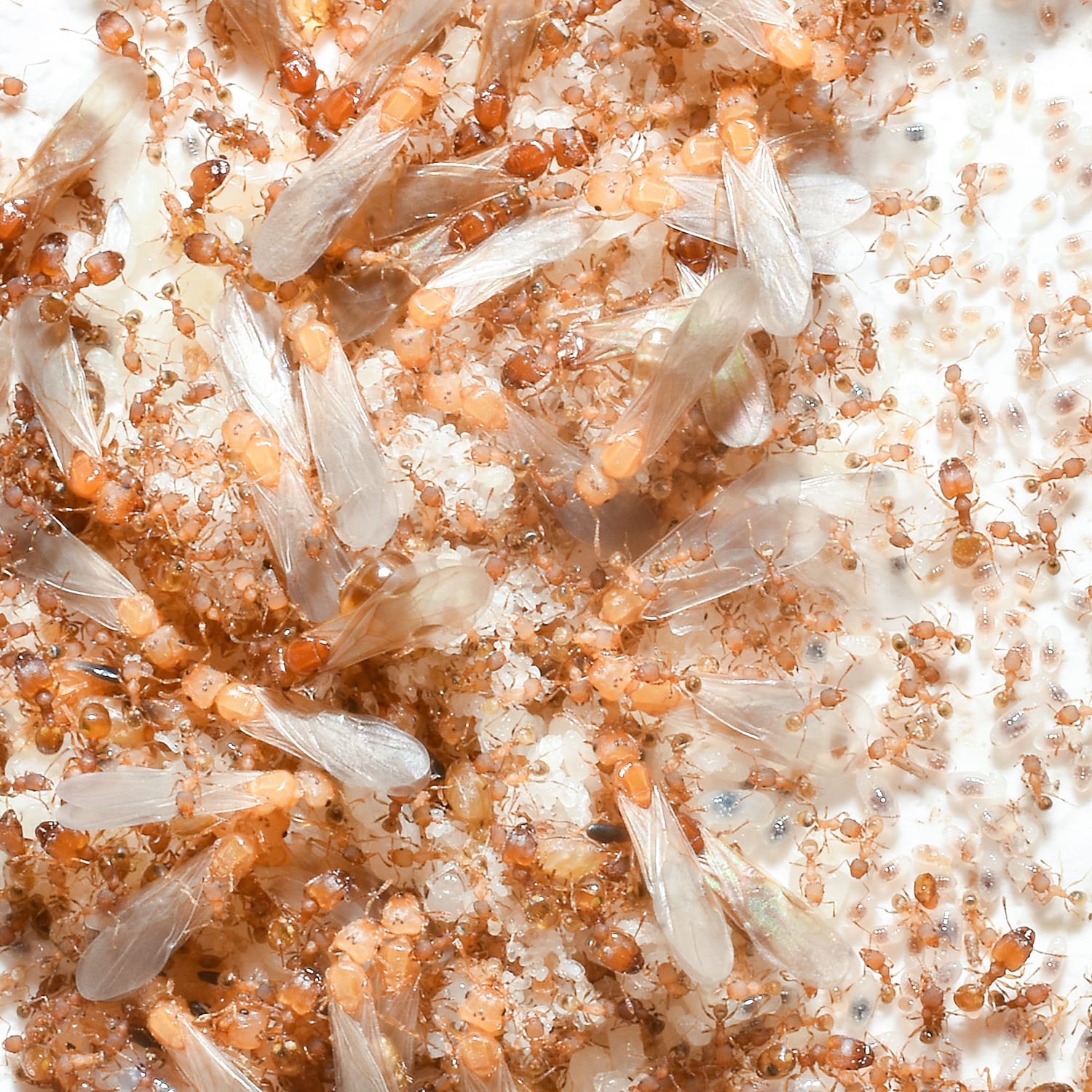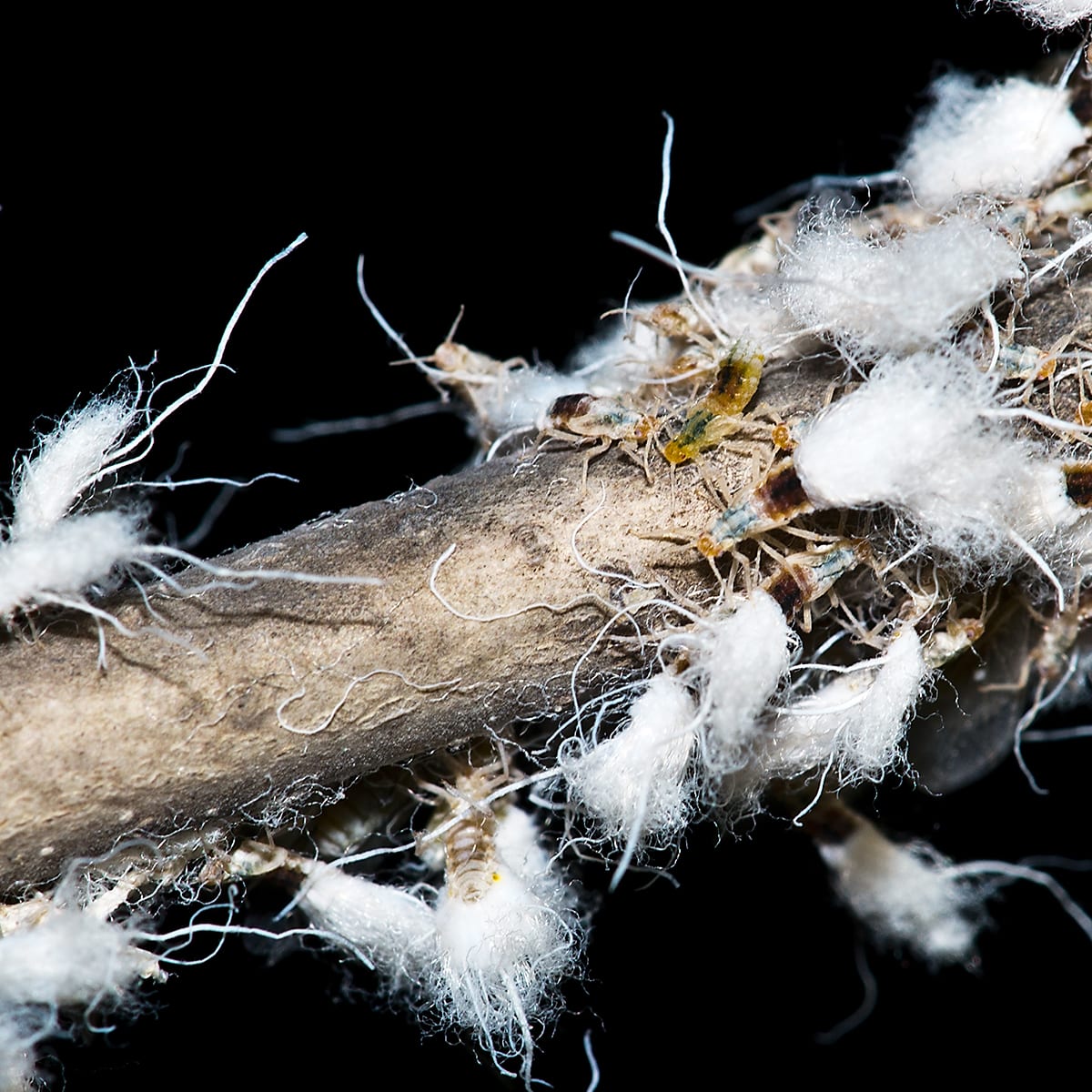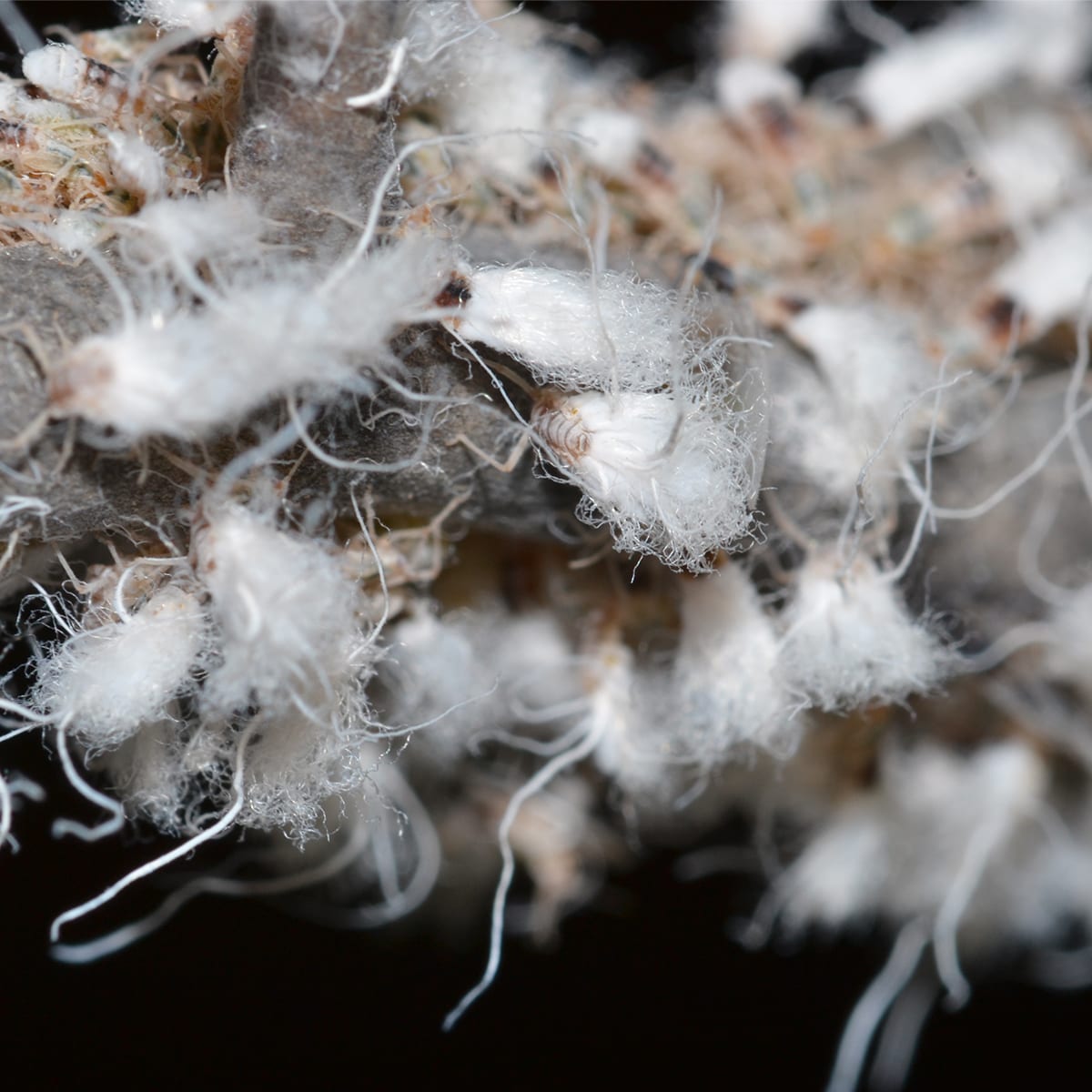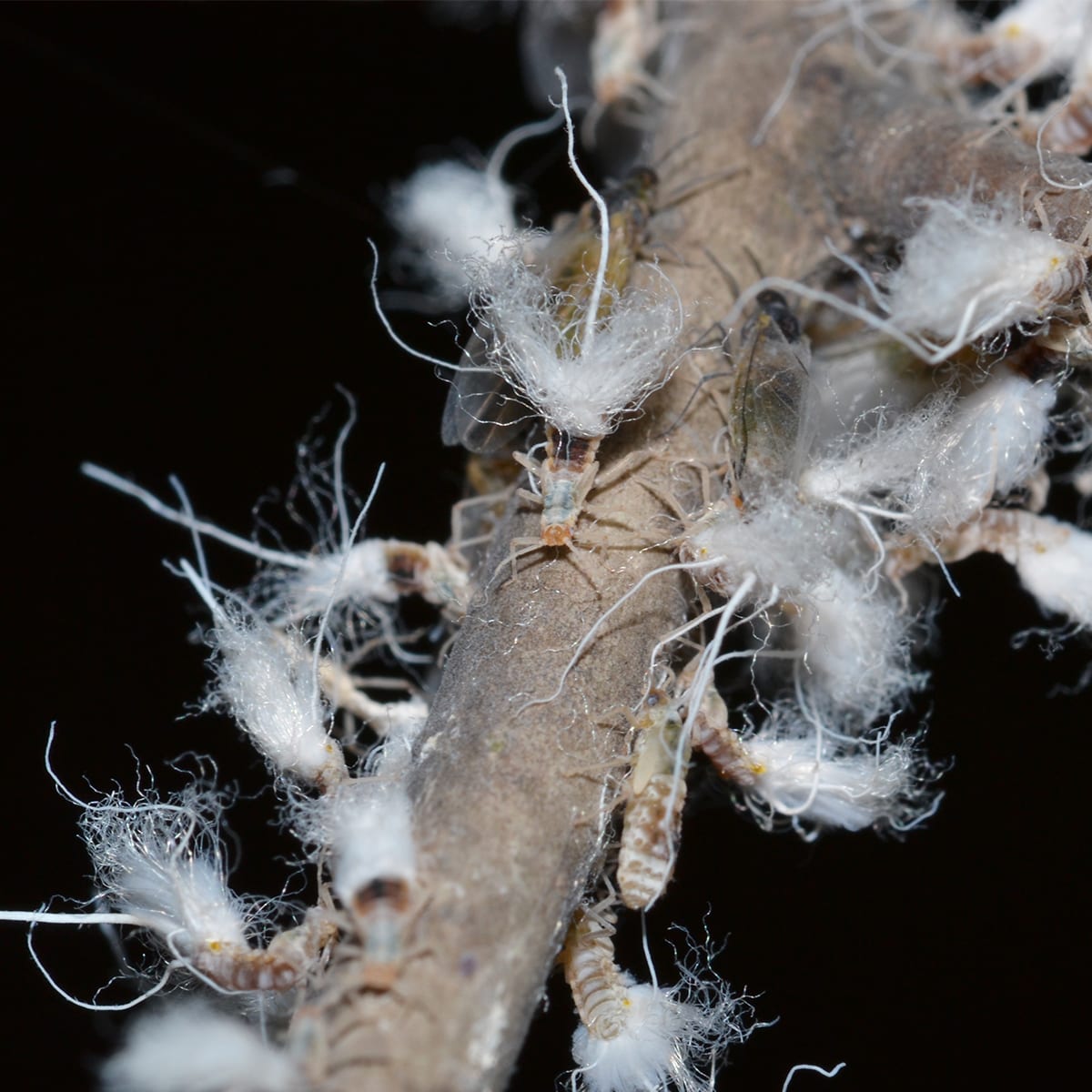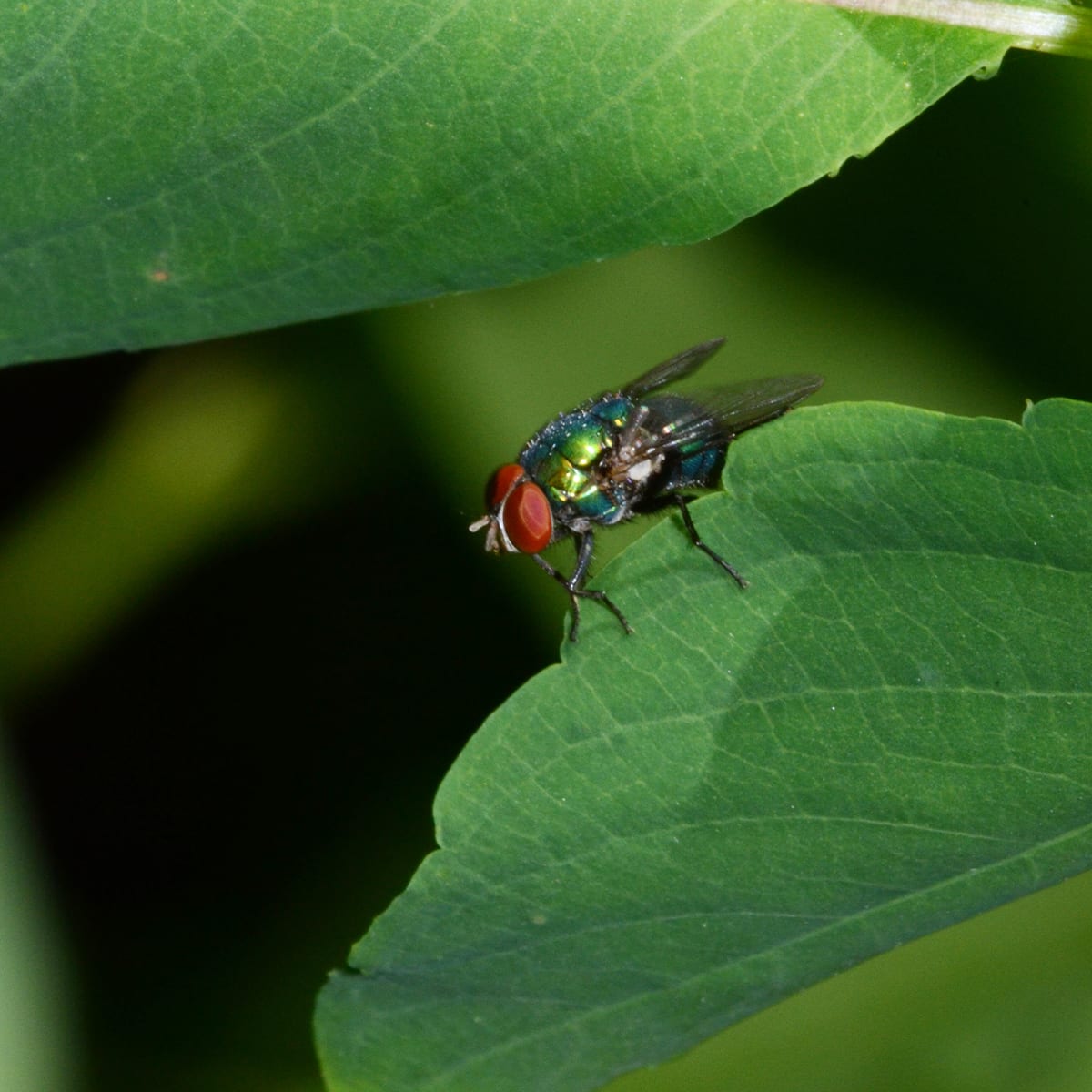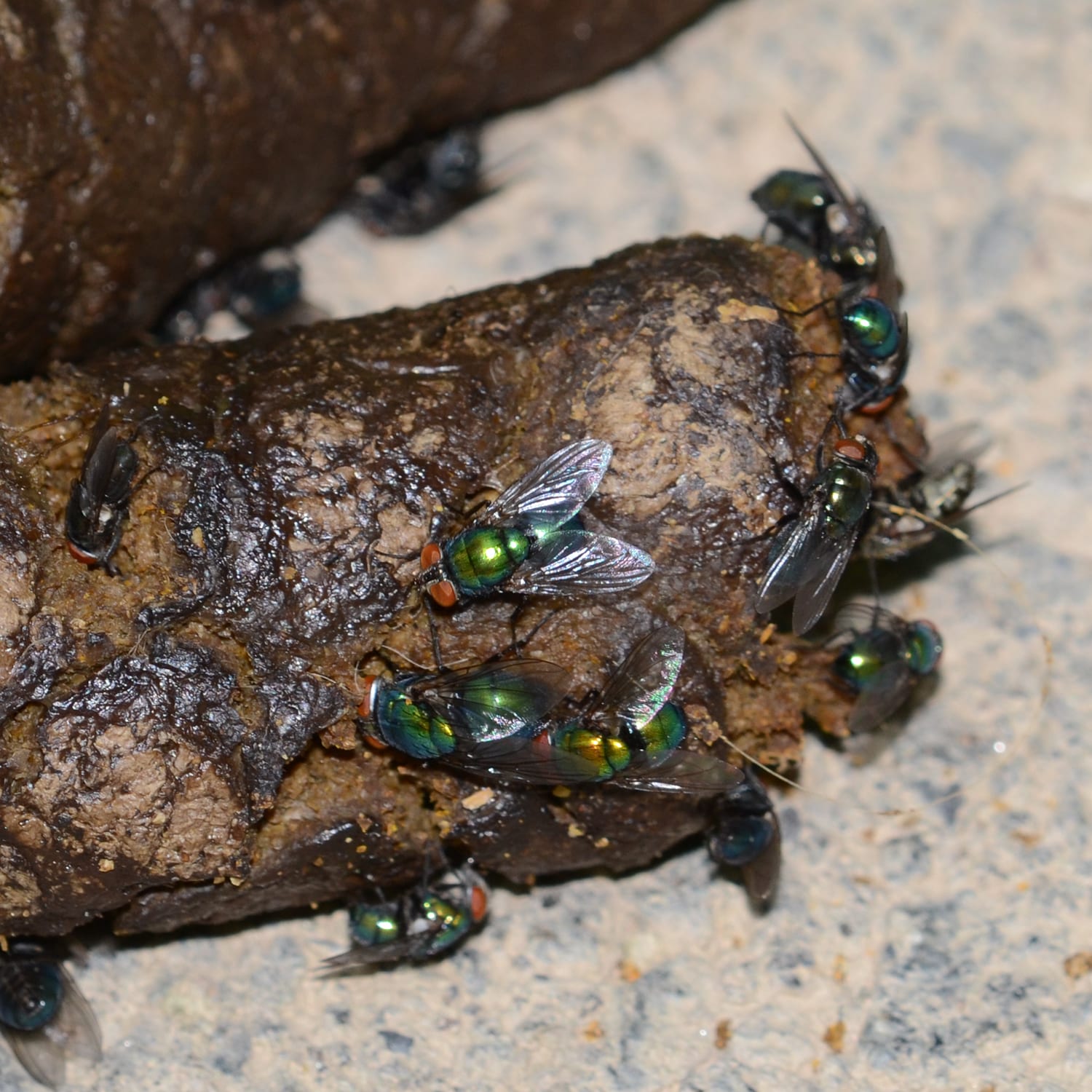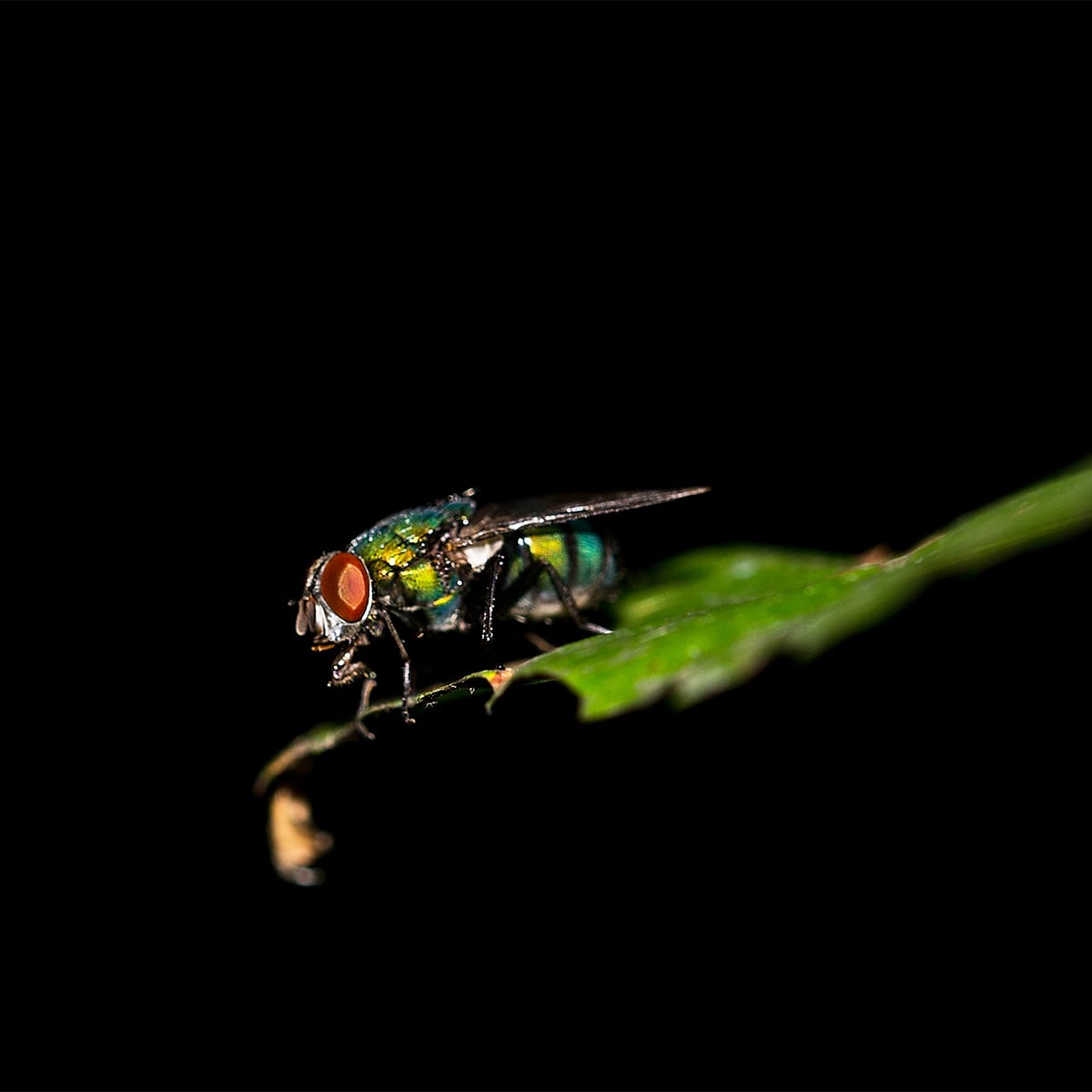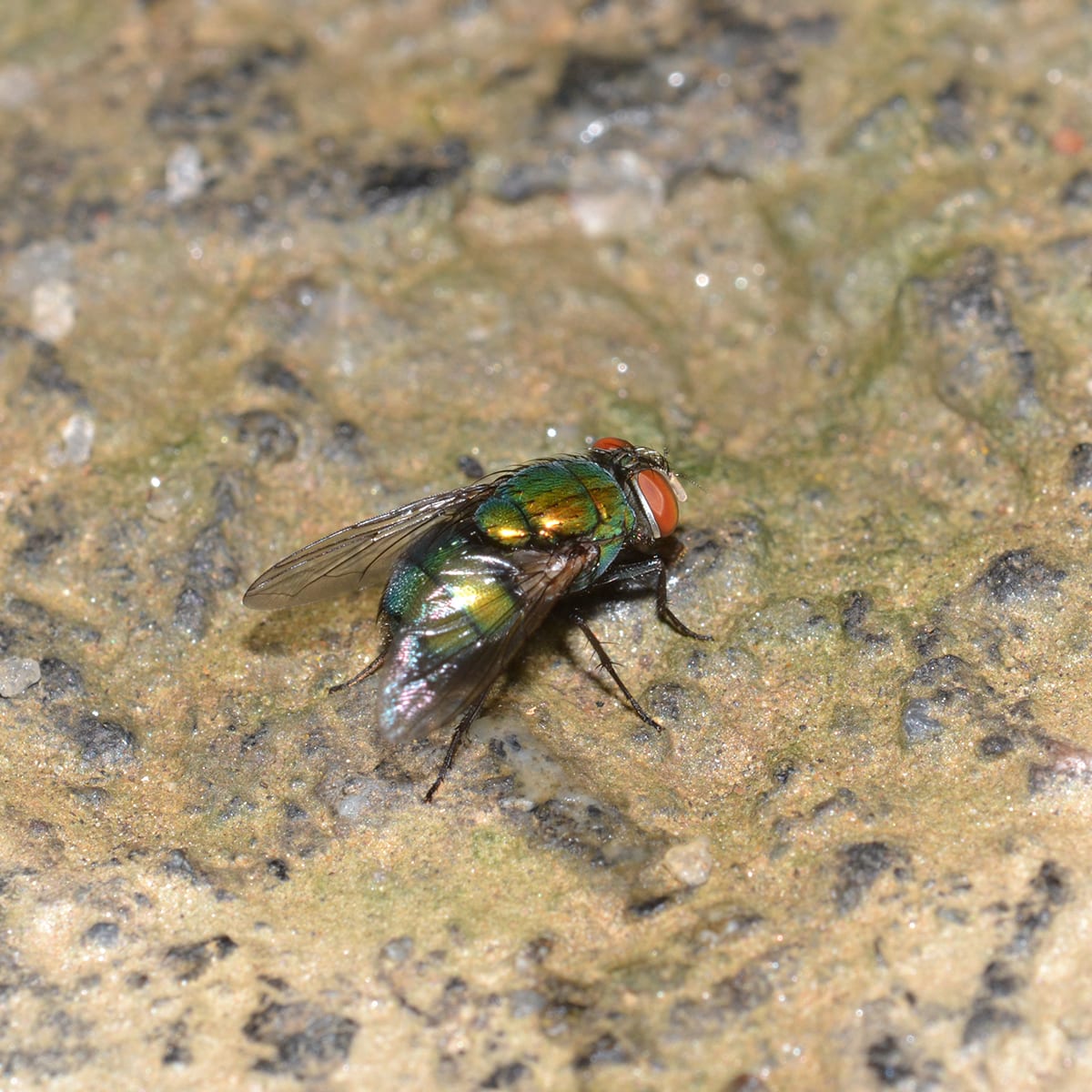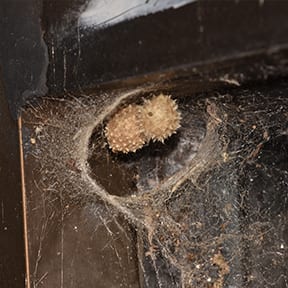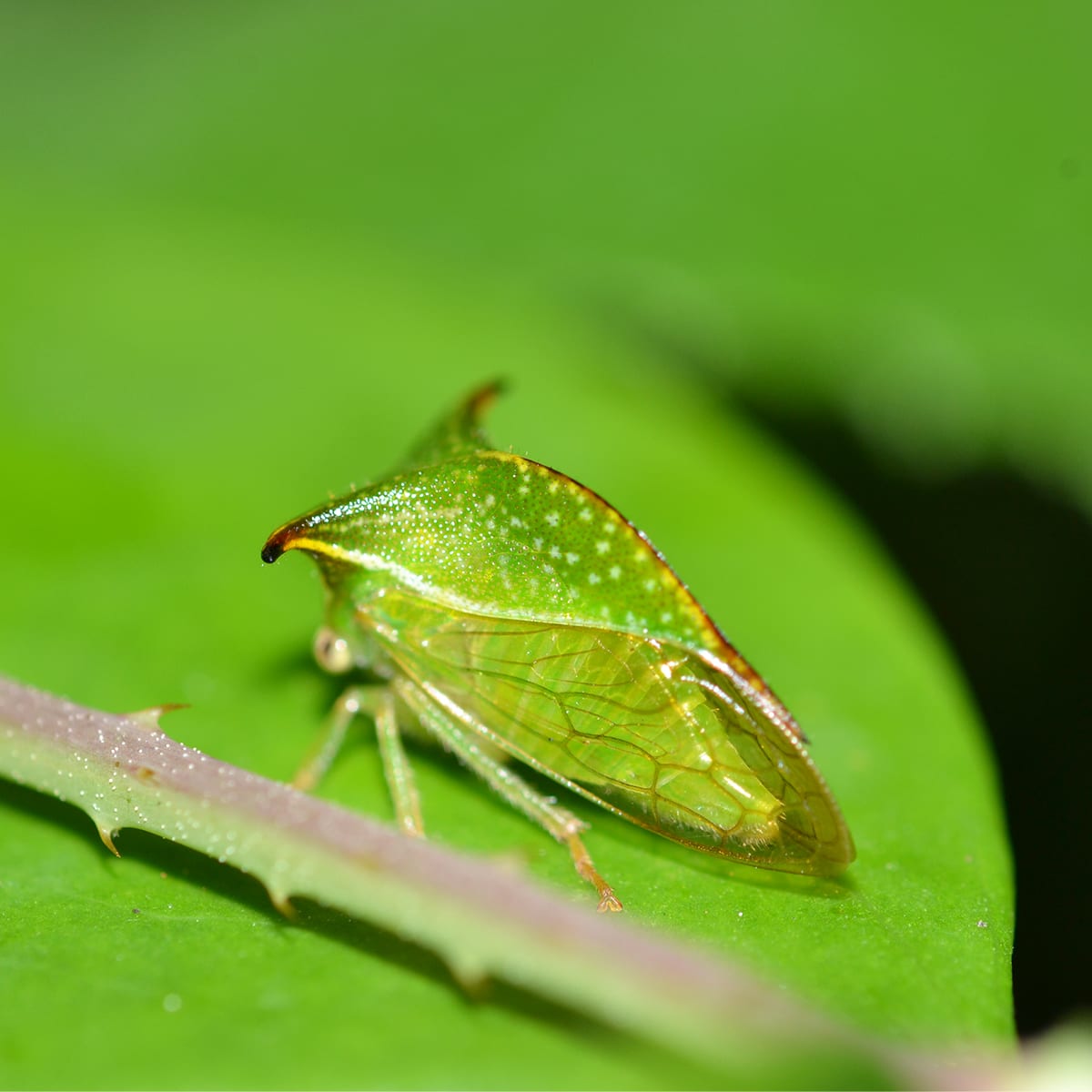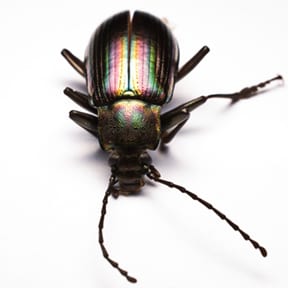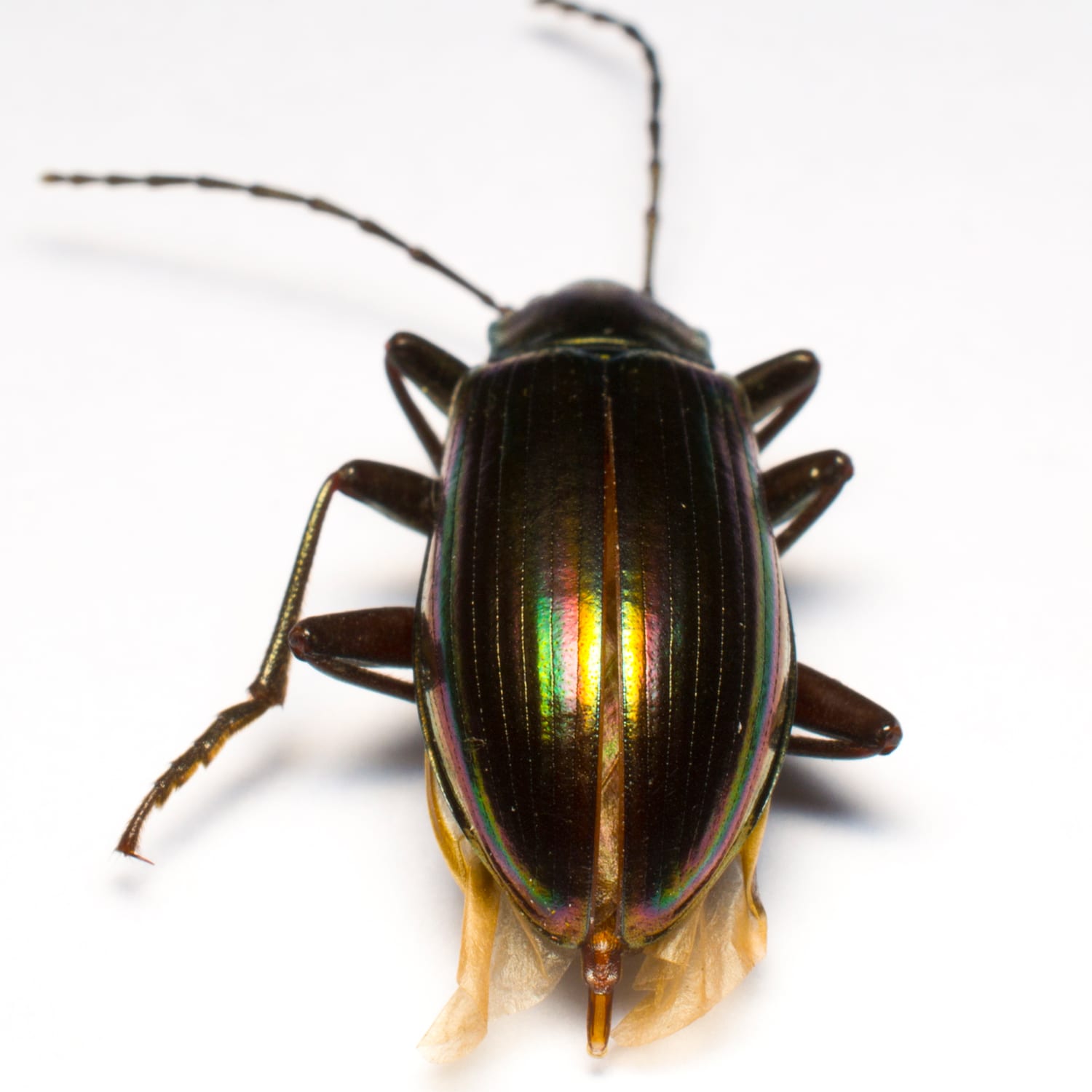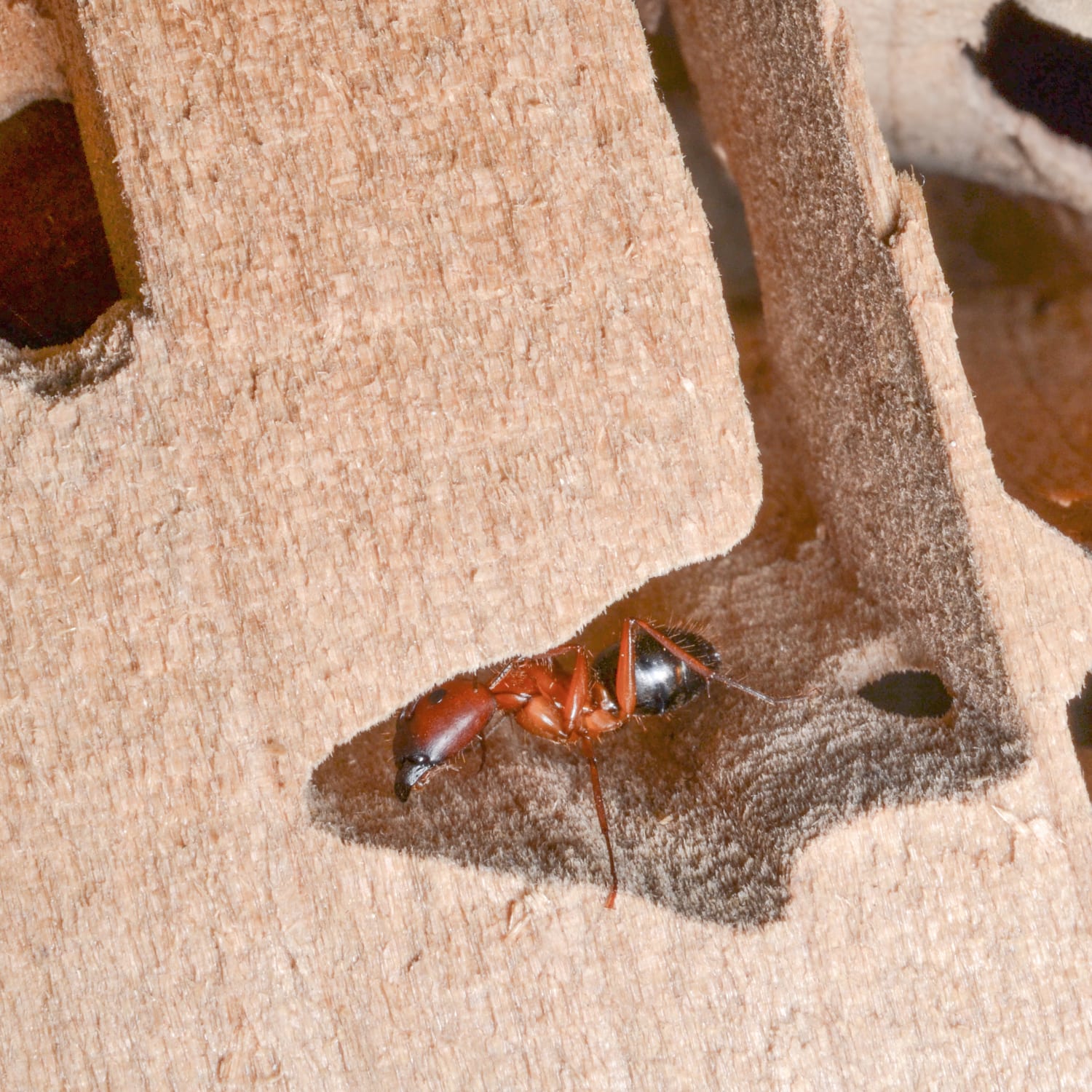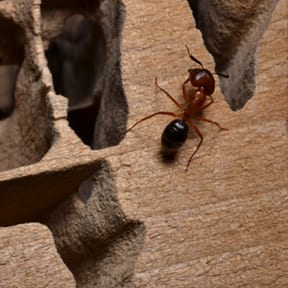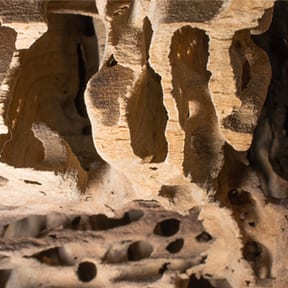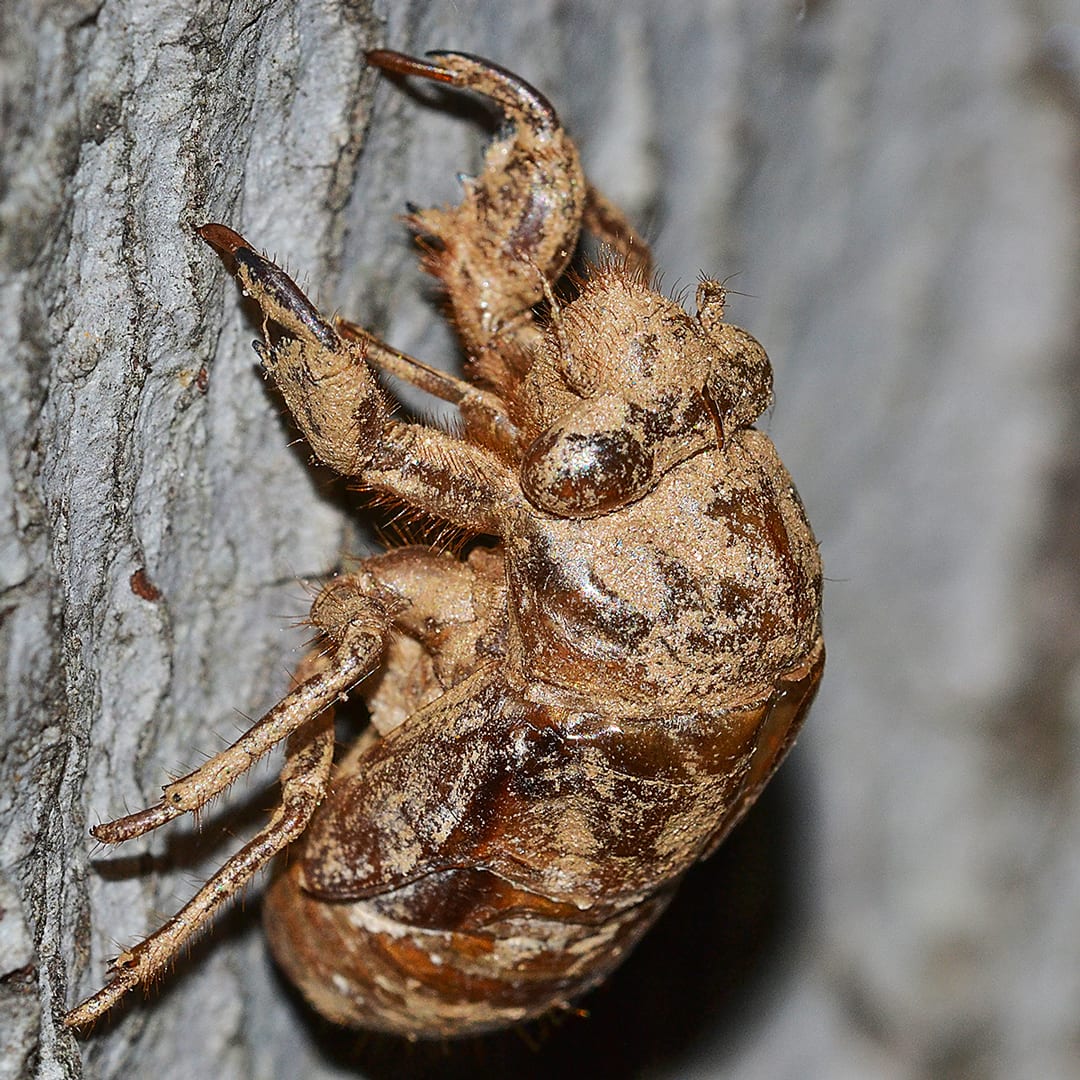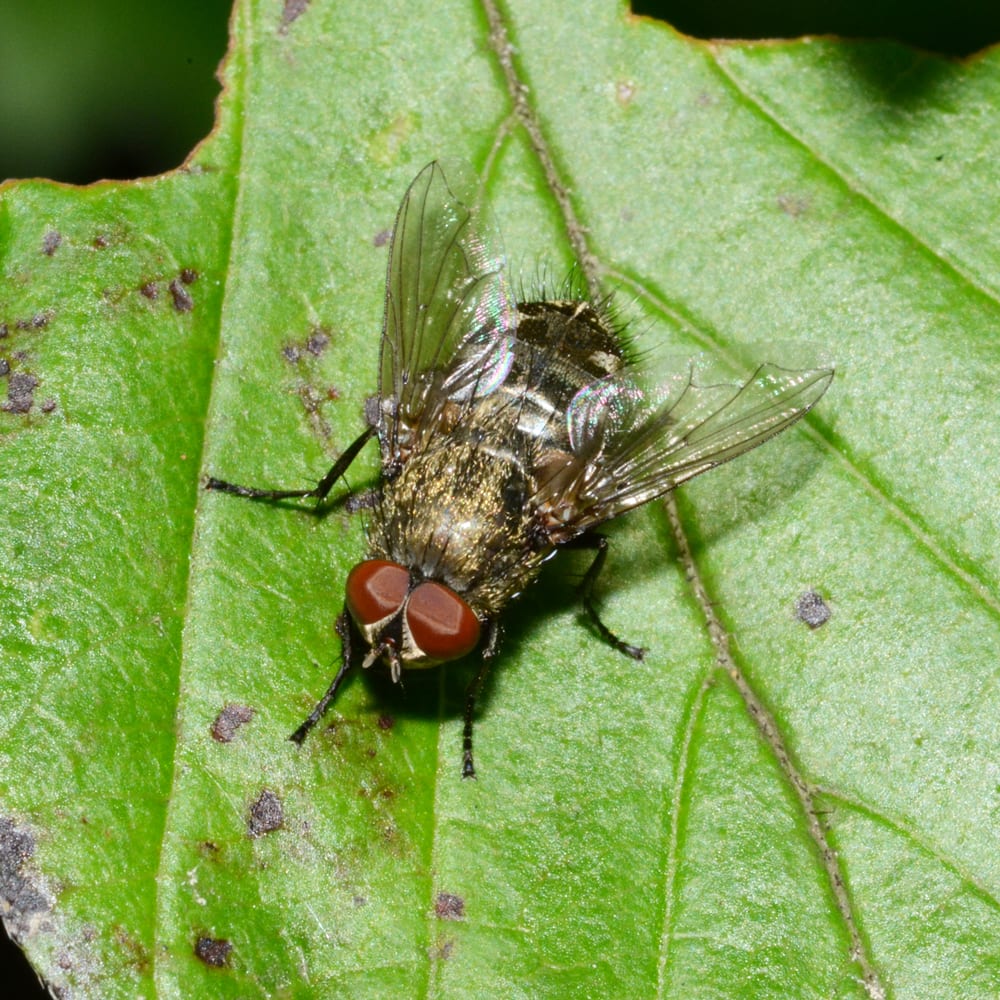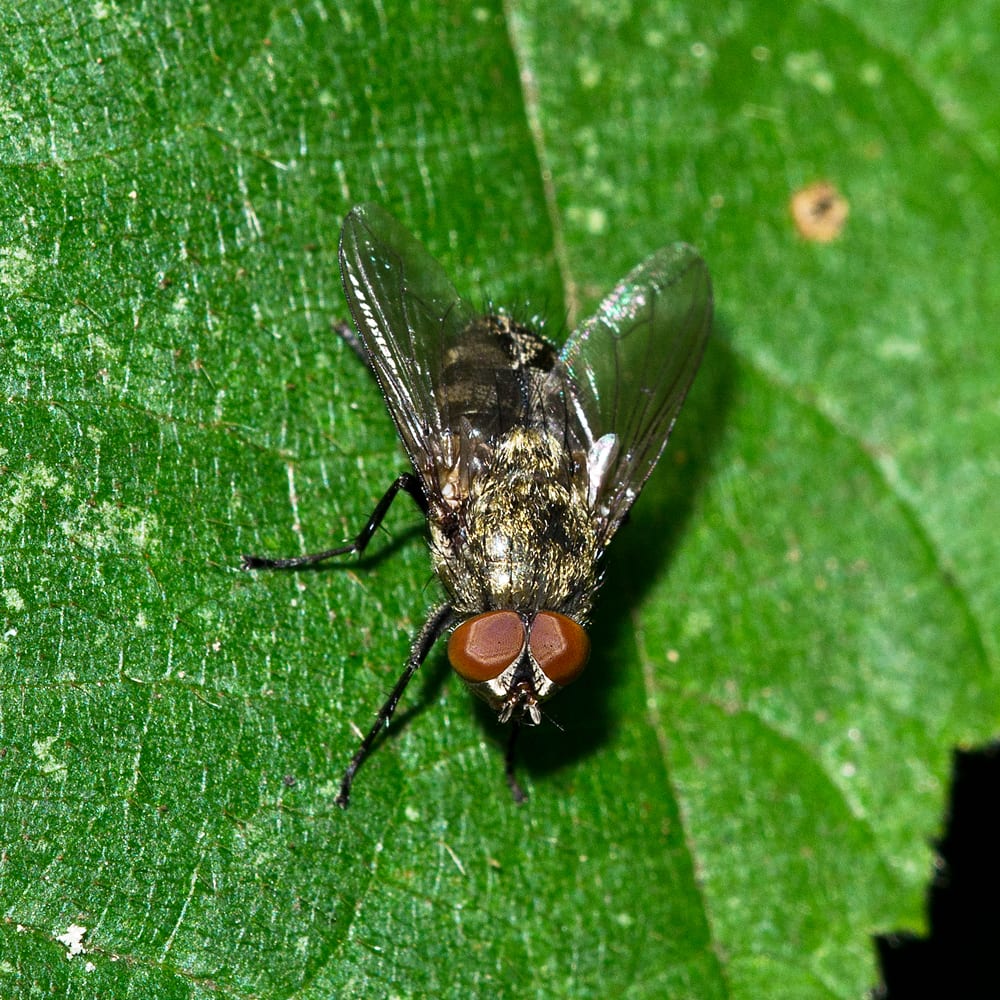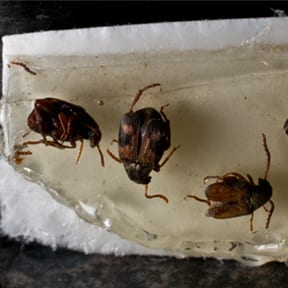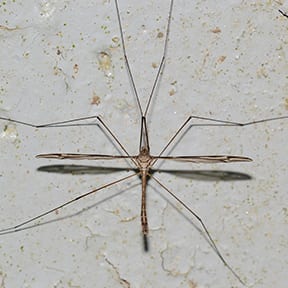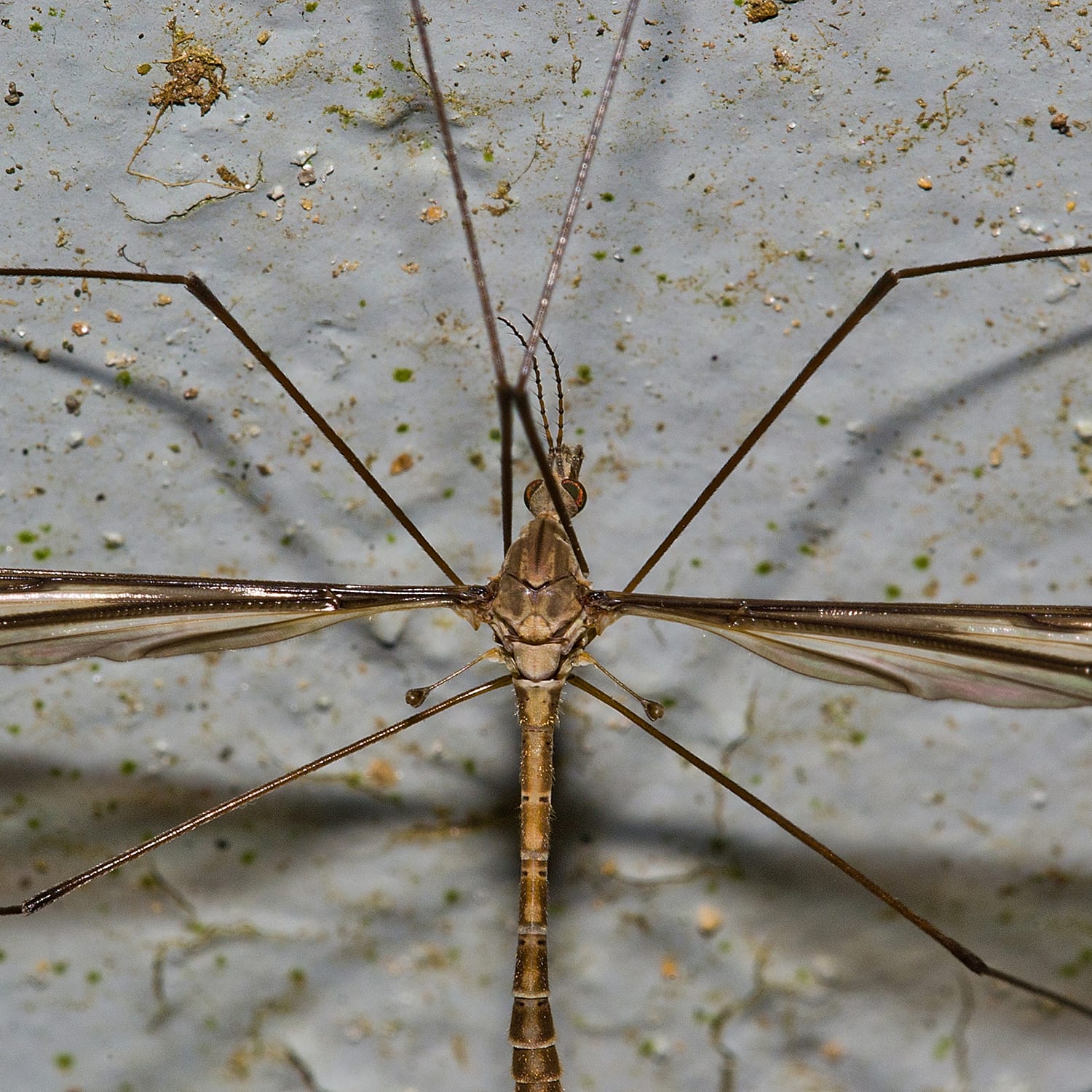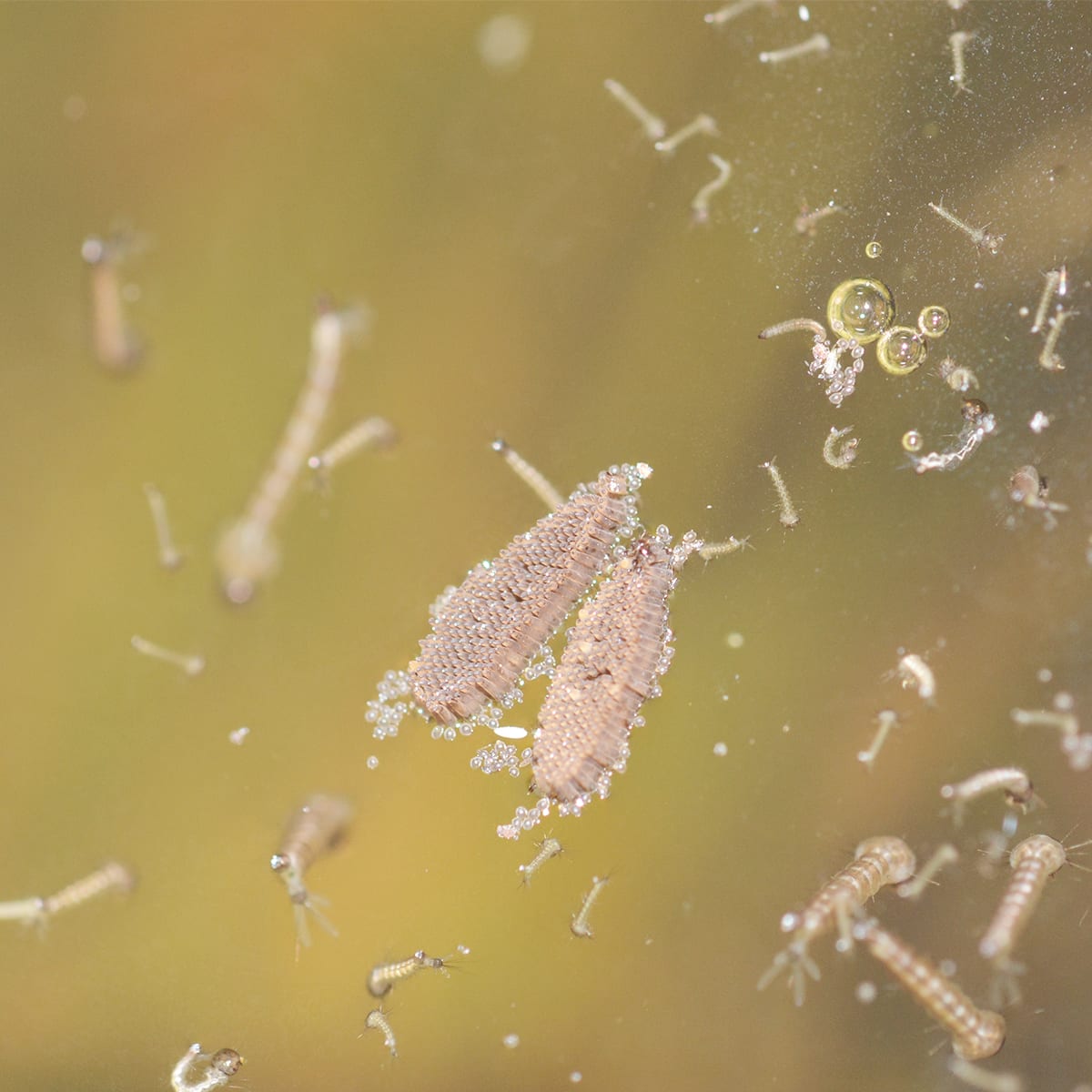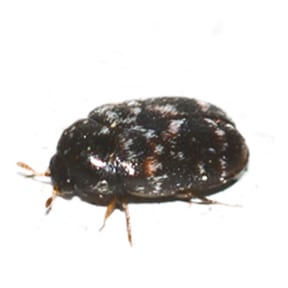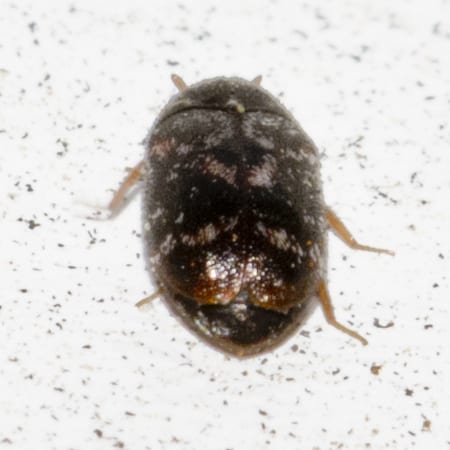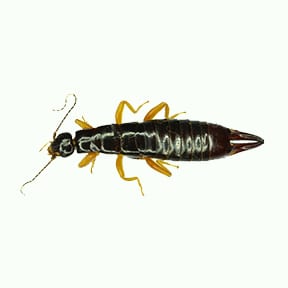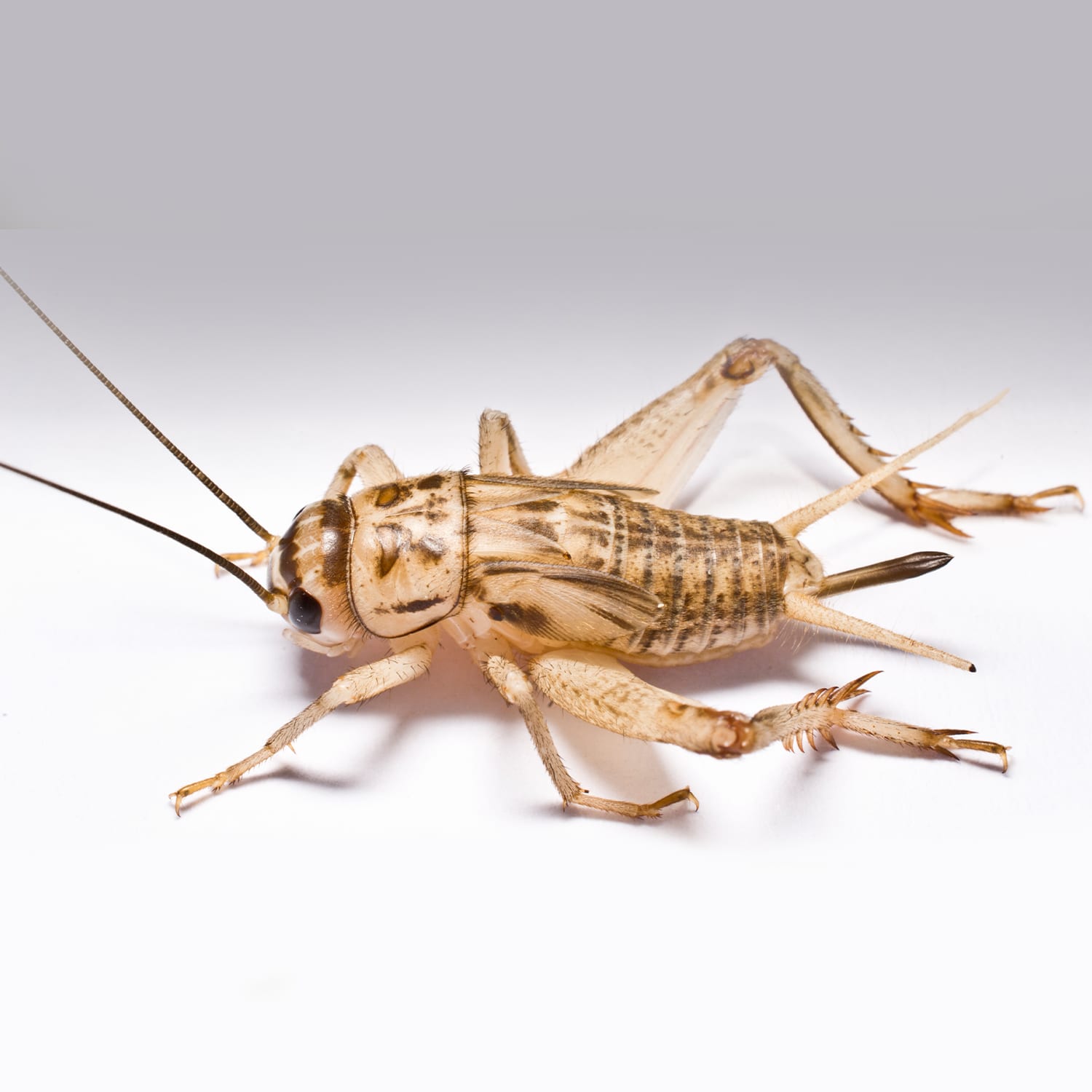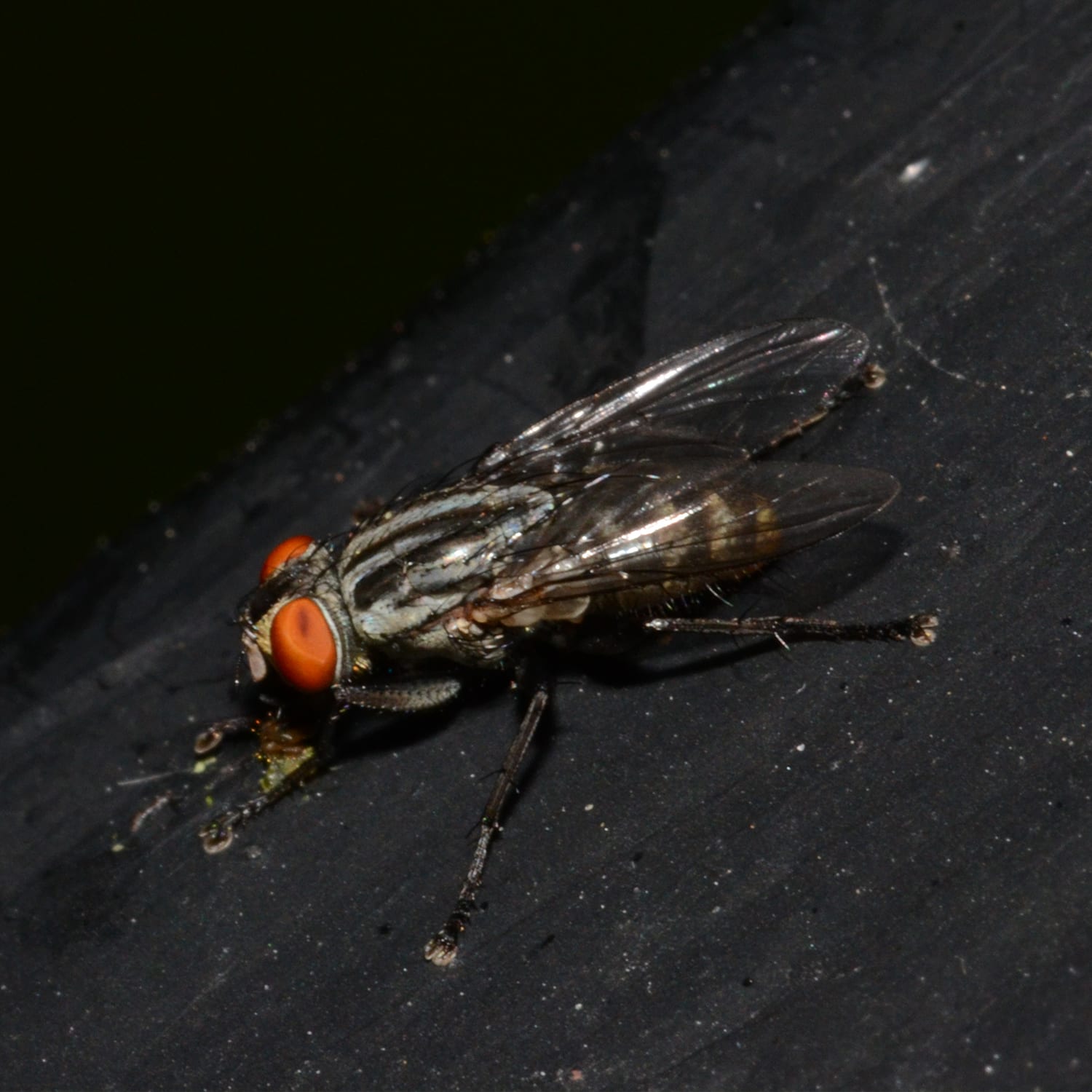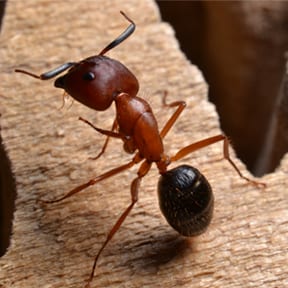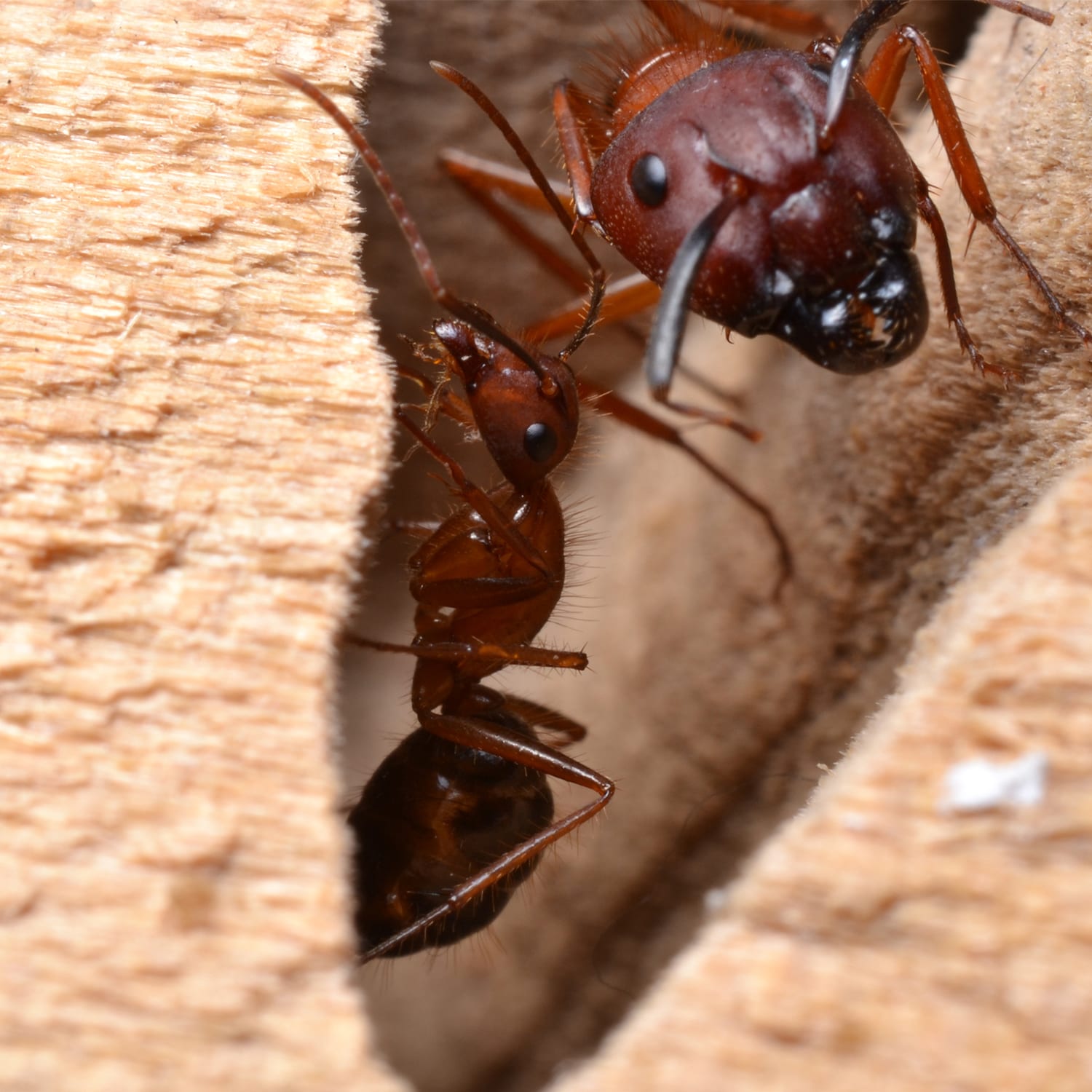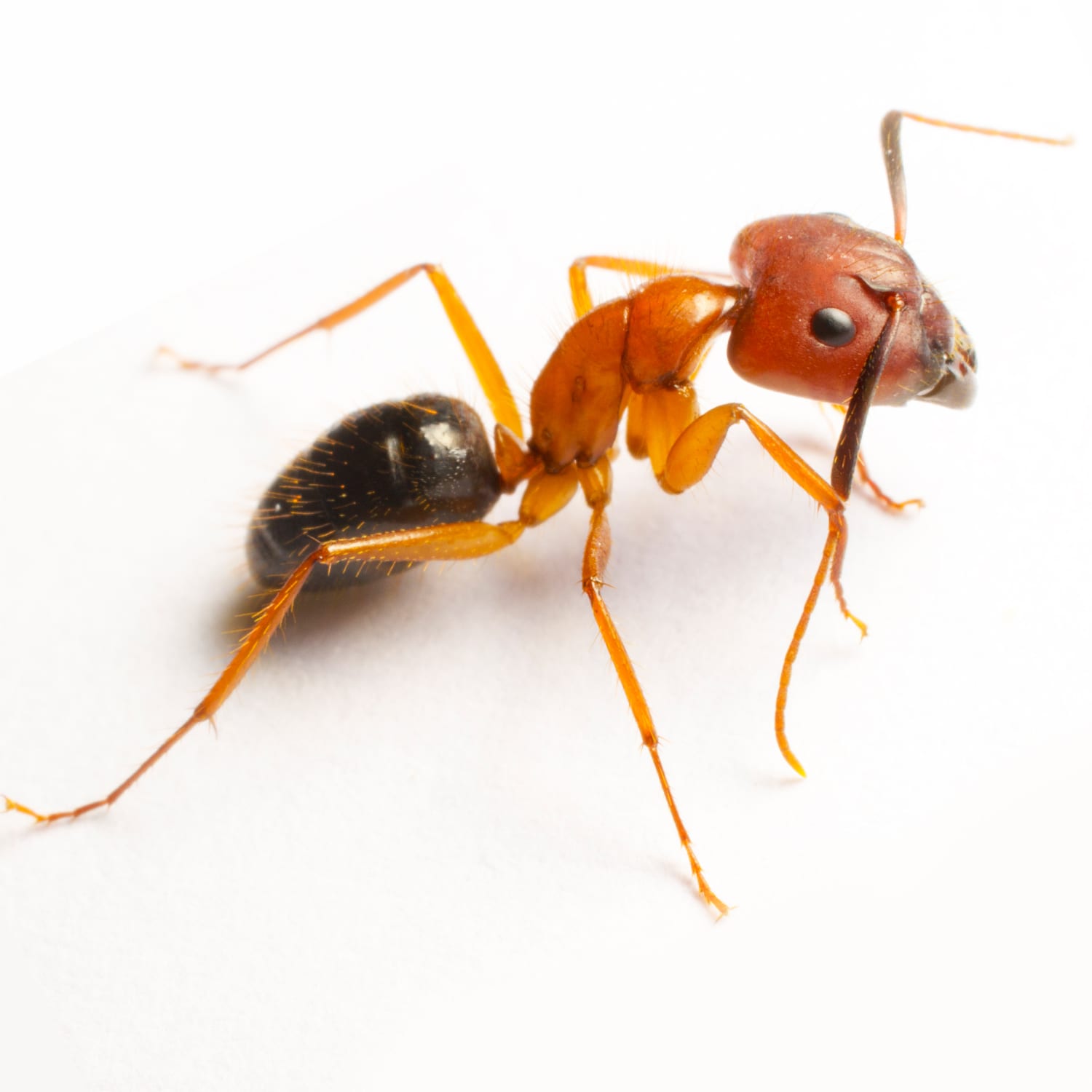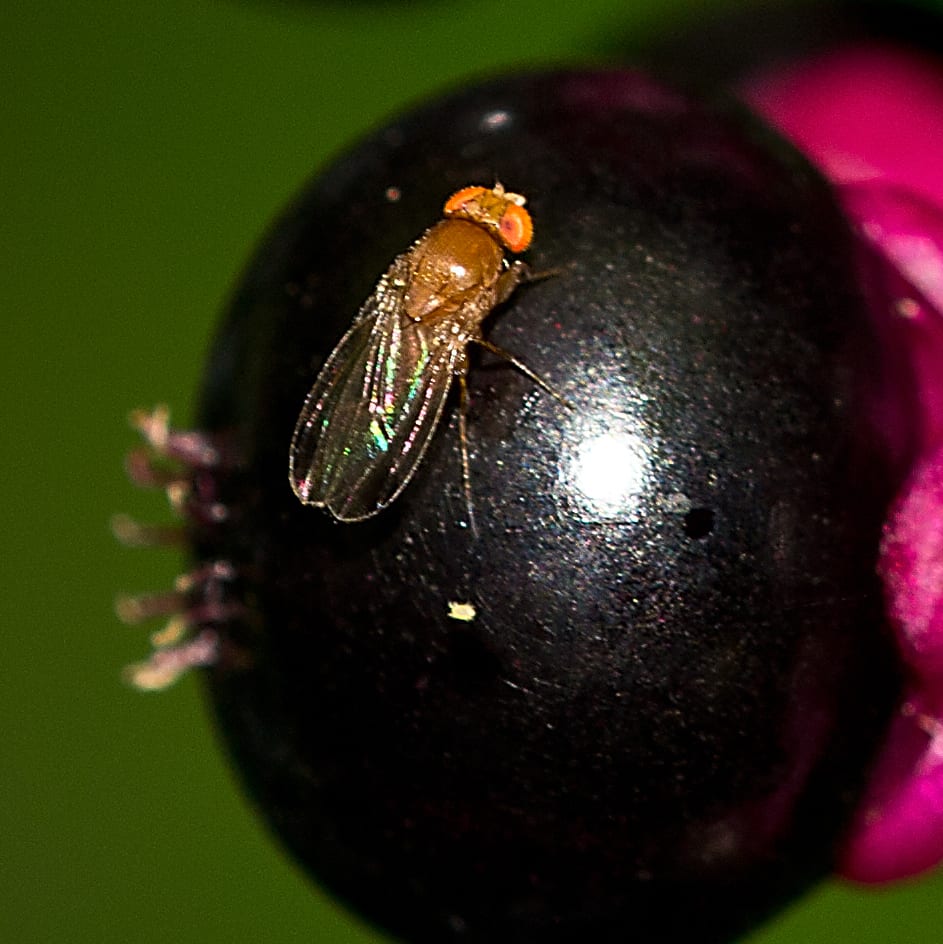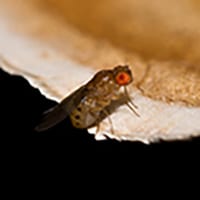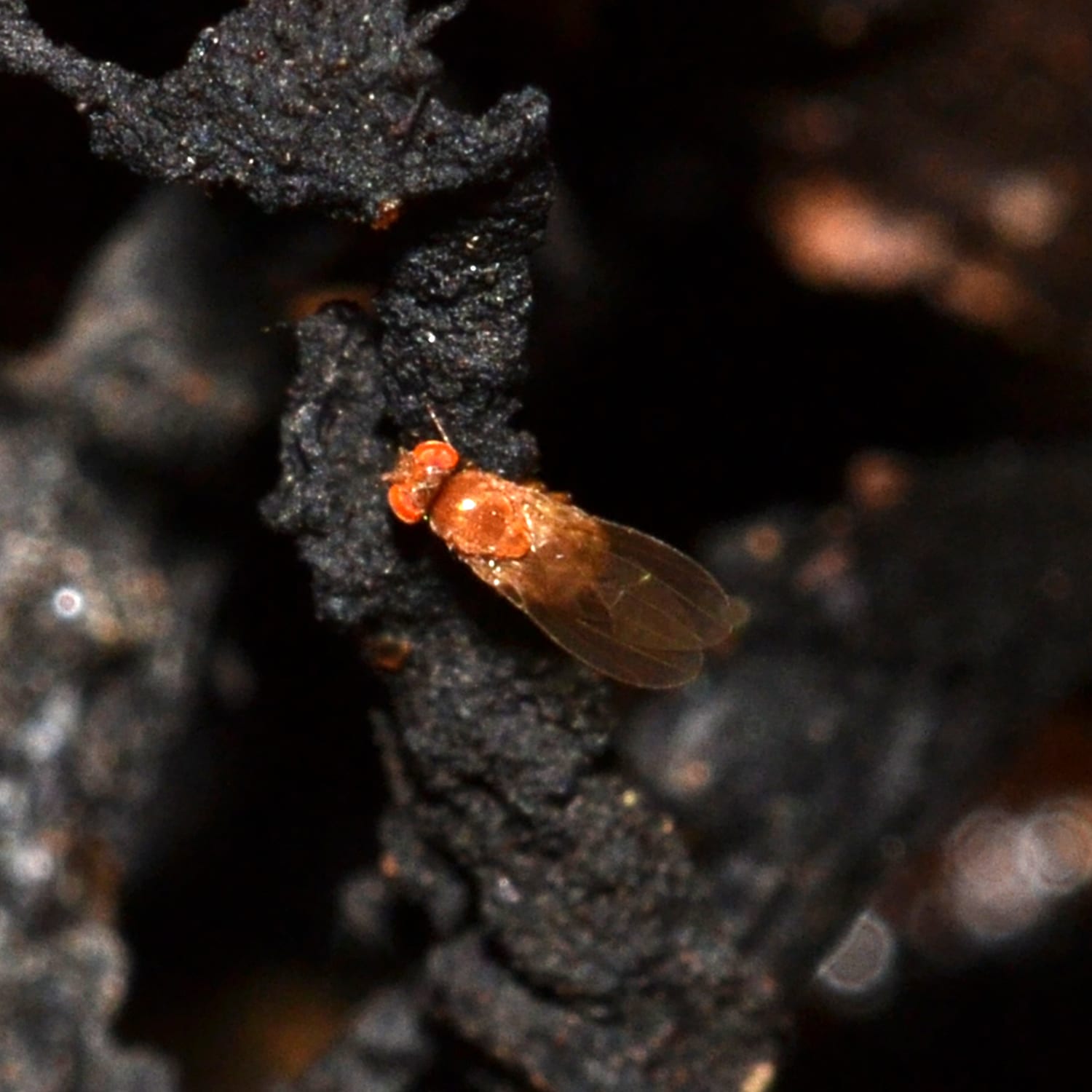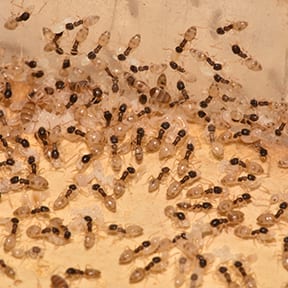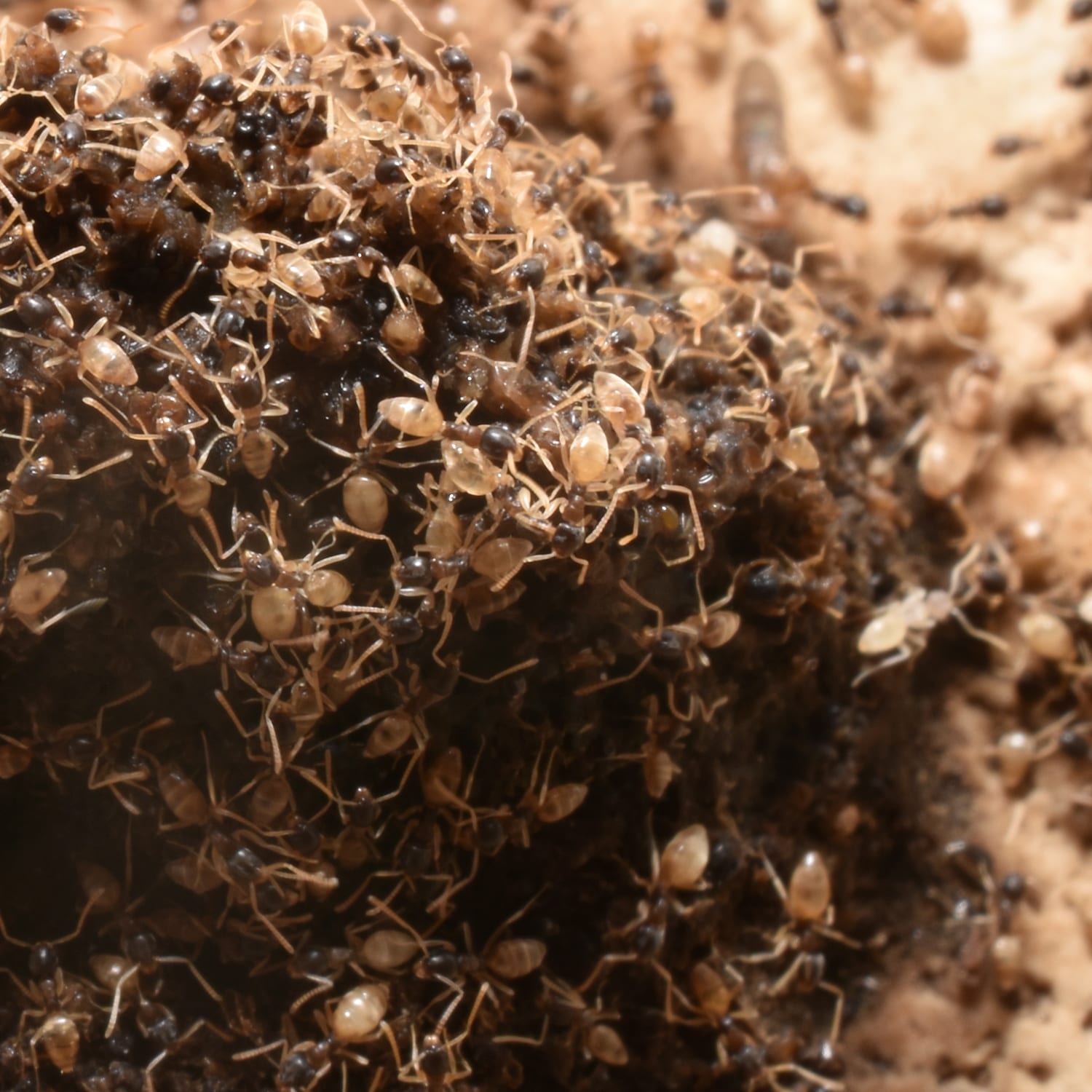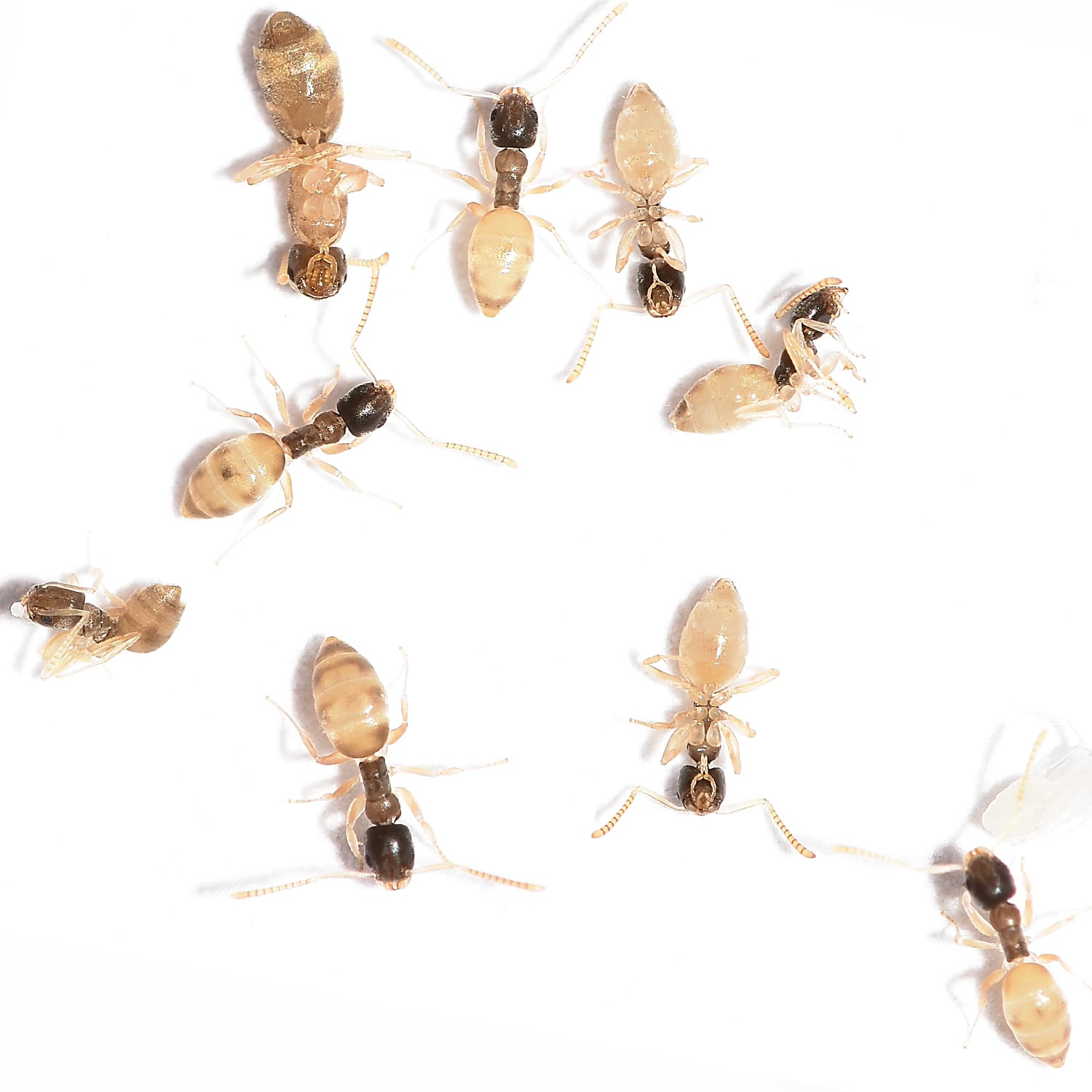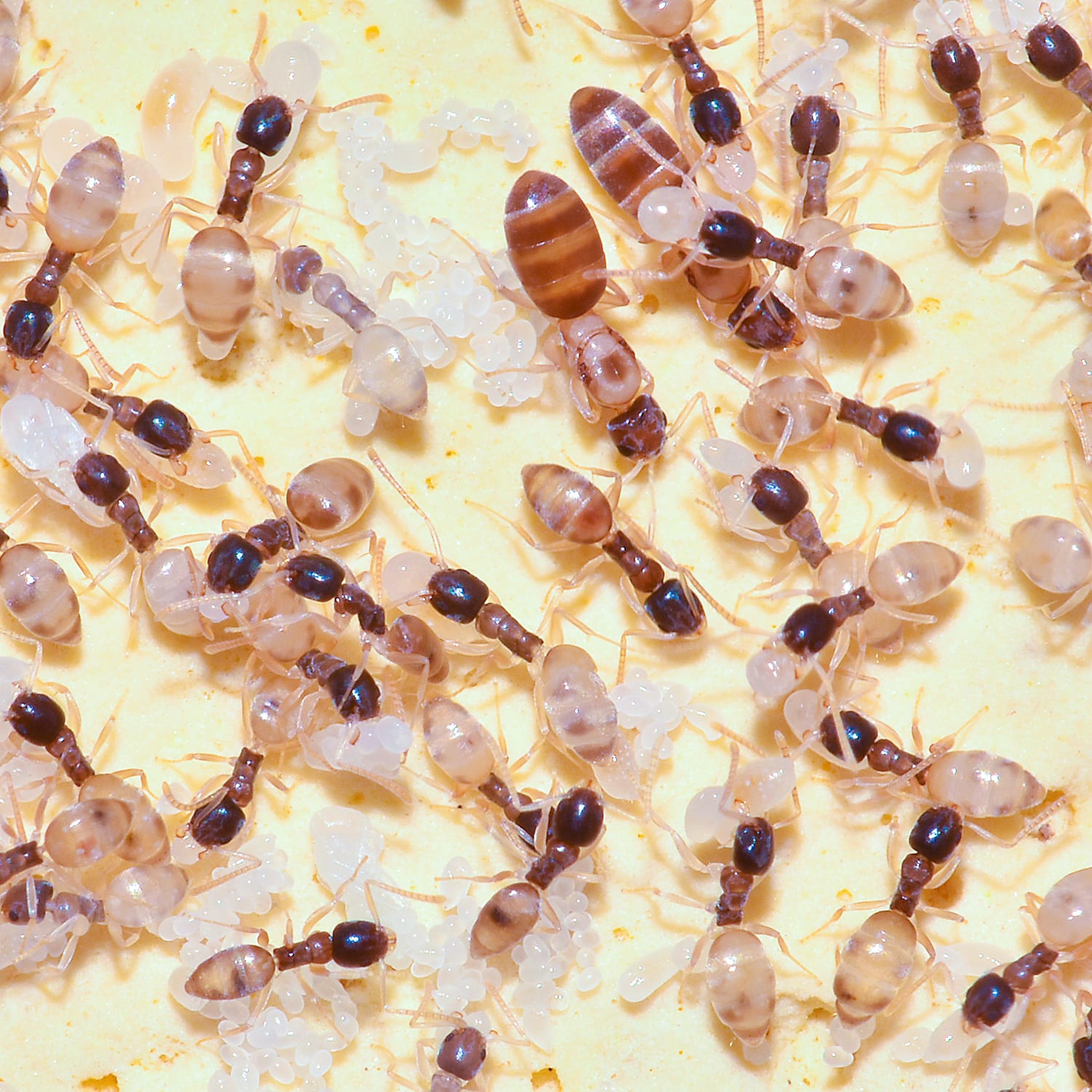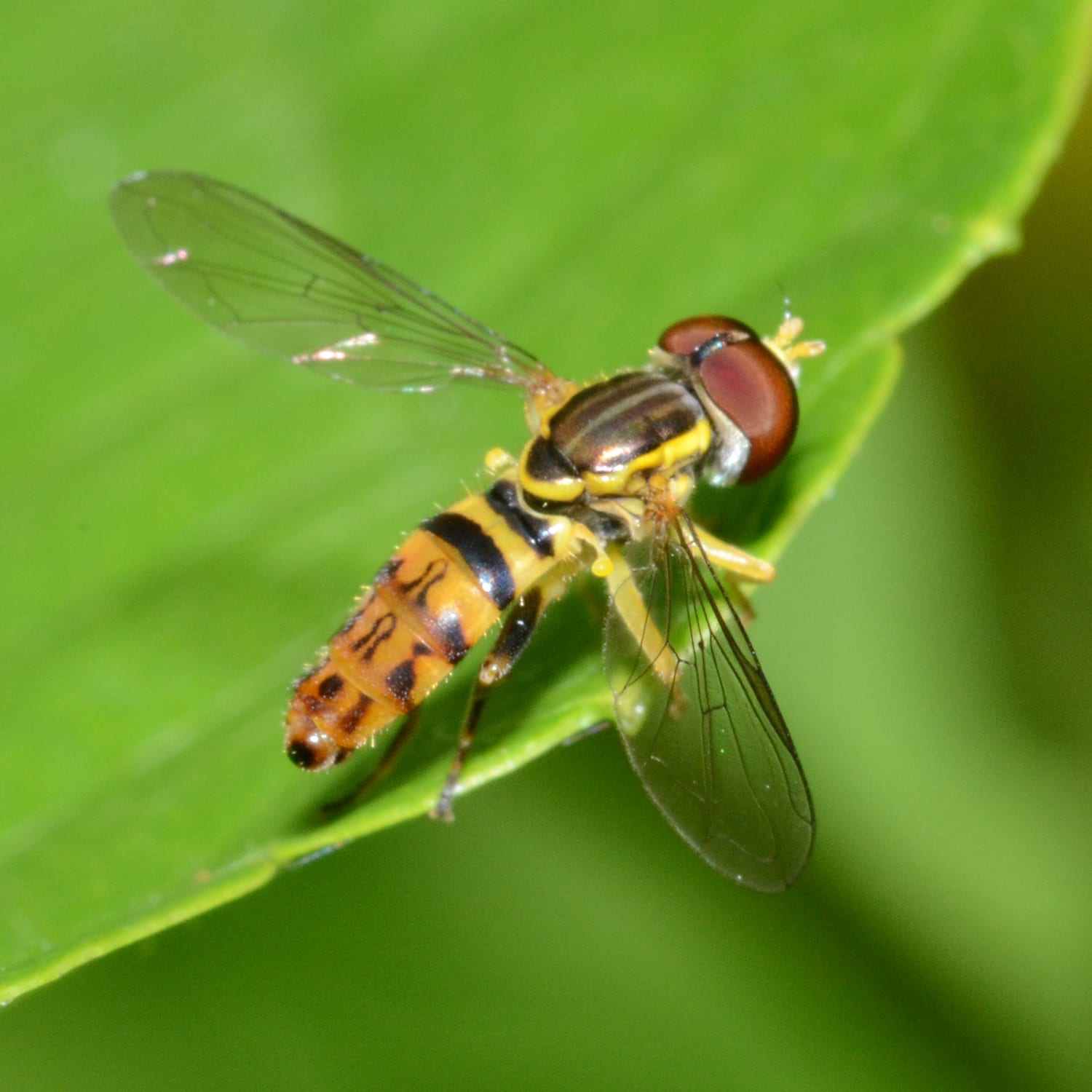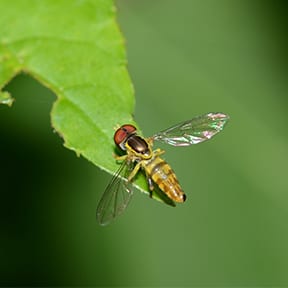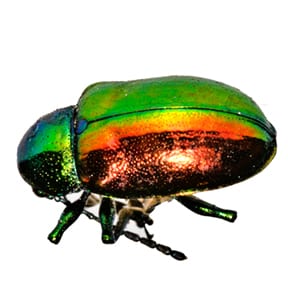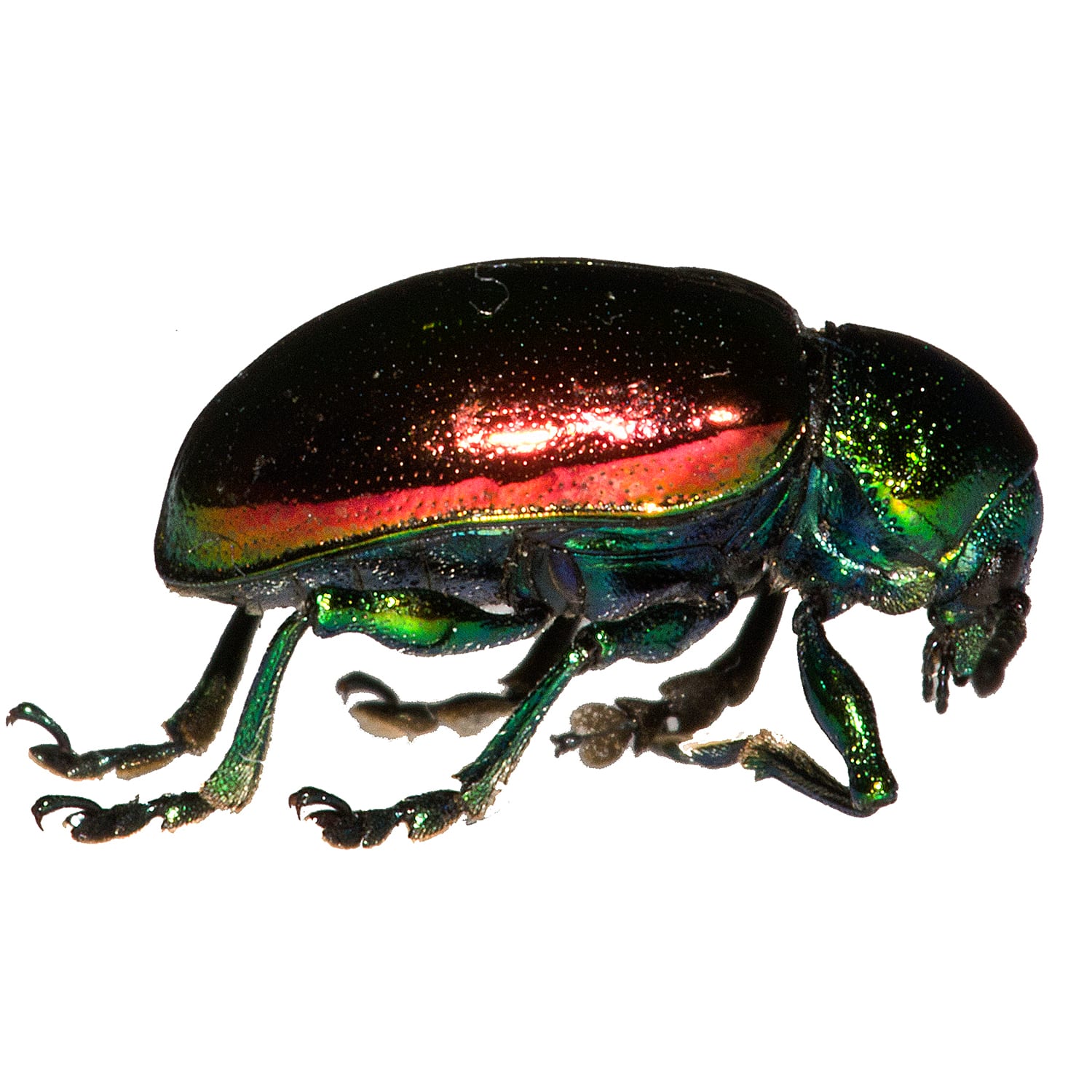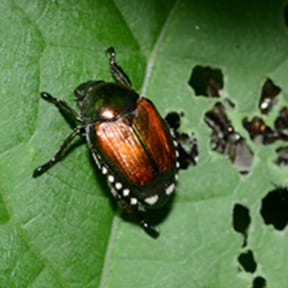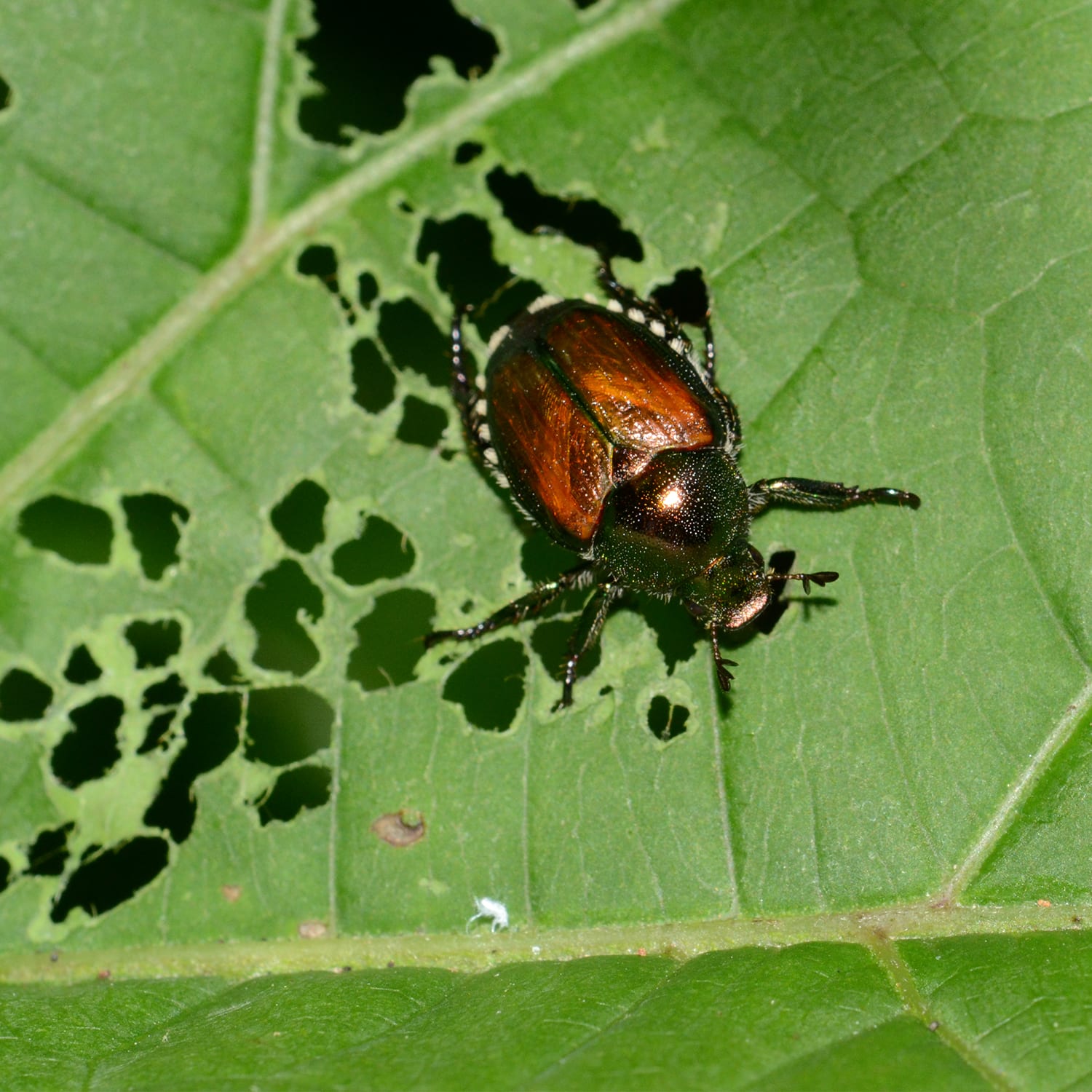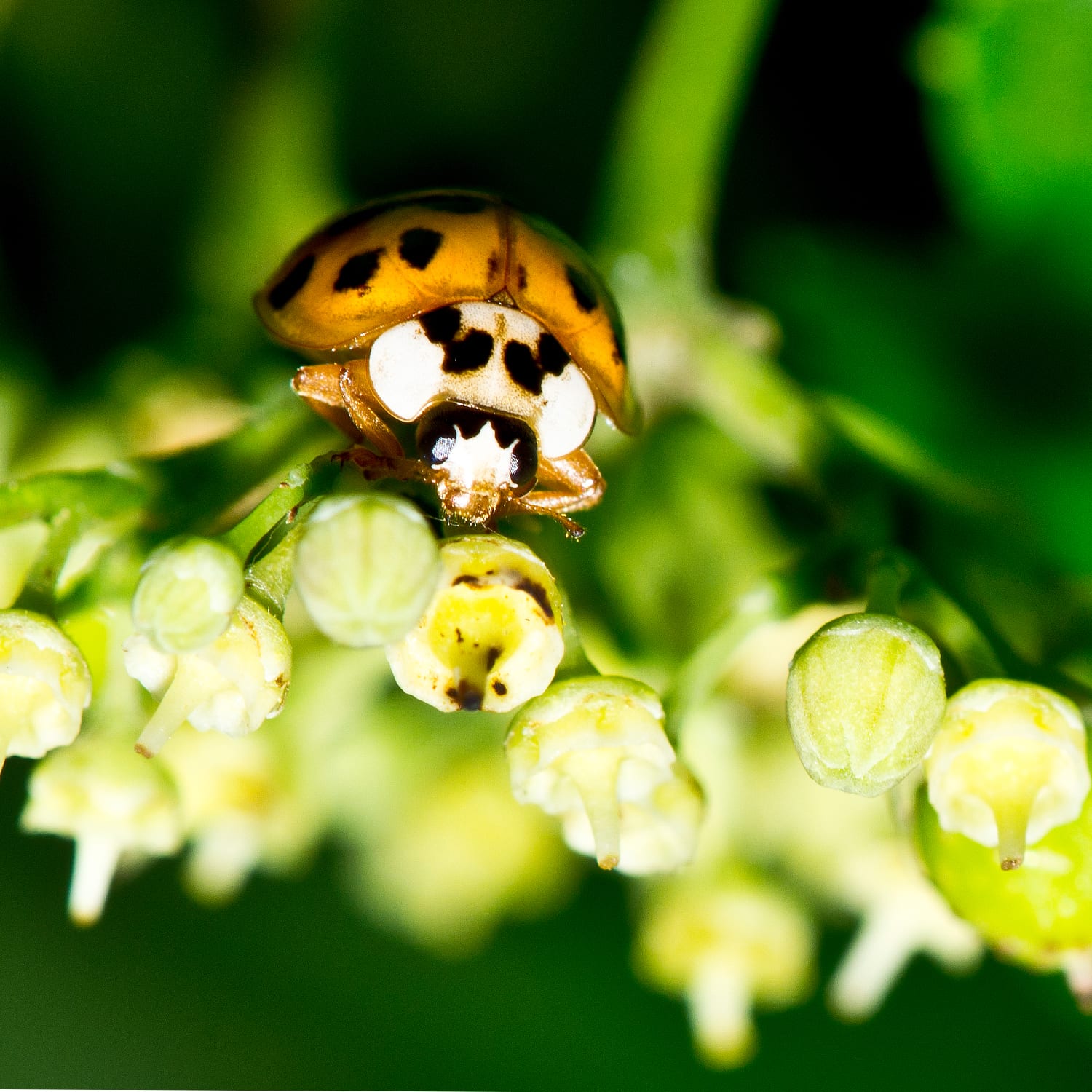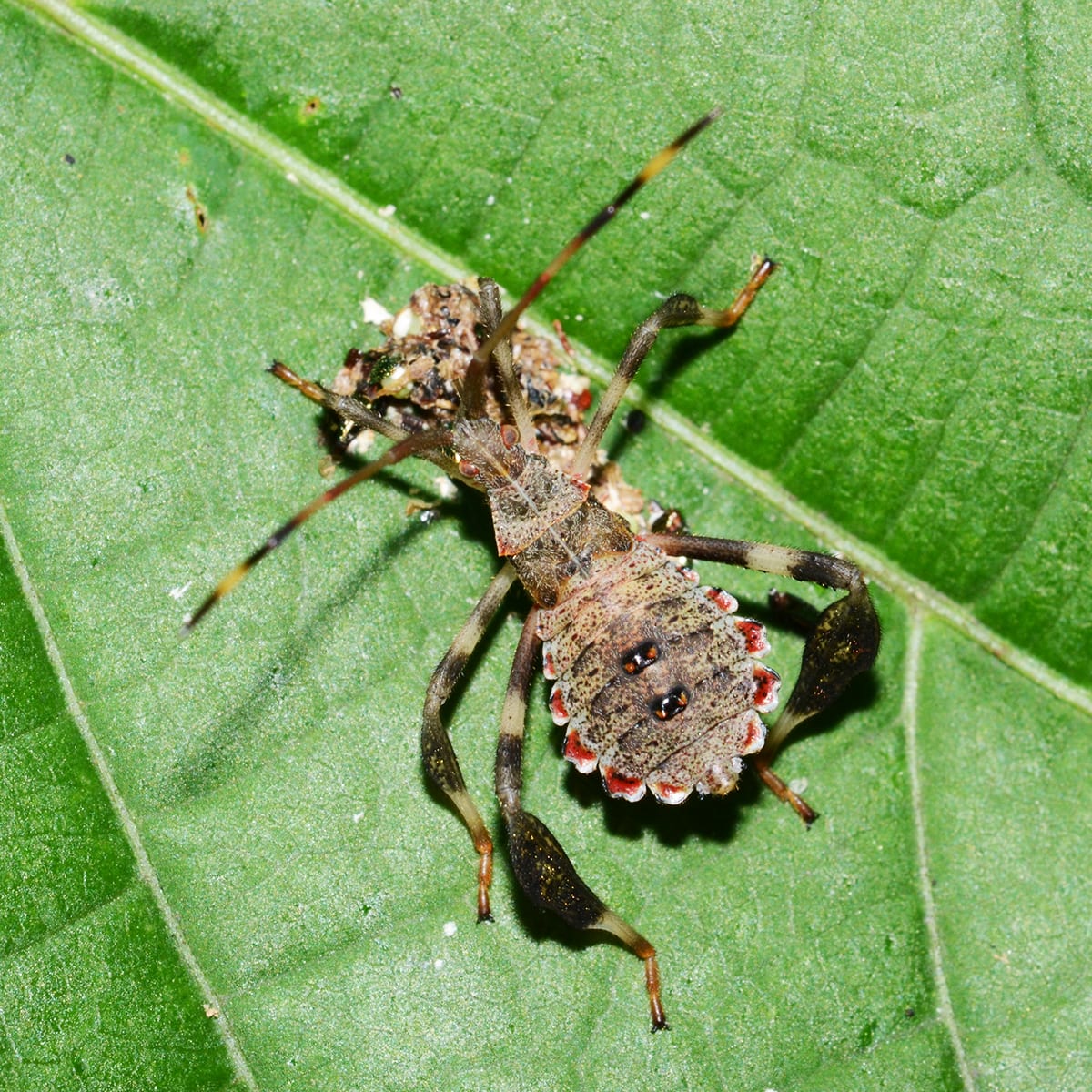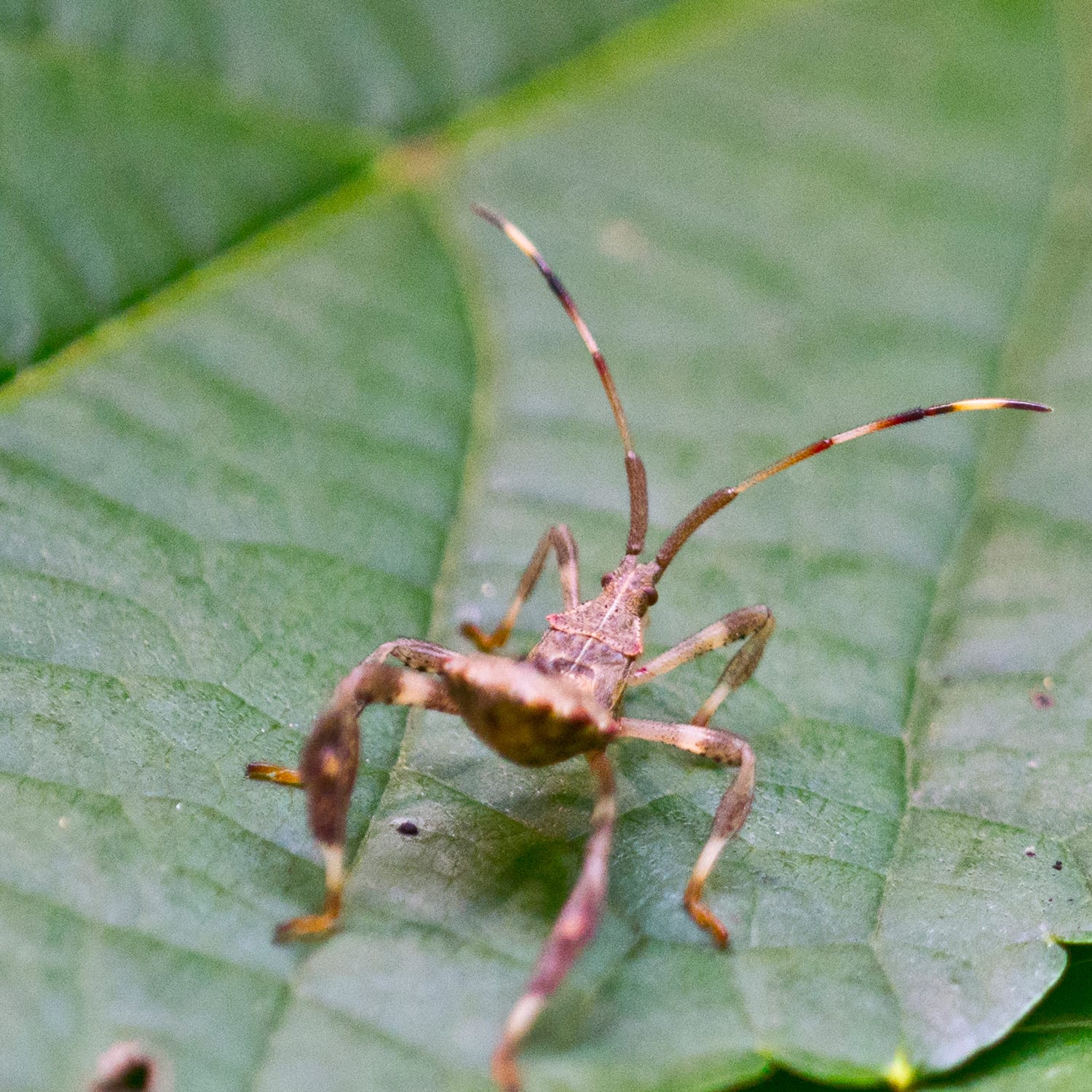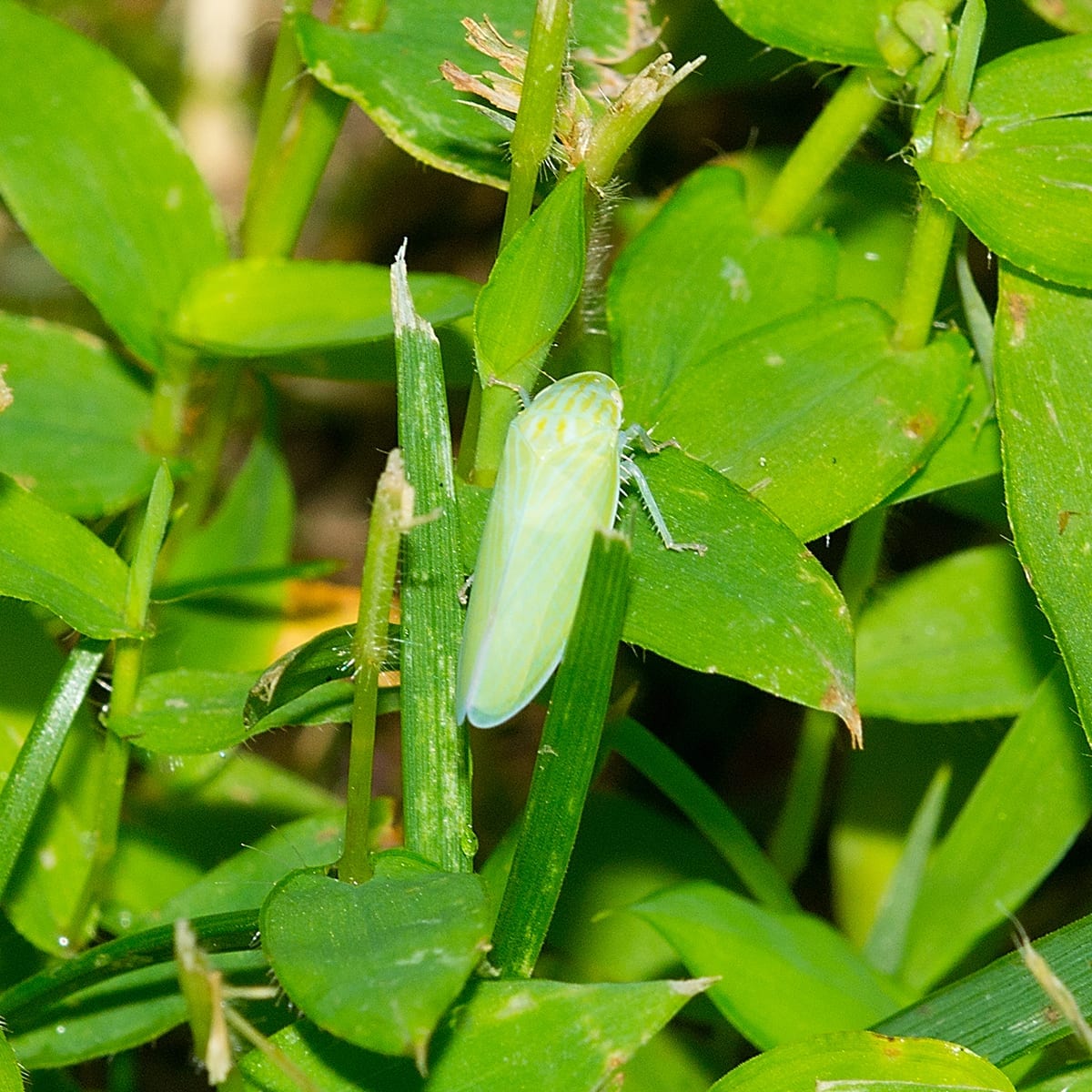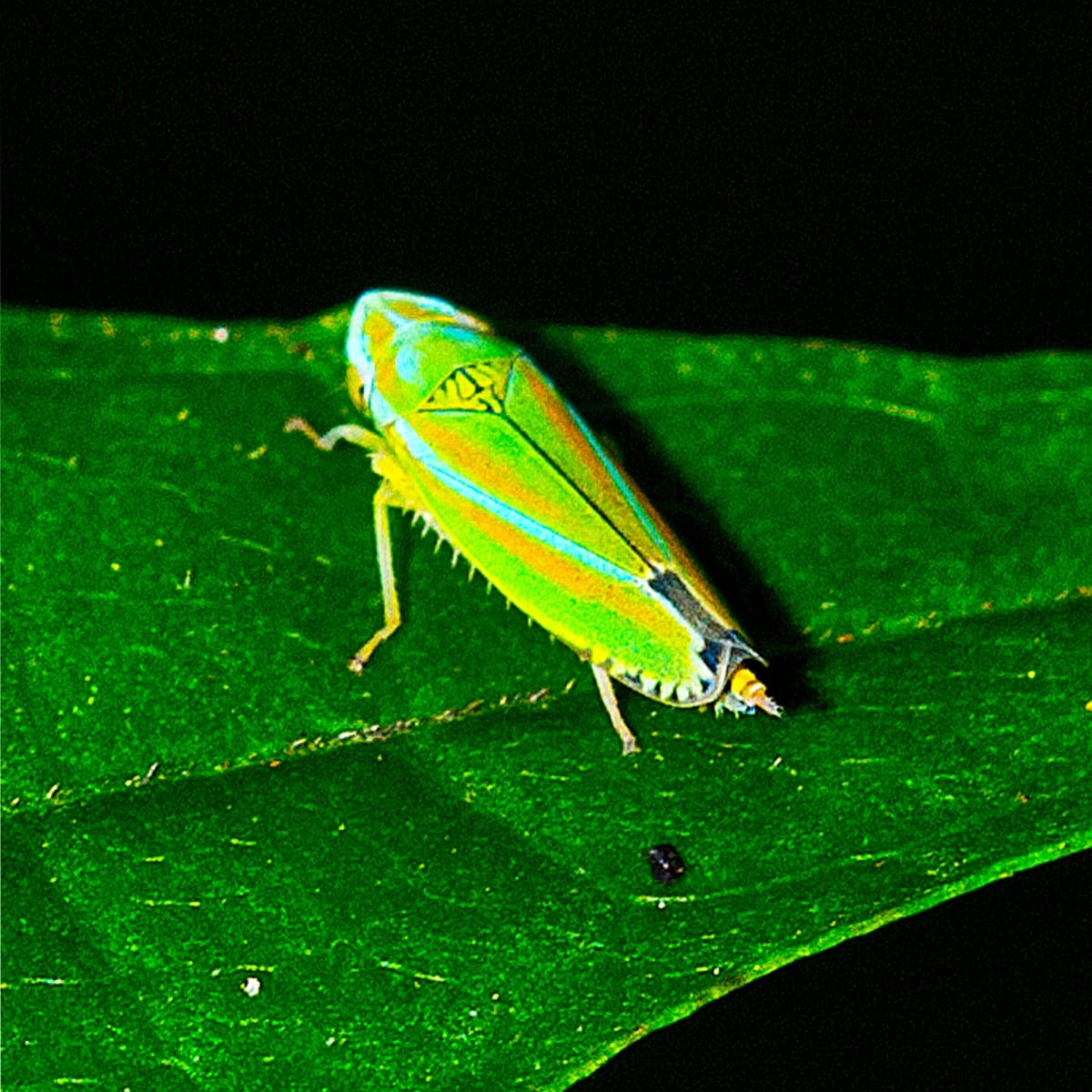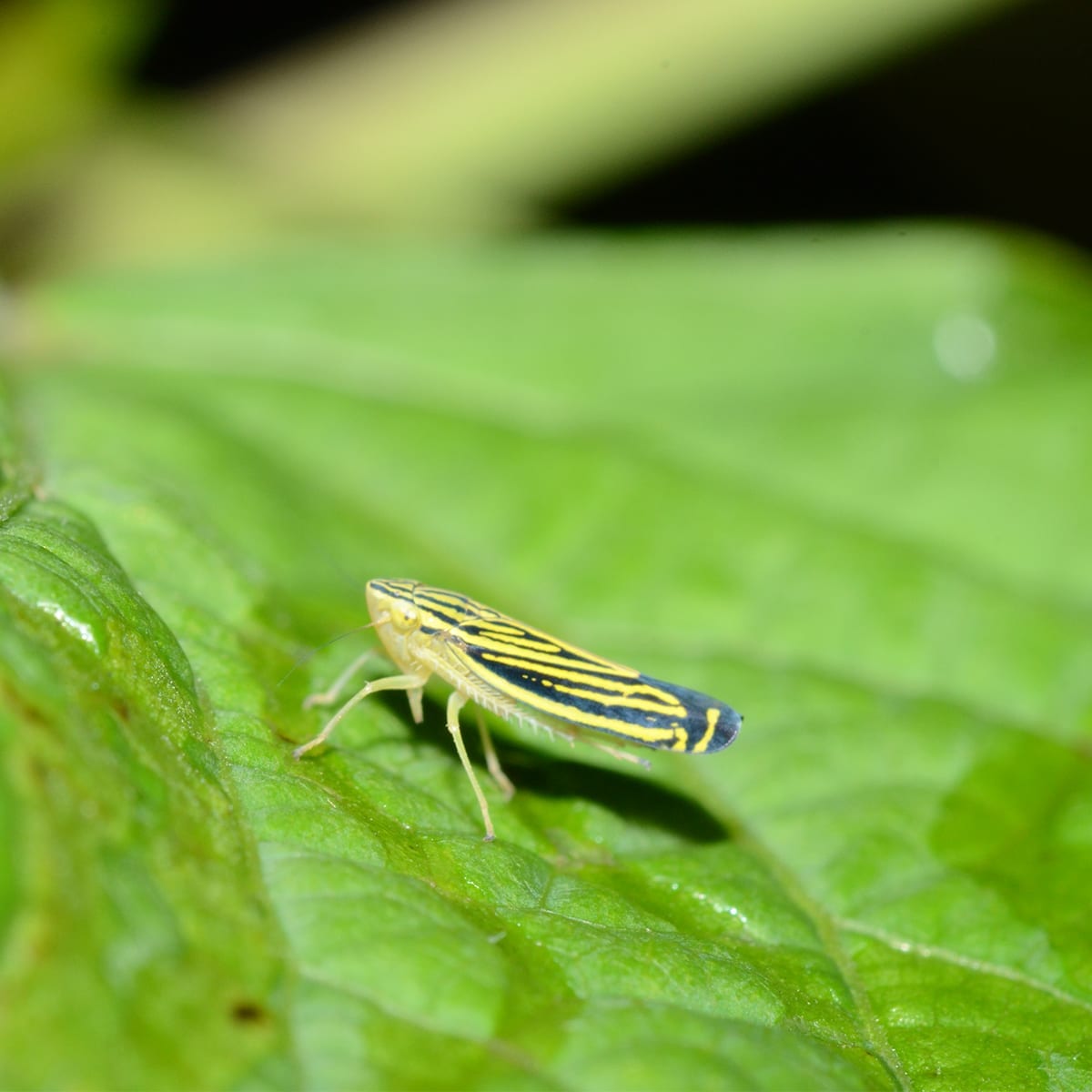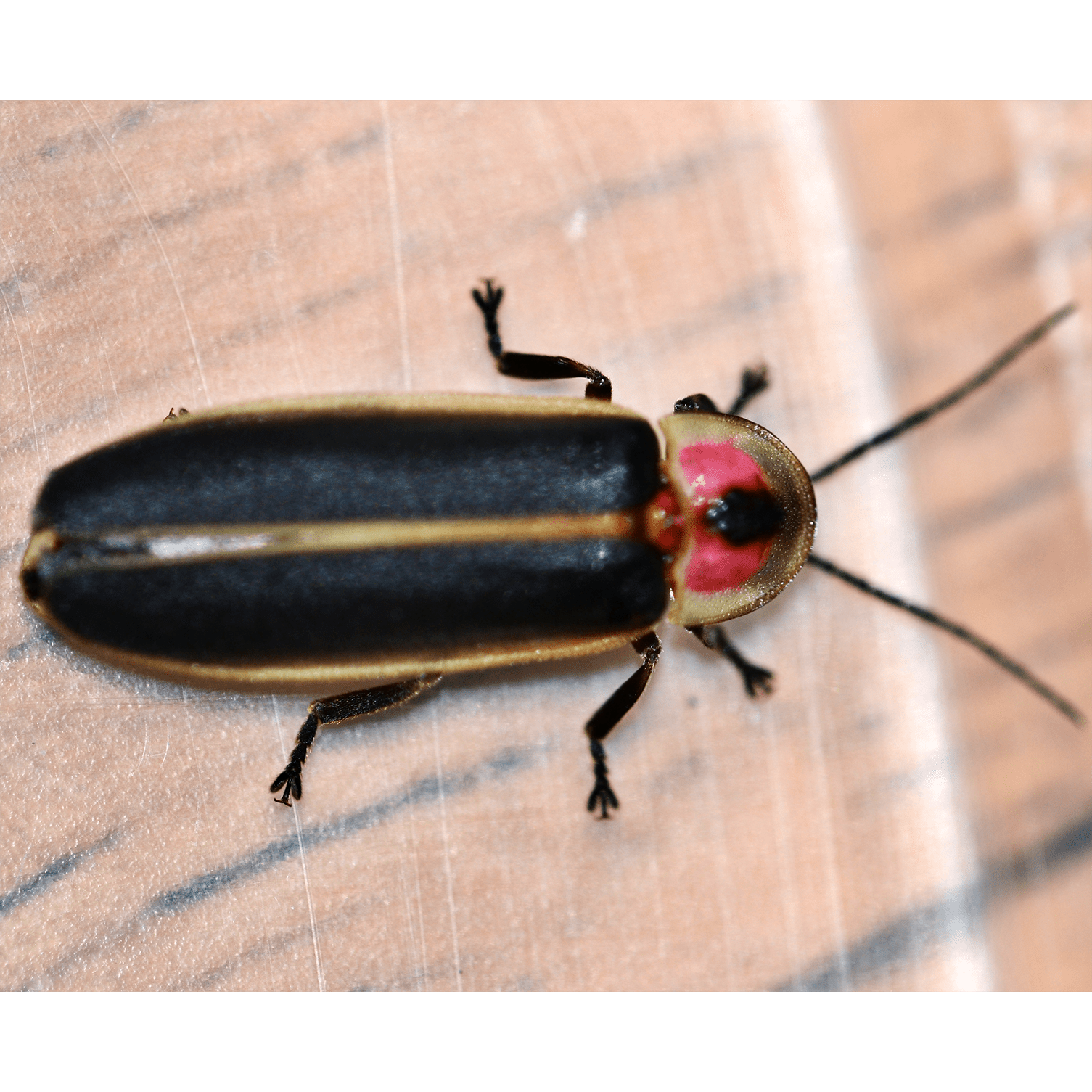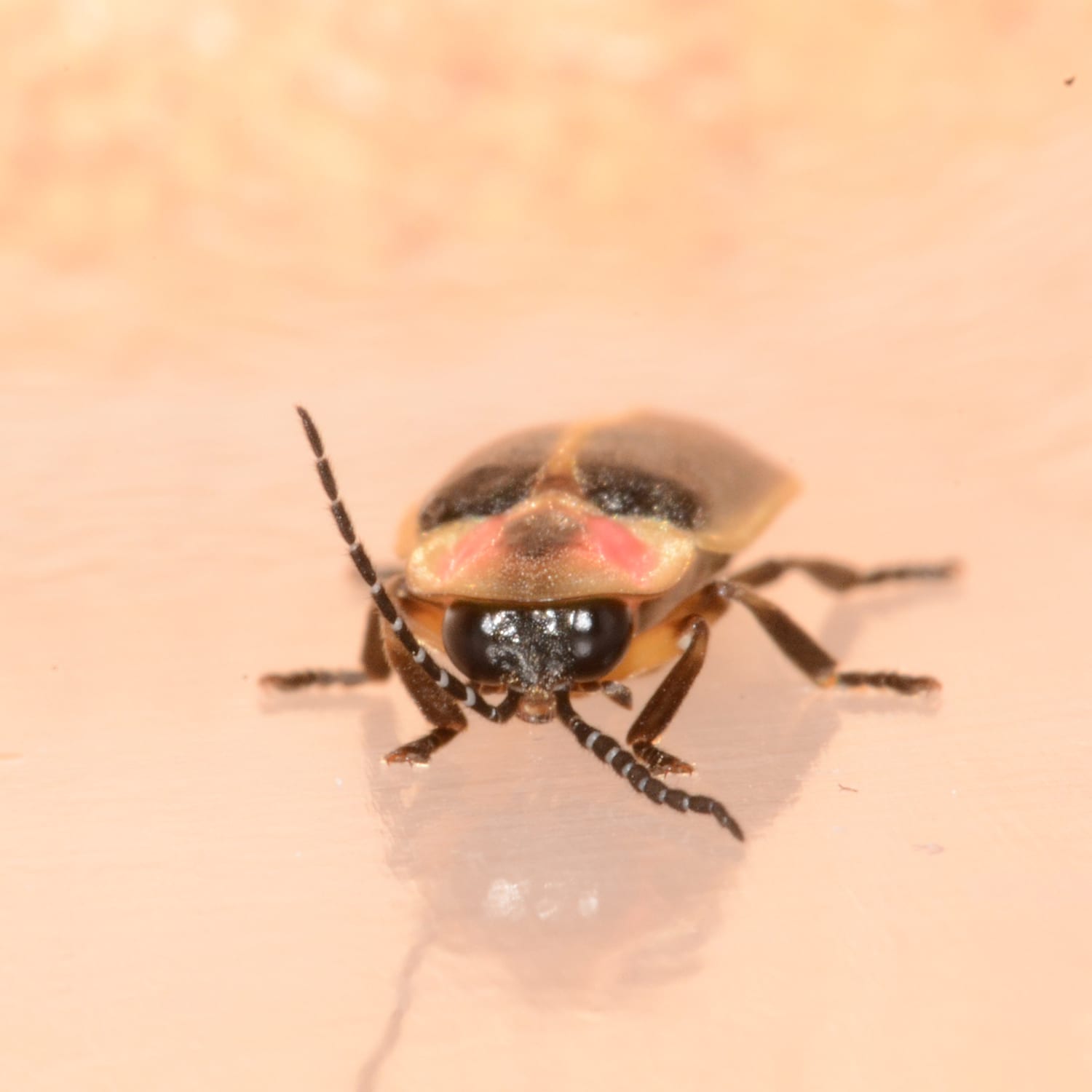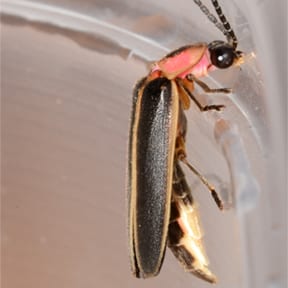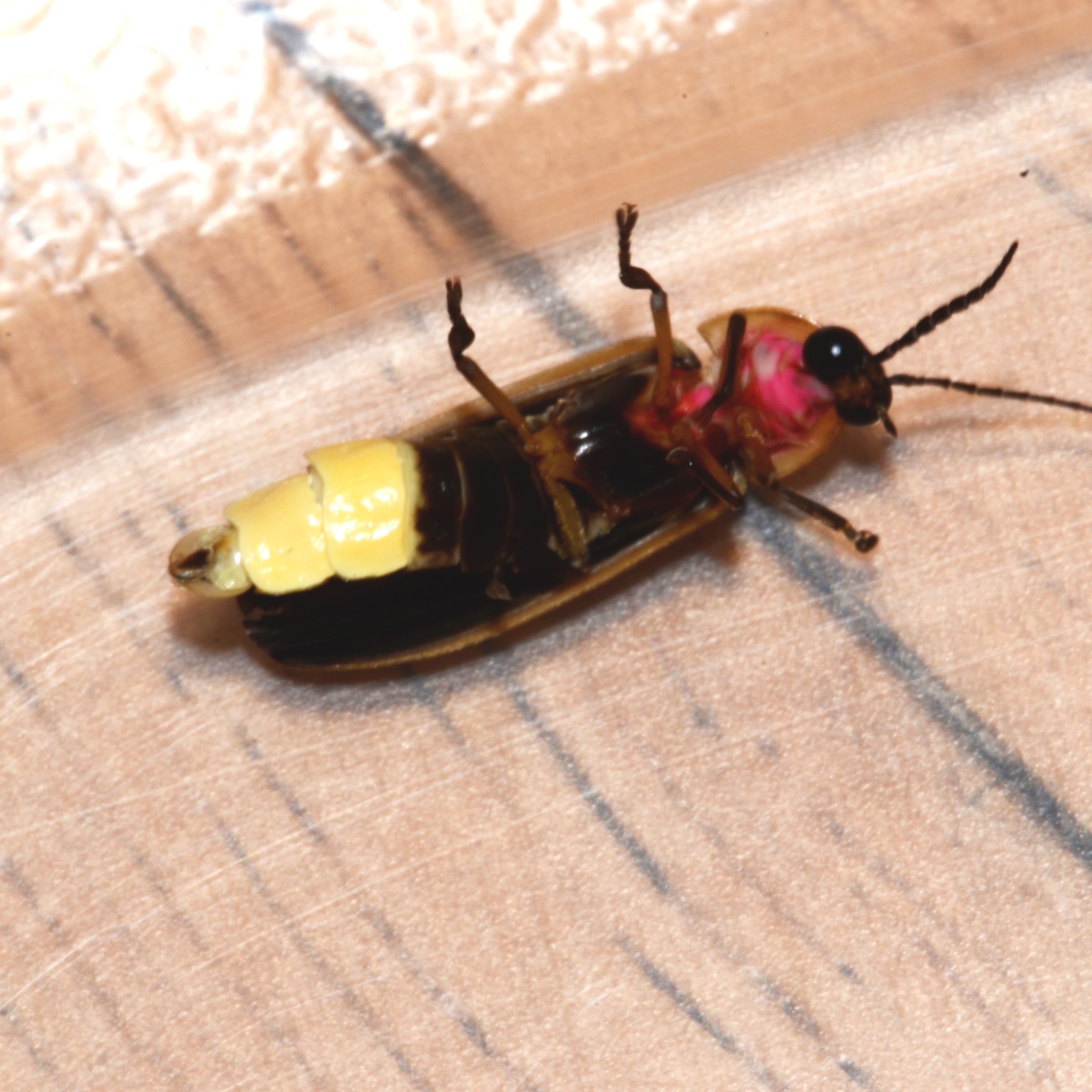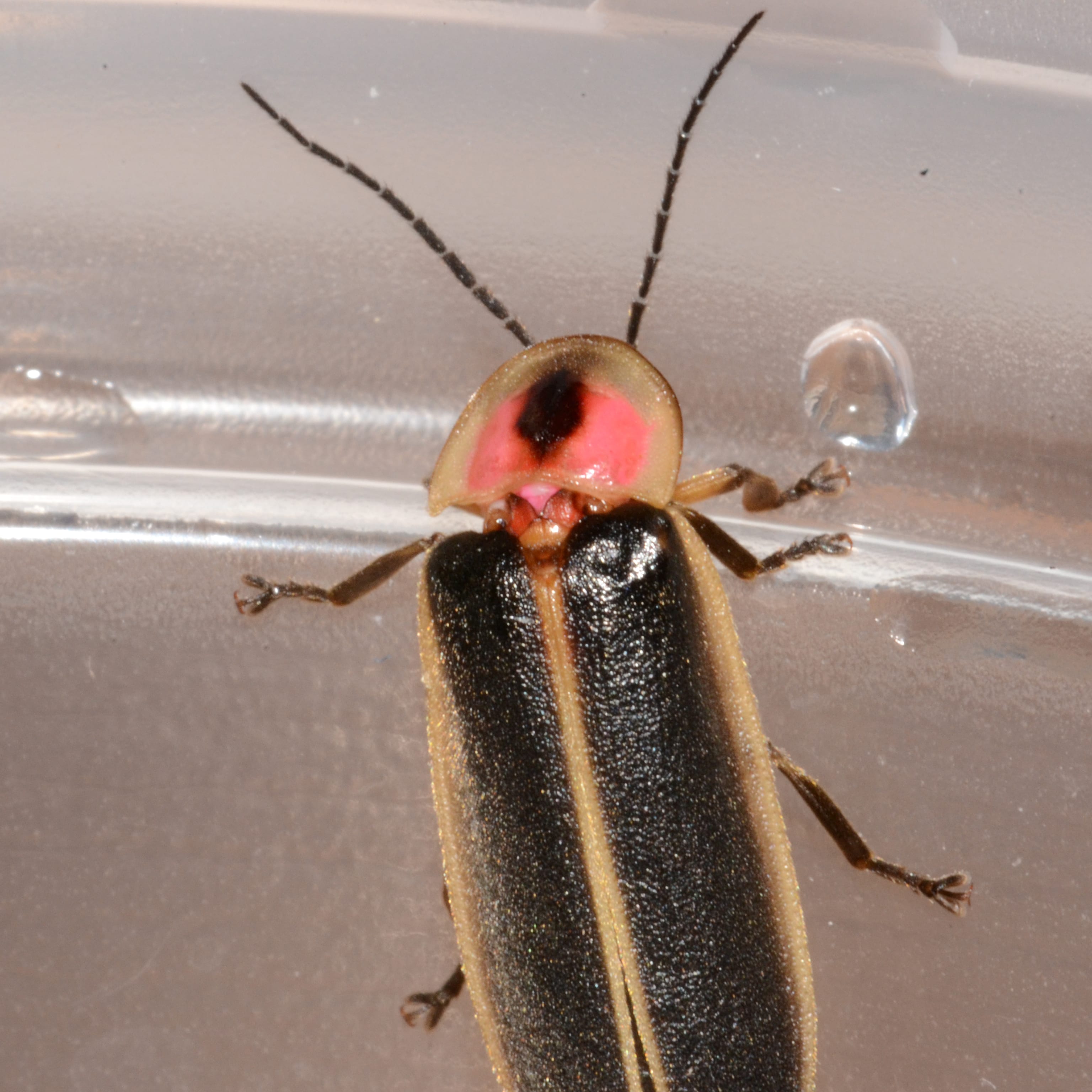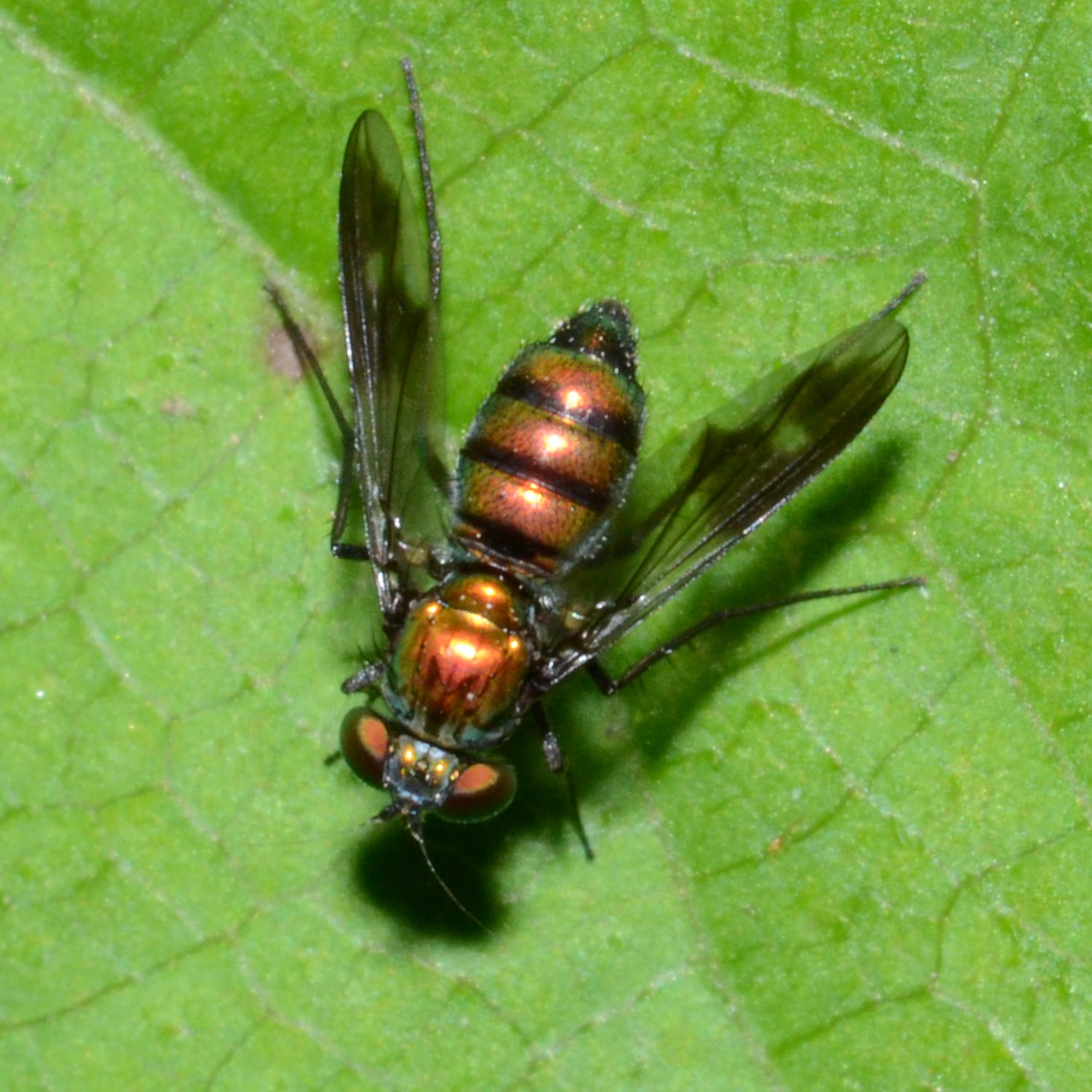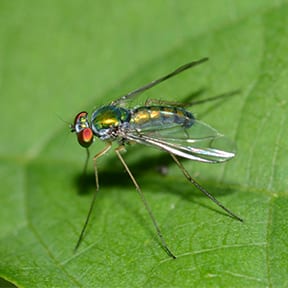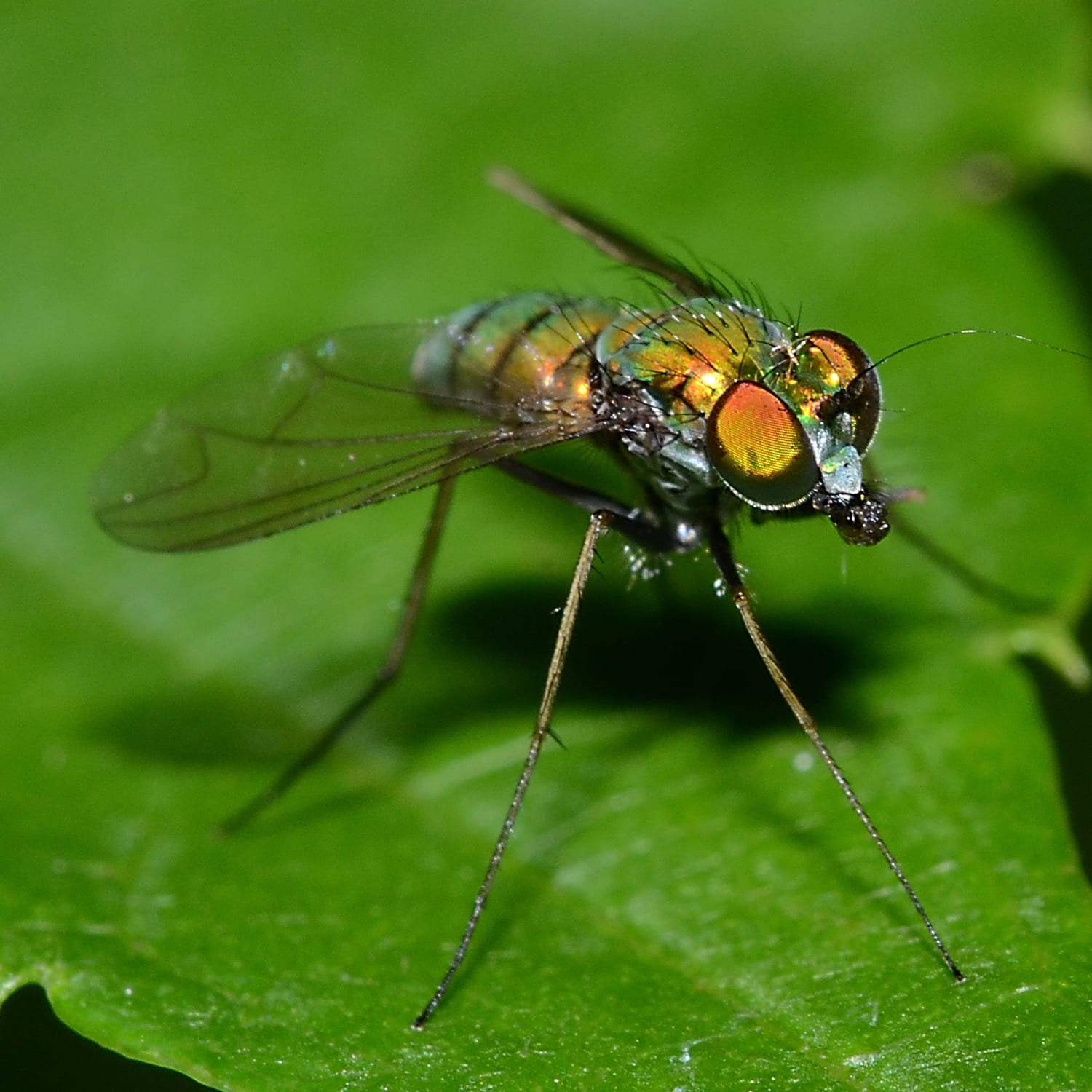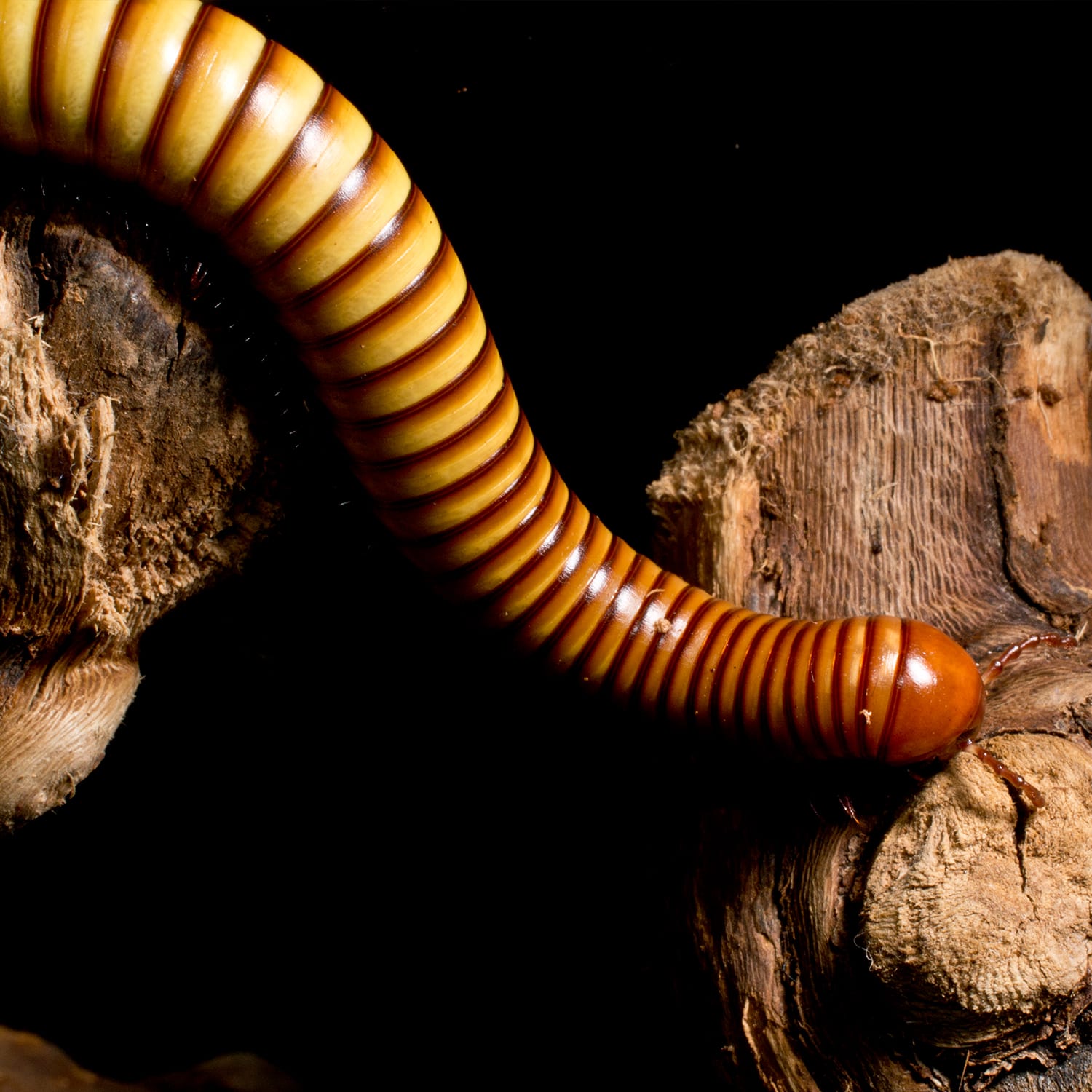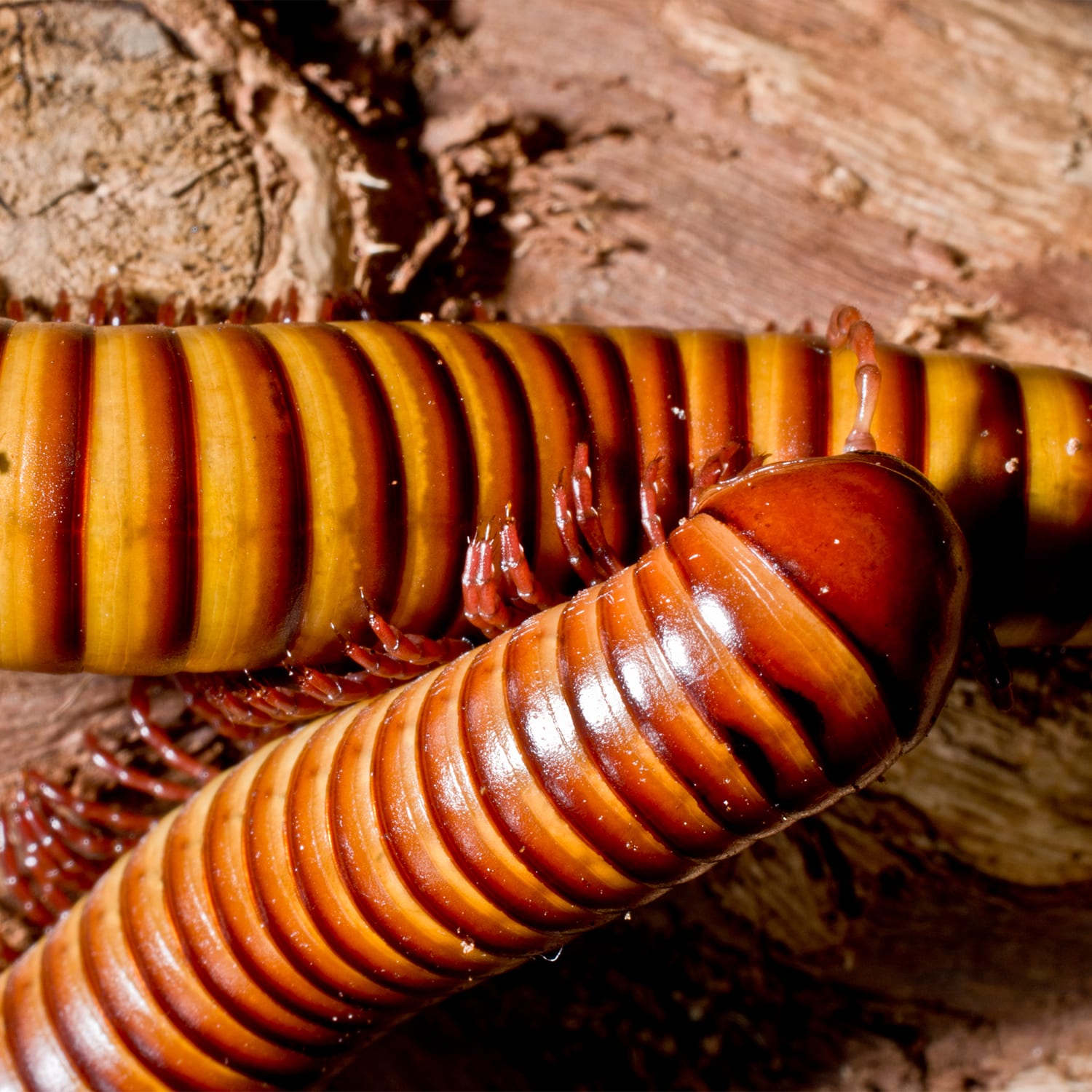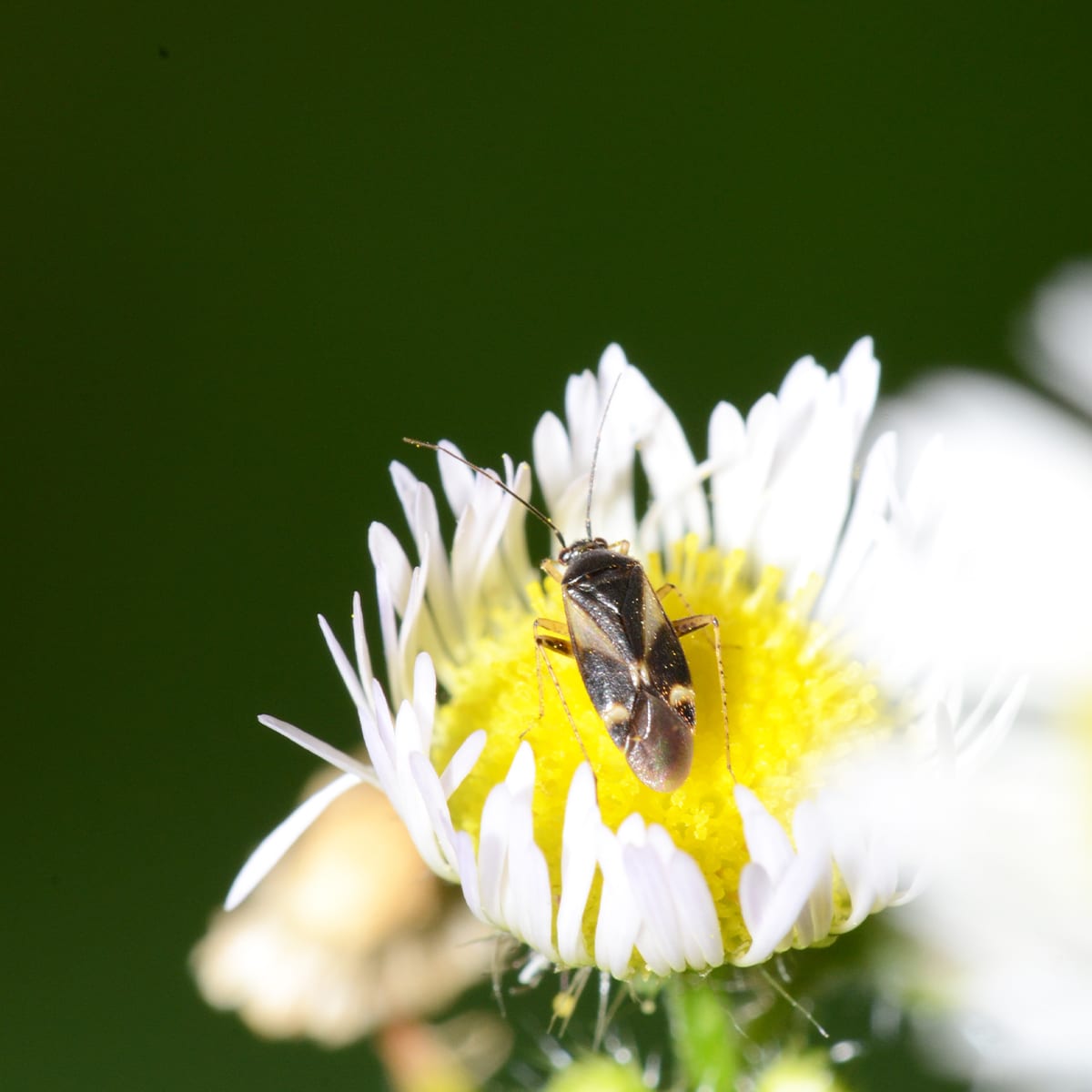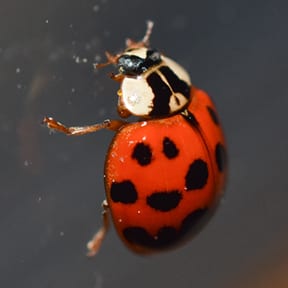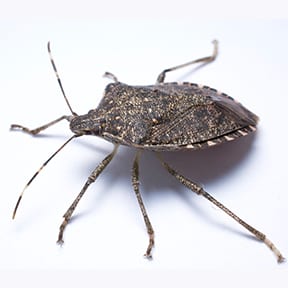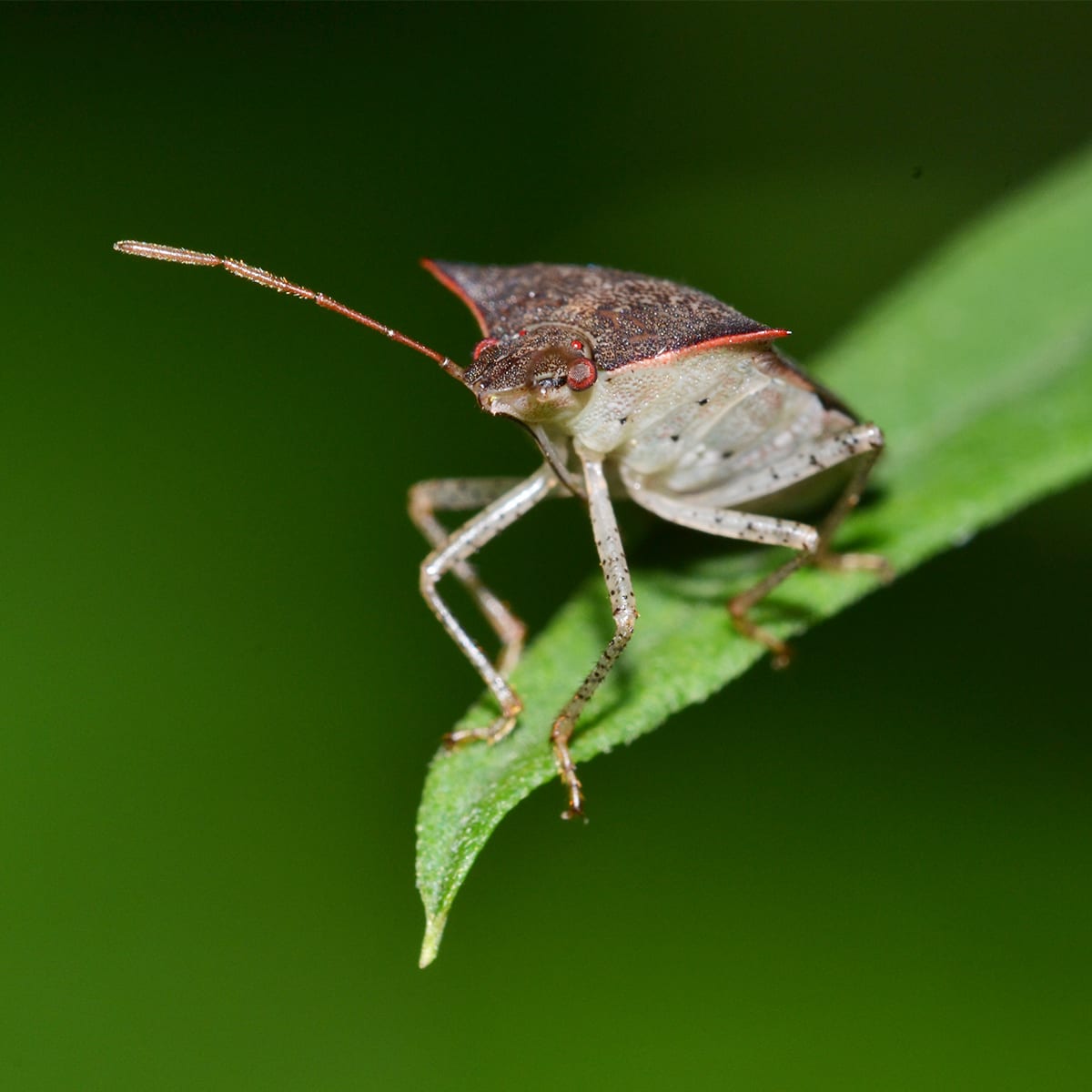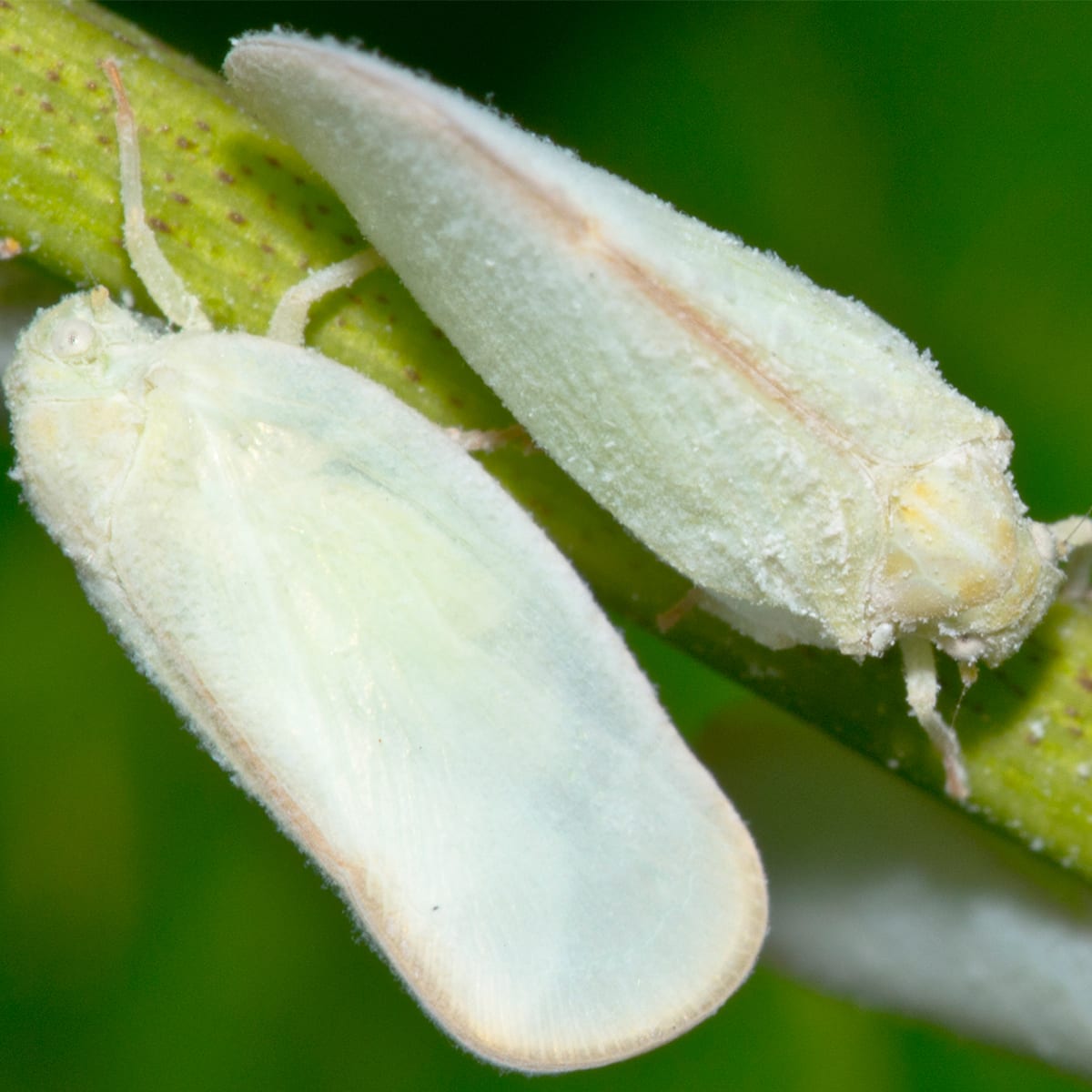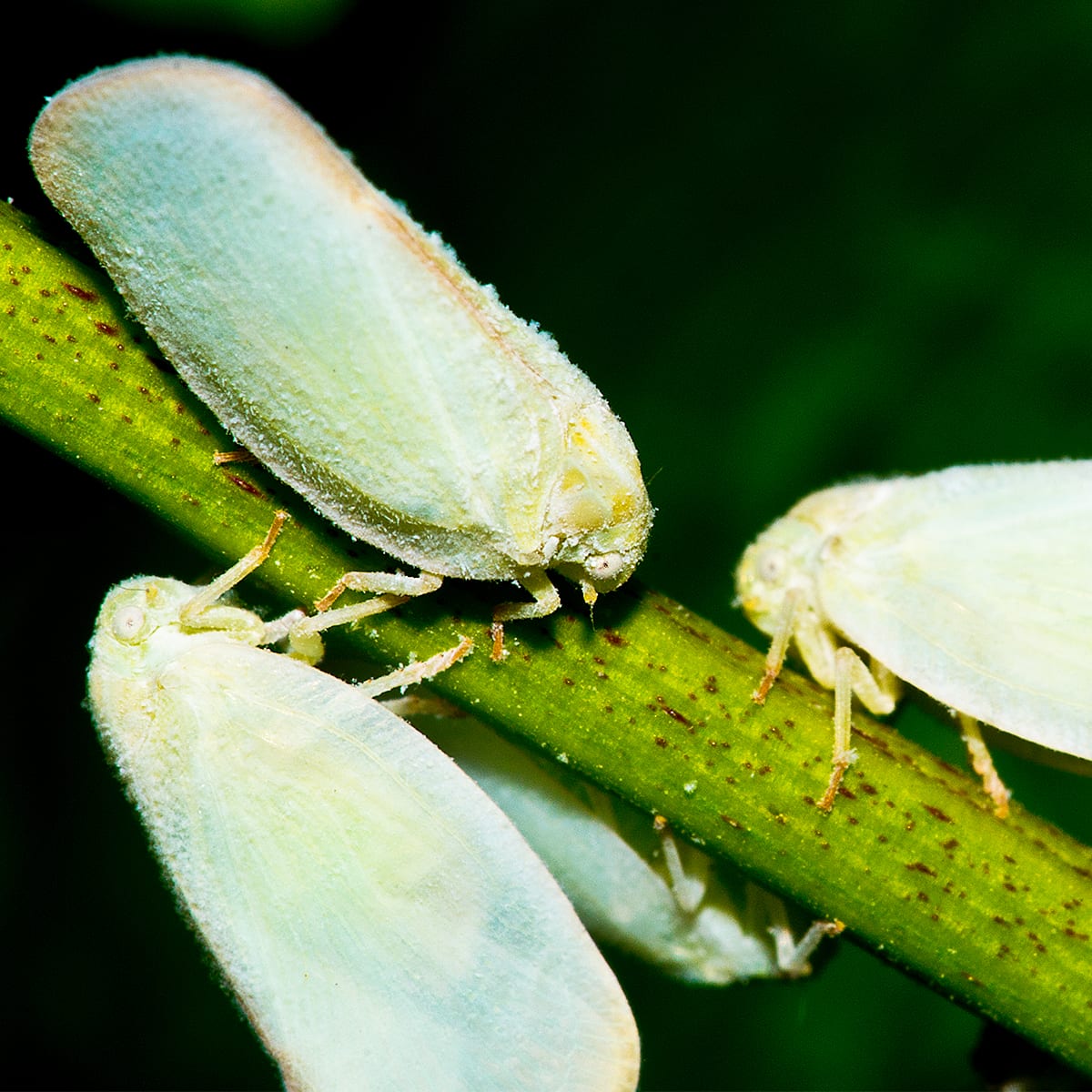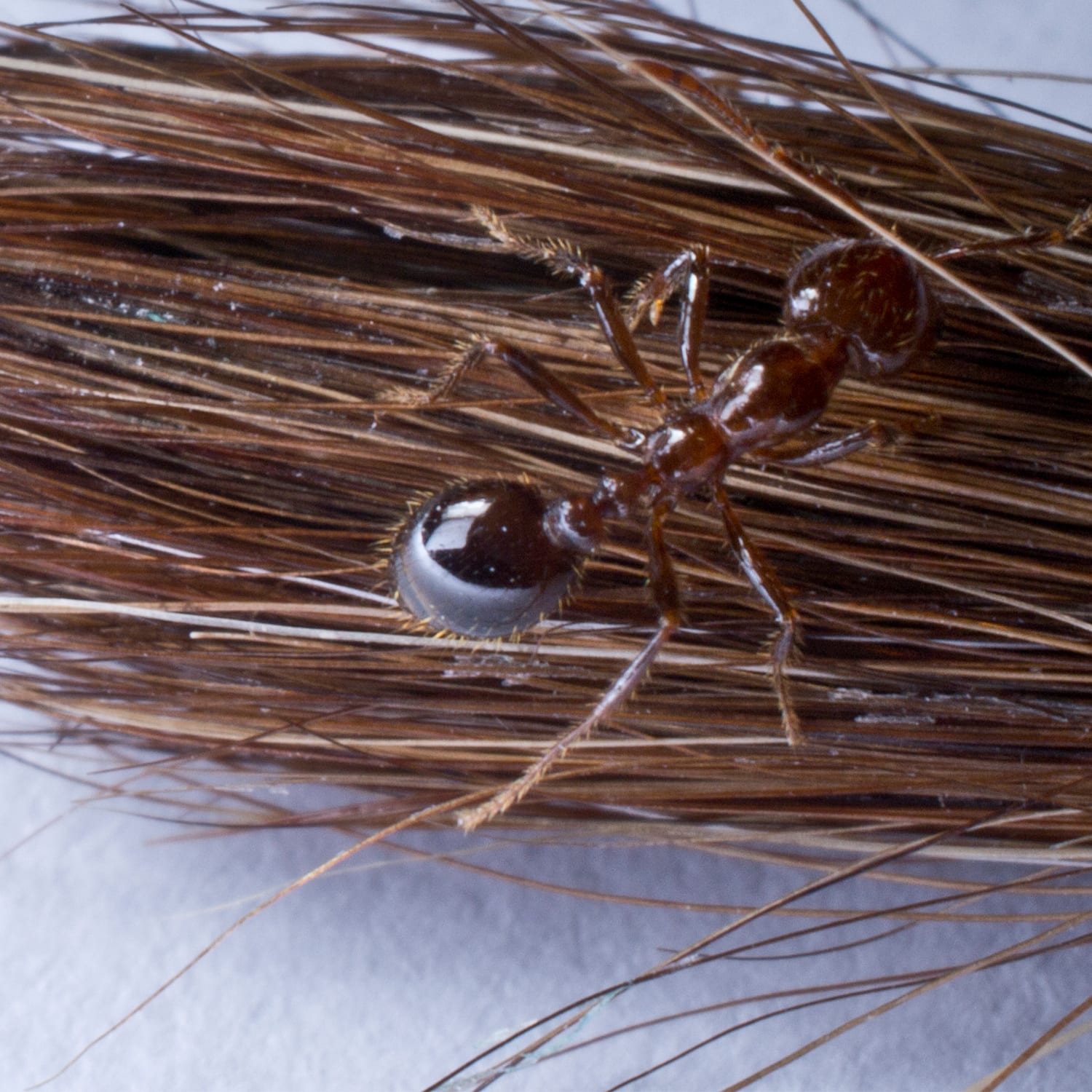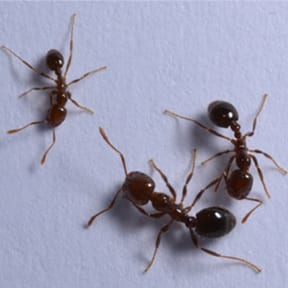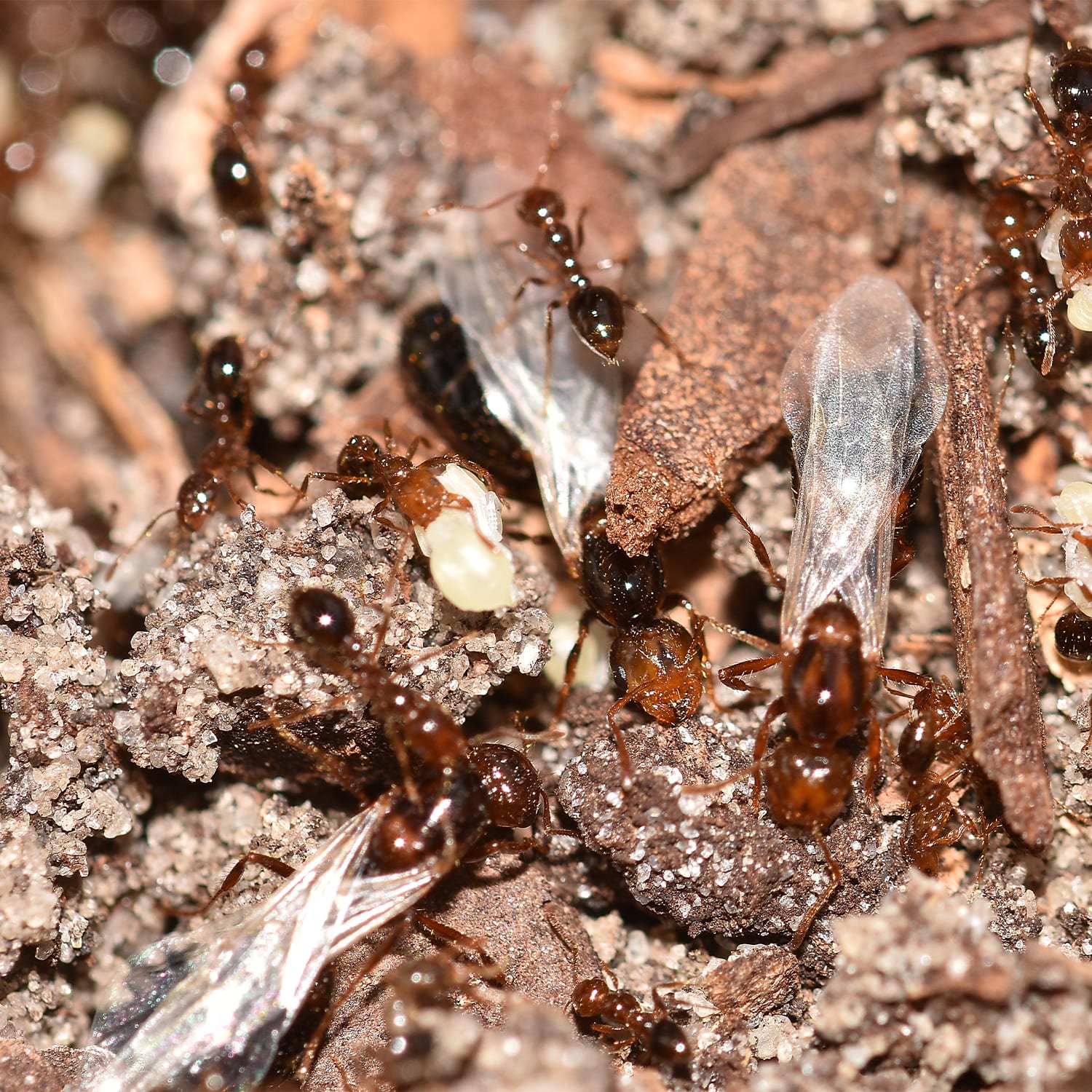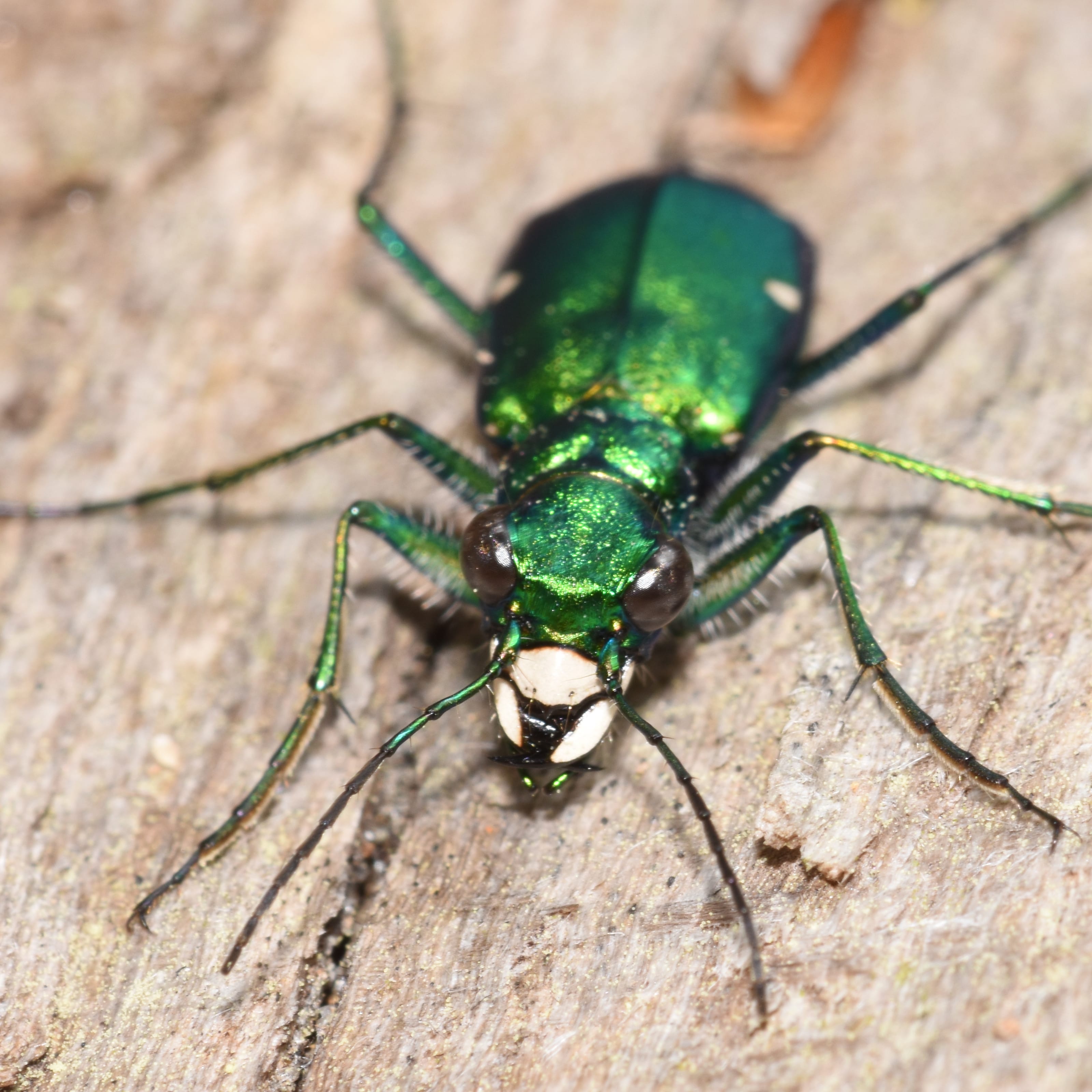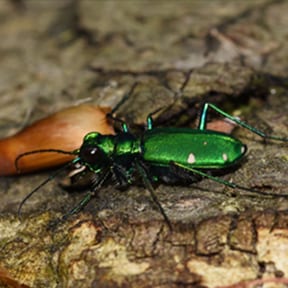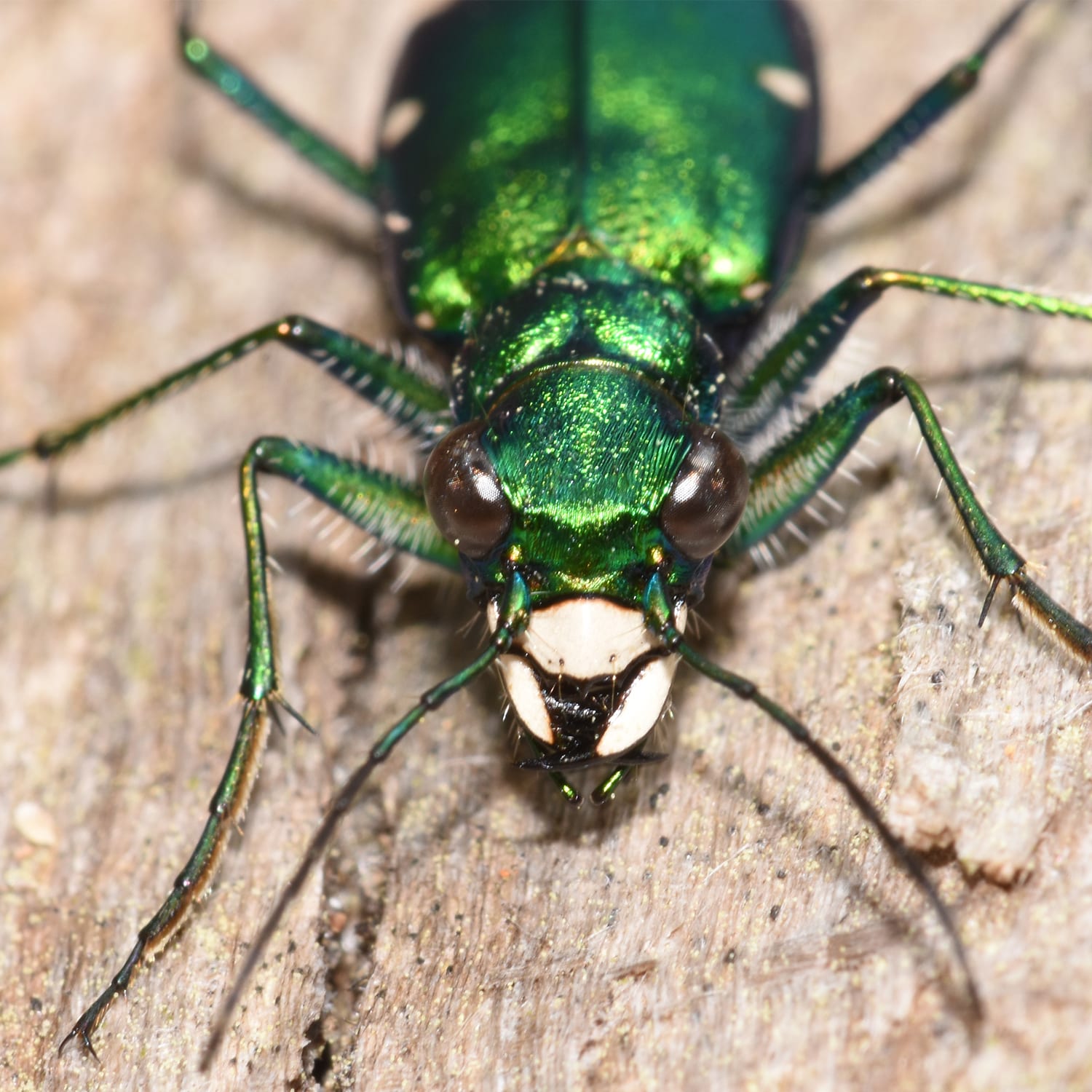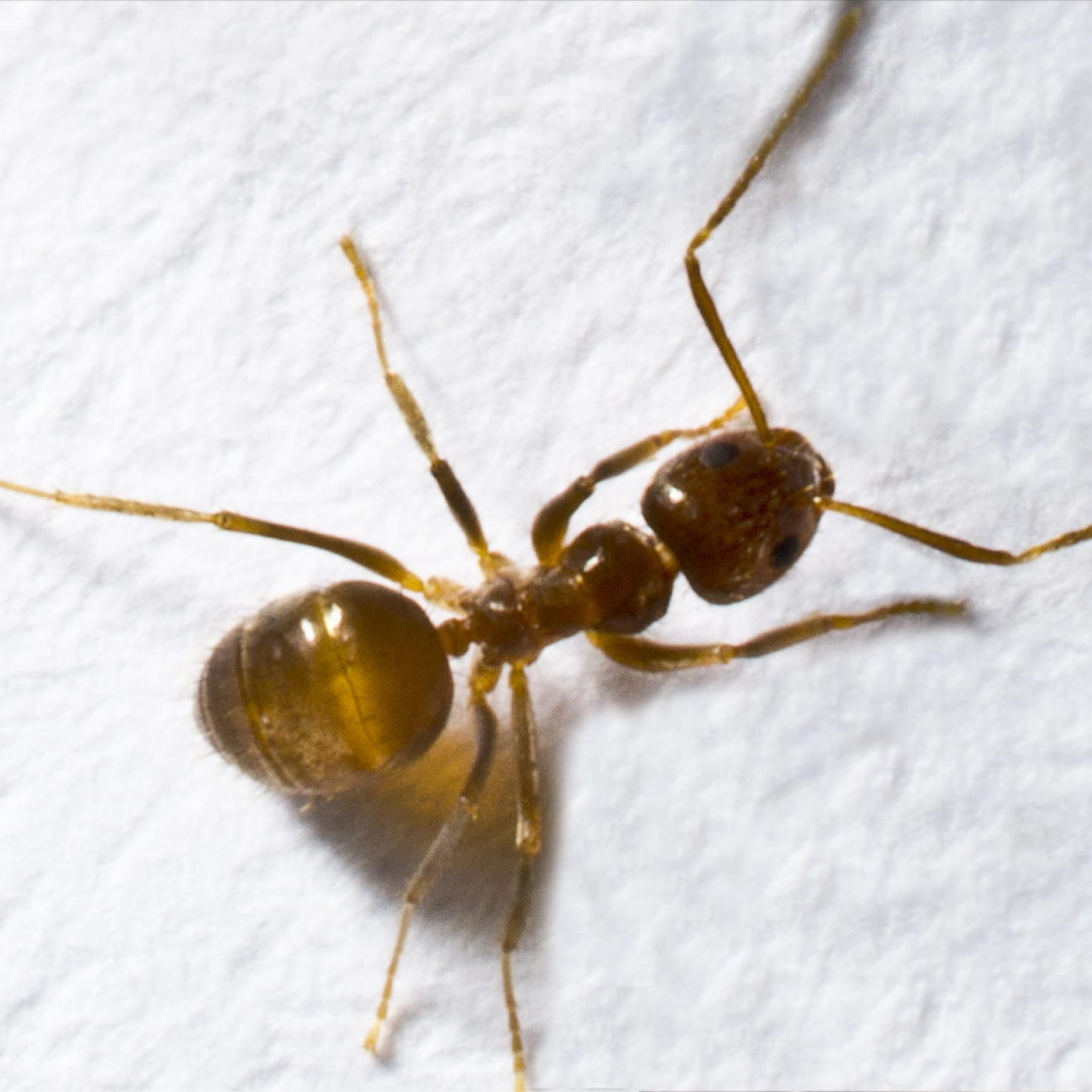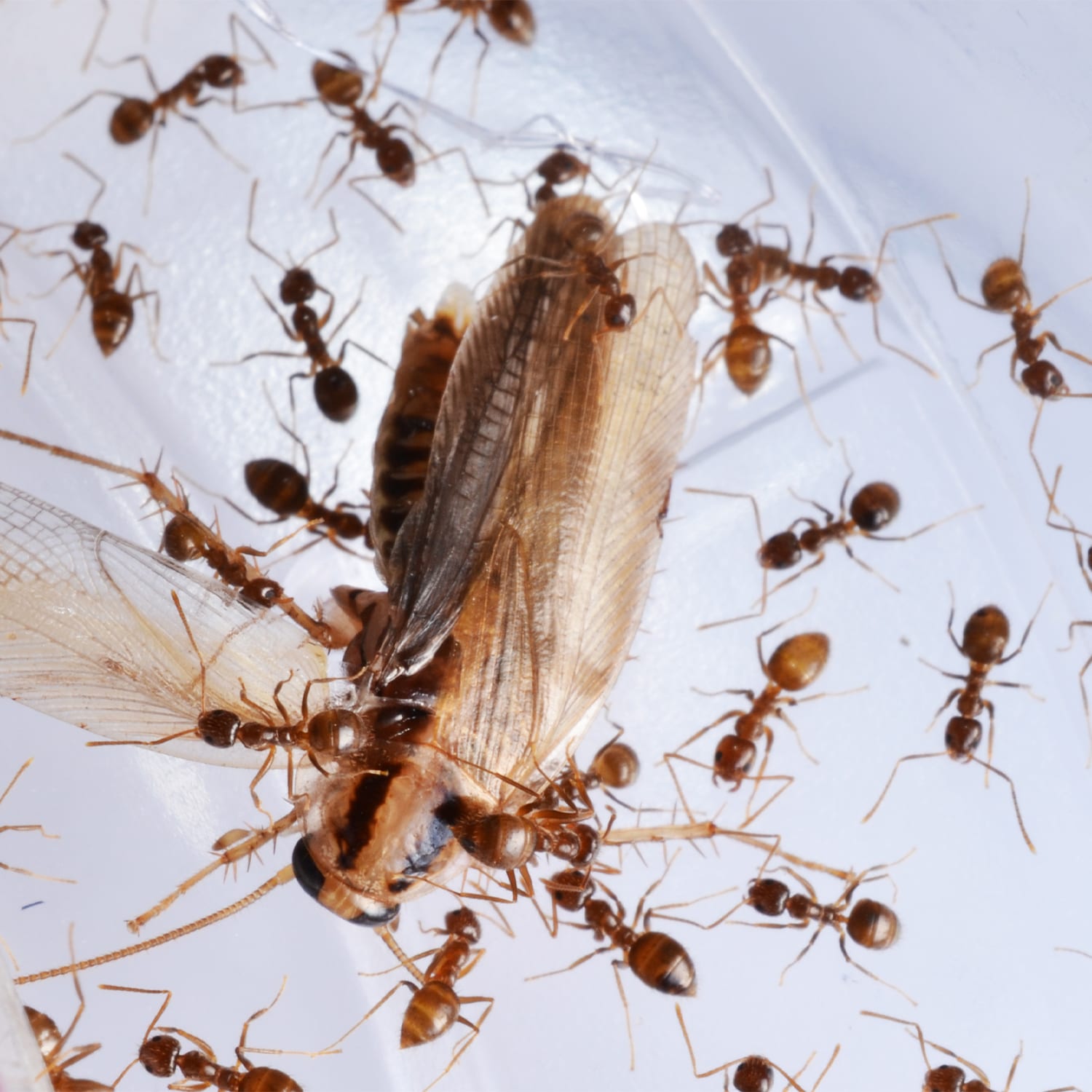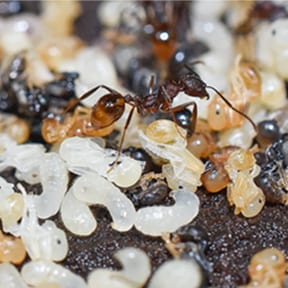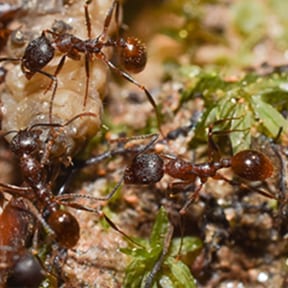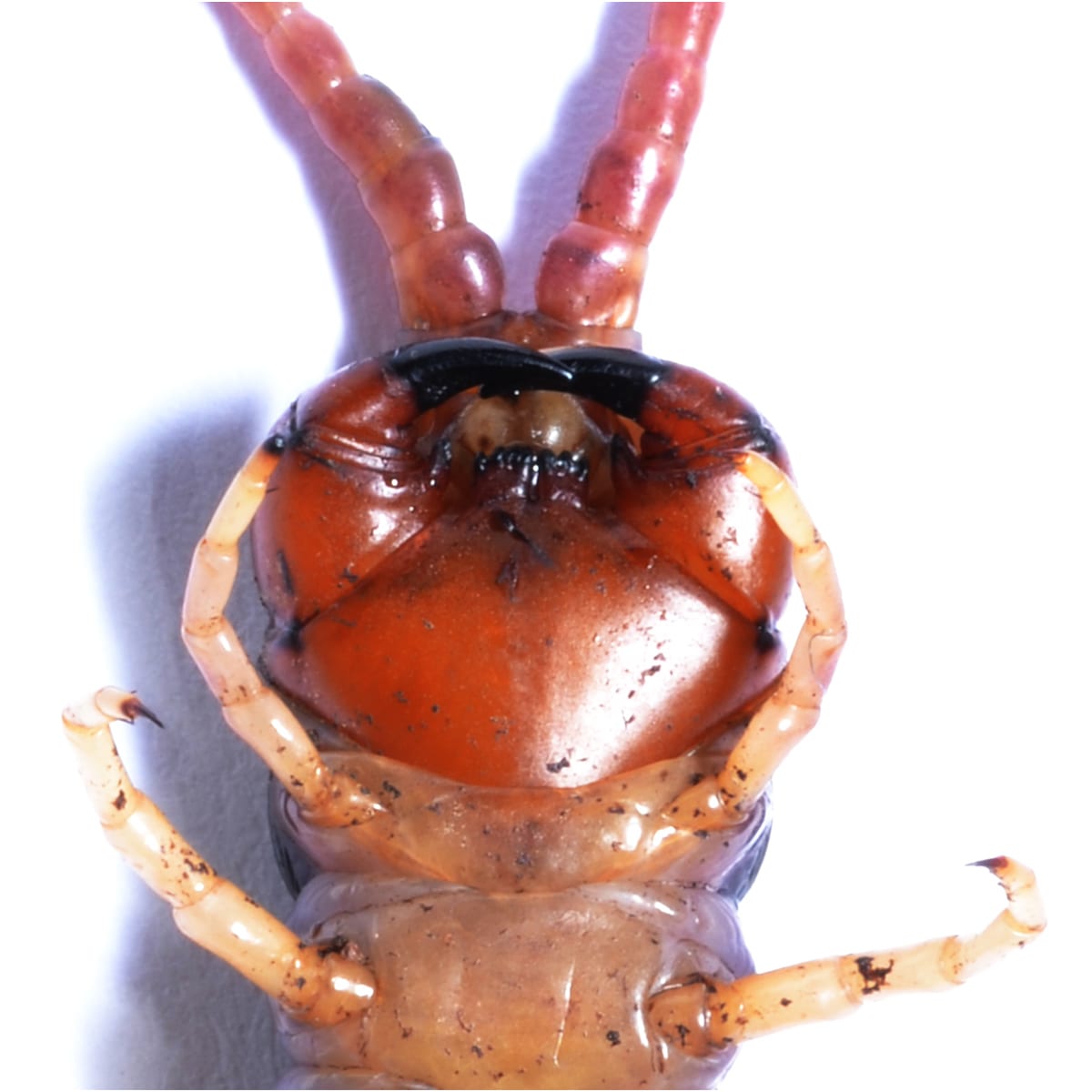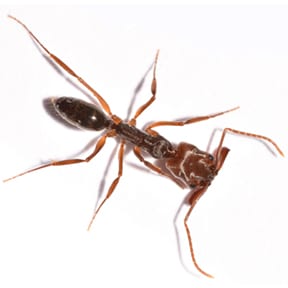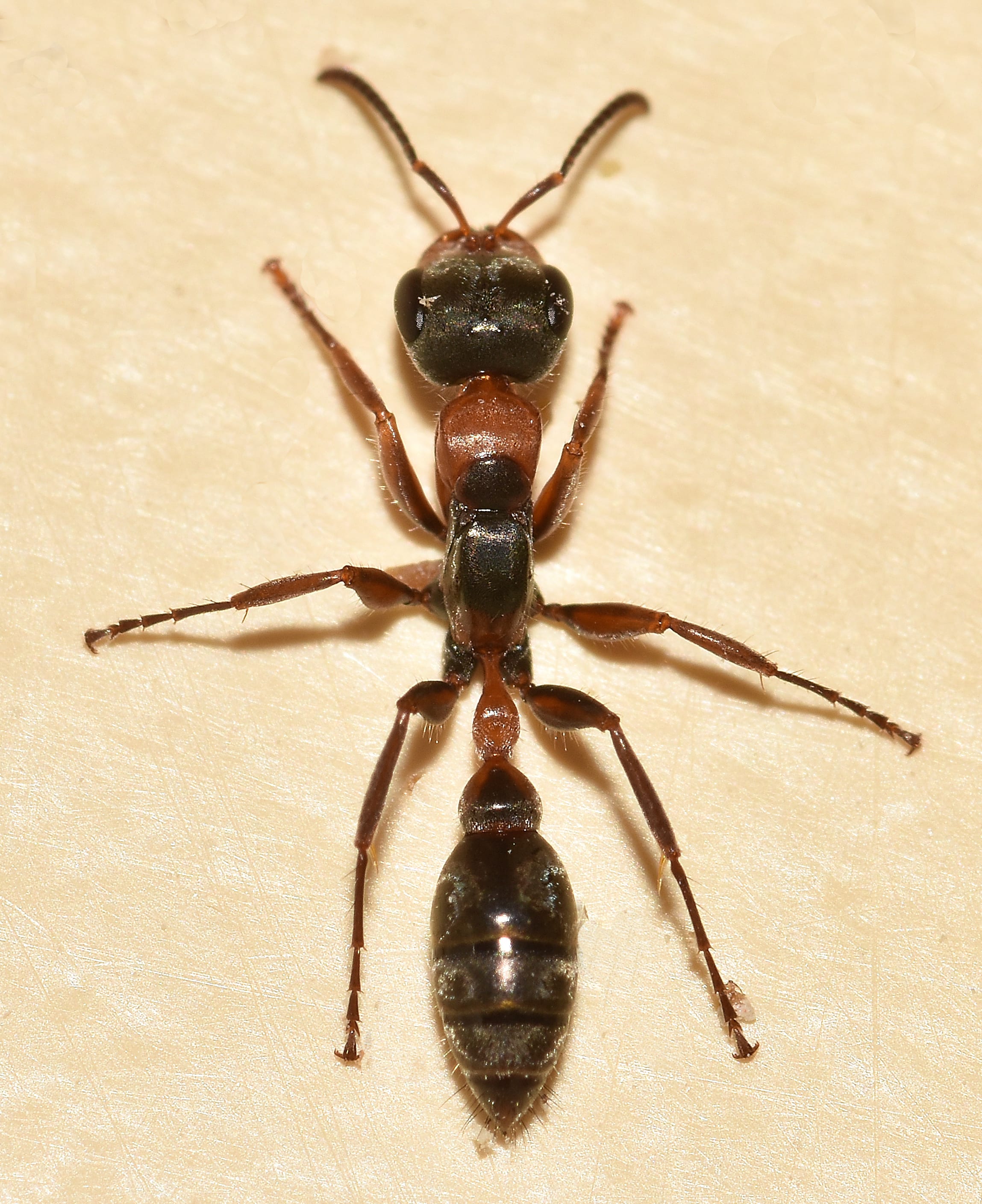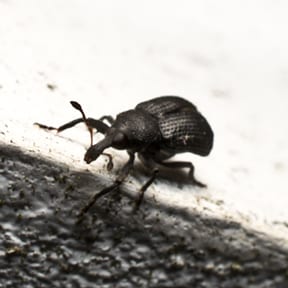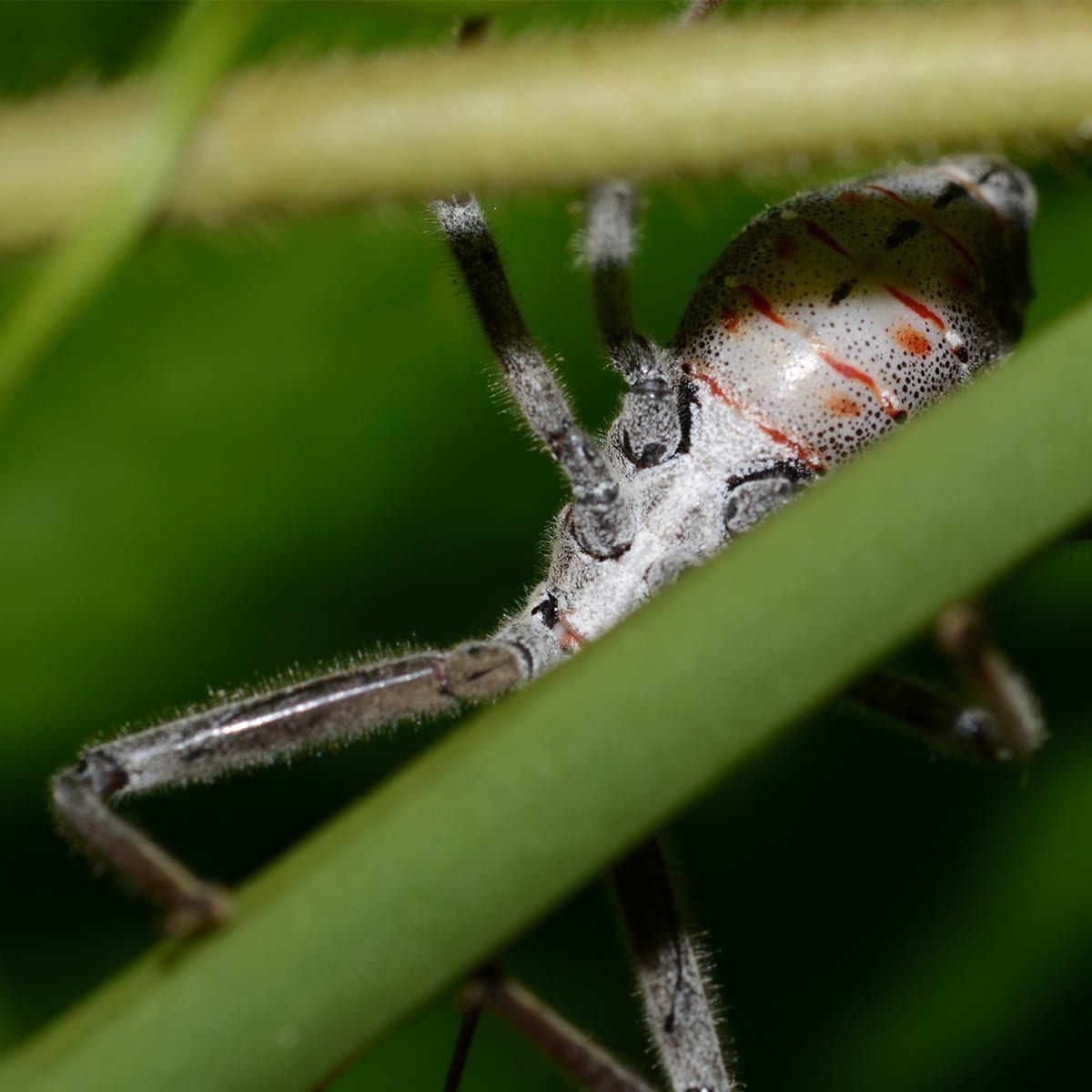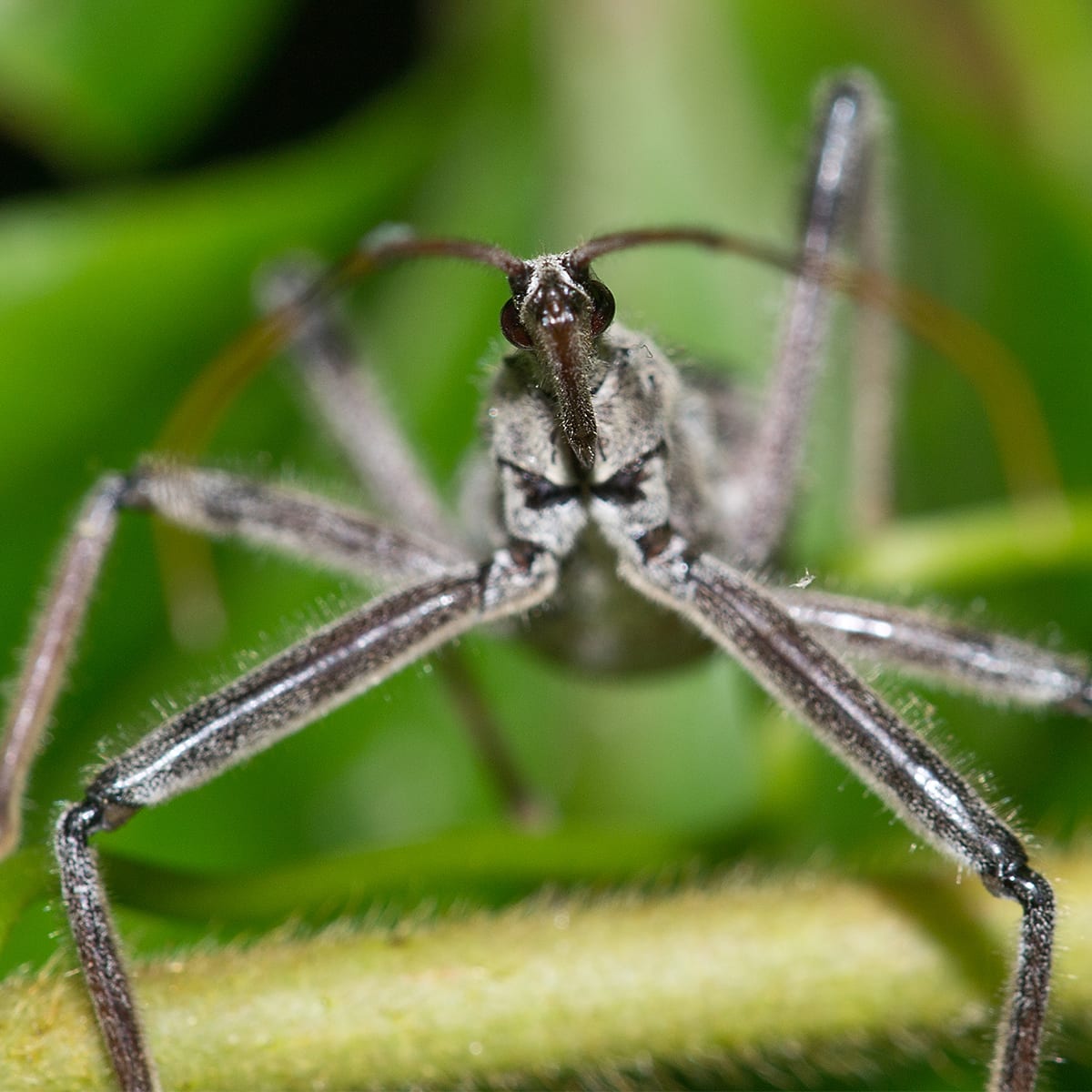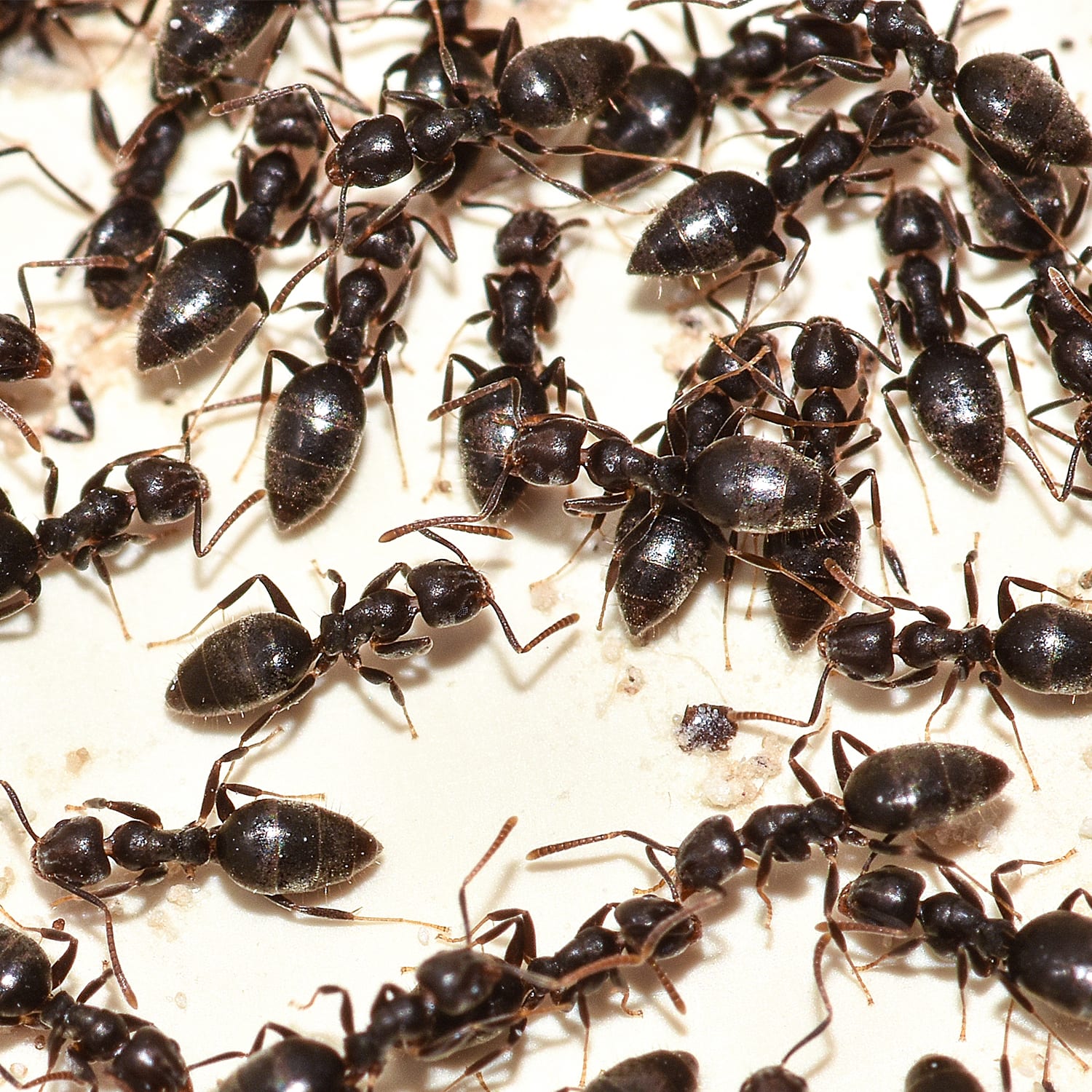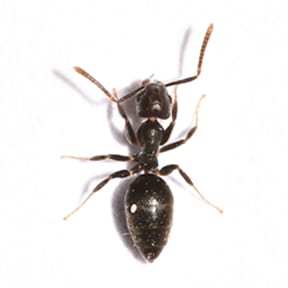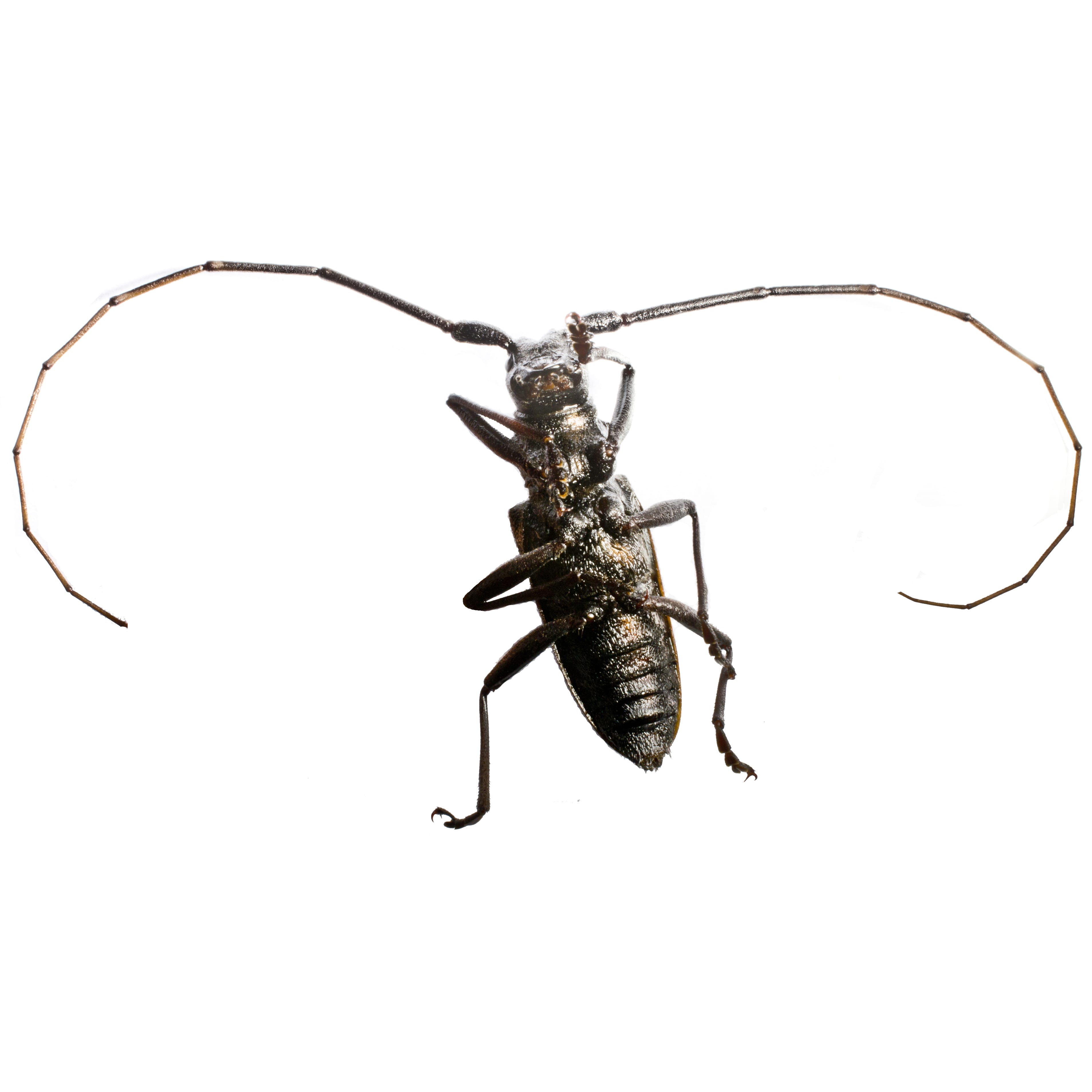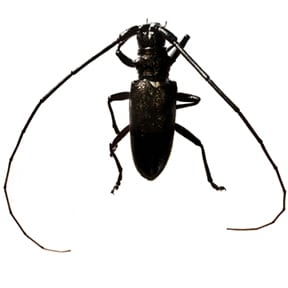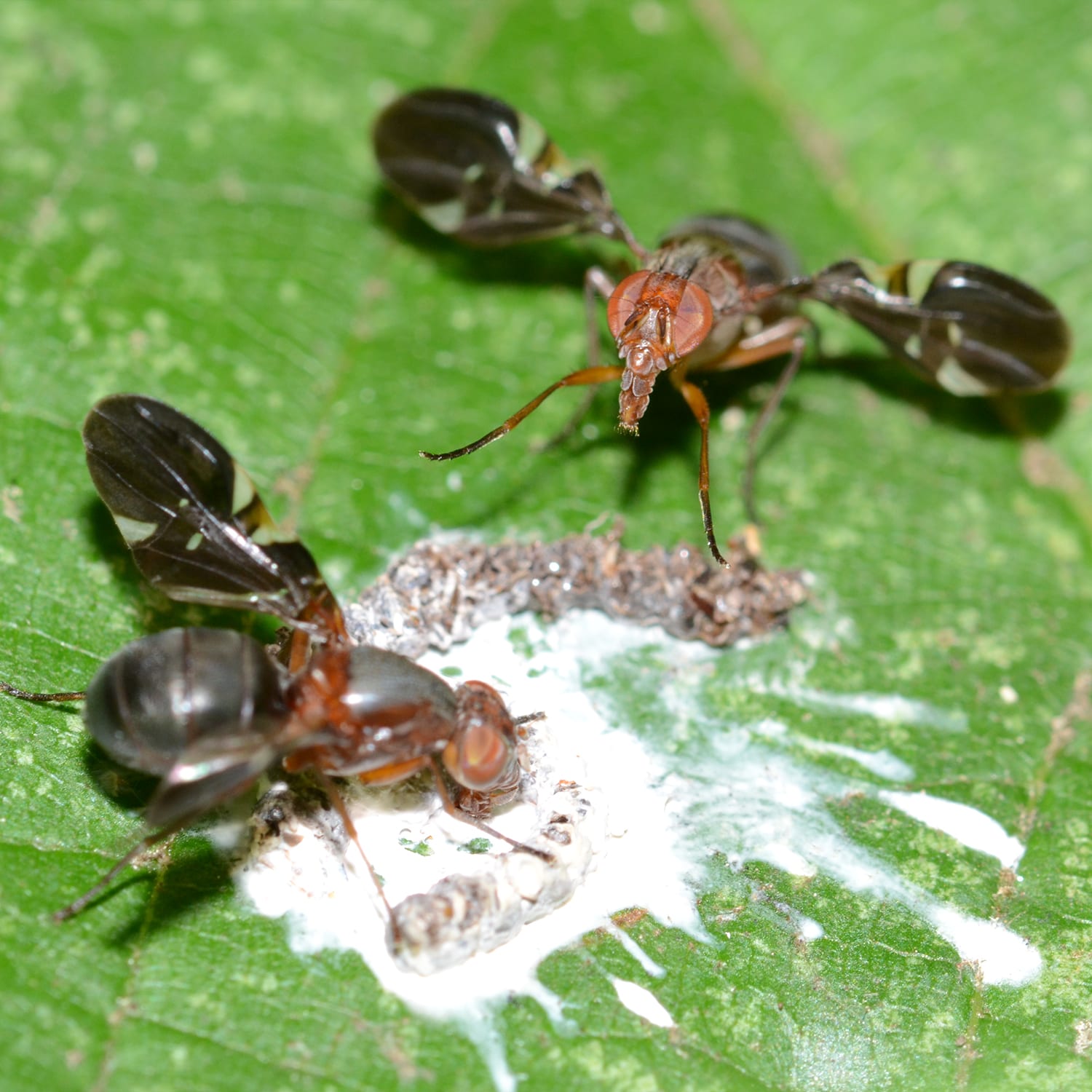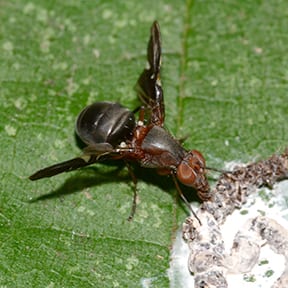More commonly called planthoppers, Acanaloniidae hold true to their name, as their most useful mode of travel is hopping from plant to plant. While they leap similar to grasshoppers, they also can walk, but they do so extremely slowly as not to attract attention from predators. Many species of planthoppers are plant-feeders, but relatively few are pests.
| Categories : |
Hemiptera
|
|---|
Ranging from 1/8 to 1/4 inch, acrobat ants can be black or brown in color. They gain their names from the way they raise their abdomen when disturbed. Acrobat ants can be commonly found nesting in rotting wood. They feast on a variety of foods, but aphids and mealybugs are especially common. Any rotten wood in decks, fences, or wood in and around your household can make for great nesting locations. To stop your home from becoming their next nest, get in touch with your trusted Indianapolis, IN pest control company for assistance.
| Categories : |
Ants
|
|---|
Referred to as the tiger mosquito, Aedes Albopictus is a relatively new species in North America. It has spread worldwide over the past few decades through trade and travel from Asia and carries many viral pathogens. Zika Virus, Yellow Fever Virus, Dengue Fever, and more are carried by the species. The white bands across its body make it easily identifiable, and they frequently feed on humans. If you want to keep your property mosquito-free, contact your local Indianapolis, IN pest control company.
| Categories : |
Mosquitos
|
|---|
Alates are a caste of termites. There are workers, soldiers, and alates. Alates—also called swarmers—are winged termites. They are reproductive termites that make use of their wings to explore new areas to start new colonies. One sign of a termite infestation is finding the discarded wings of alates on window sills and near light fixtures.
| Categories : |
Termites
|
|---|
Better known as the Woodland Malaria Mosquito, females prefer birds and mammals to feed on. This includes humans, and they are a major vector for malaria in North America. They also spread disease among deer populations. To protect your home and family from these pests, get in touch with a pest control company in Indianapolis, IN.
| Categories : |
Mosquitos
|
|---|
The Ant Mimic bug is a Hemiptera that looks and acts like an ant. There are many different varieties of these Hemiptera that are able to escape predators by mimicking ants. This peculiar behavior is carried out by many different creatures, such as Ant Mimic Spiders.
| Categories : |
Hemiptera
|
|---|
The Ant Mimic Spider is just as it sounds. It looks and acts like an ant—with similar coloring and even walking with its front legs raised like antennae. Their slender bodies cause them to produce fewer eggs, which means they lay more egg sacs than other types of spiders. If you’re being overrun by these ant-like spiders, give AAA Exterminating a call!
| Categories : |
Spiders
|
|---|
Serious pests of agriculture and gardening, aphids feed on plant life and reproduce rapidly. Many types of pesticides do not work on aphids, and they can become hard to combat for most homeowners quickly. Some methods of control involve introducing predatory ladybugs as well as hoverflies to your property. If you have an aphid problem you can’t seem to solve, contact your local Indianapolis, IN pest control company for help.
| Categories : |
Hemiptera
|
|---|
Typically between 2.2 and 2.8 mm long, Argentine ants are experts in squeezing into small places. Mulch and other ground debris are among their favorite habitats, and they can expand rapidly. Just ten ants can start new colonies that will quickly number in the thousands. The ants are omnivores and will eat almost anything they can find on under leaves and brush, but prefer sweet foods. To prevent their rapid spread from taking over your home, contact pest control professionals in Indianapolis, IN for help.
| Categories : |
Ants
|
|---|
Known commonly as the yellow garden spider, the Argiope Aurantia is prevalent throughout North America. This spider tends to be a homebody, spreading wide webs wherever it lives and rarely moving far away. They aren’t very aggressive creatures, but if disturbed, they may bite, which feels similar to bee sting.
| Categories : |
Spiders
|
|---|
under Aedes Albopictus
| Categories : |
Mosquitos
|
|---|
Known for the way they brutally kill their prey with their sharp beaks, assassin bugs can render extremely painful bites to humans as well! They are typically black and red and can have orange markings as well. They can be found around North America and are common in shrubs, garden plants, and ground cover. While they can bite humans, they are not aggressive unless bothered or handled. In fact, many gardeners encourage these bugs to make their gardens home due to how many other bugs they feed on!
| Categories : |
Hemiptera
|
|---|
Ever wonder where bed bugs got their name? Scientifically known as Cimicidae, bed bugs are attracted to the high levels of carbon dioxide which humans emit when we sleep. This is precisely why bed bugs are much more likely to bite during the night than during daylight hours. Bed bugs are most likely to bite their victims from the torso to the top of the body. In addition, bed bugs can be easily transferred from one area to another—so be sure and wash all clothes, sheets, towels, etc. when staying in a new location. Once an area is infested with bed bugs, it’s incredibly difficult to treat unless attended to by a professional. Here at AAA Exterminating, we have the powerful bed bug pest control you need to keep the bed bugs away for good.
| Categories : |
Bedbugs
|
|---|
Regarded as one of the most pervasive and worst ant species, big-headed ants are ⅛ to ¼ of an inch. They are reddish brown in color and come in two varieties, the major and minor workers. They are soil nesters and can commonly make a home under logs, rocks, or even planters. Their nests are often easy to spot, however, due to the large mound of dirt they create by excavating tunnels. If you spot a nest, call your local Indianapolis, IN pest control specialists to remove them.
| Categories : |
Ants
|
|---|
A species of aphid that feeds off of beech trees and their sap, Beech Blight aphids also are known as “boogie-woogie aphids” due to how they sway their bodies in unison when threatened. While their nickname is fun, the damage they can cause to your beech trees isn’t. While damage is typically small and isolated to particular branches, larger-scale damages have been seen. Ideally, you don’t want any damage to your trees, so to counter these aphids, contact your Indianapolis, IN pest control company.
| Categories : |
Hemiptera
|
|---|
The name for these venomous arachnids comes from the female’s tendency to eat the male after mating. They are widely feared as the most venomous spider in North America, as their bite is known to be 15 times more venomous than a rattlesnake bite. Death from a Black Widow Spider bite is very rare. However, reactions vary per individual based on the person’s sensitivity and health. If a Black Widow Spider is to venture into a house, it will probably be found in a basement, garage, or crawlspace. It is reminded that these occasions are rare. If you are keeping an eye out for these bugs, the females can be easily spotted. Known for their shiny black shell, they are identified by their infamous red hourglass marking.
| Categories : |
Spiders
|
|---|
There are over 80 reported species of Blow Flies in North America. They are metallic in appearance and can usually be found buzzing around any food you may have left out—especially decaying meat. They are most active during the day and are attracted to the light from windows. While they usually act as simply a nuisance in the home, they can also transmit diseases such as typhus and cholera.
| Categories : |
Flies
|
|---|
With a metallic green and copper appearance that distinguishes them from house flies, Bottle Flies are still as much or more of a nuisance. These pests feed on decaying material and can be found near trash cans, animal feces, or decaying flesh. They are a concern to human health as they can spread disease, and if you have a problem you should contact your pest control company in Indianapolis, IN as soon as possible.
| Categories : |
Flies
|
|---|
Brown recluse spiders can be a whitish, dark brown, or black-gray color and have a marking resembling a violin on their dorsal side. These spiders only have six eyes, as opposed to having eight eyes like most spiders. Brown recluse spiders are typically between 6-20 mm. These spiders inhabit dry and undisturbed areas, such as woodpiles, sheds, garages, cellars, closets, dressers and shoes. The spiders leave their webs to hunt for soft-bodied insects. Their venom is necrotic; its bite may require medical attention. If brown recluse spiders are found inside, consider contacting spider control in Indianapolis, IN.
| Categories : |
Spiders
|
|---|
Brown Widow spiders are similar to Black Widow spiders. The difference lies in their brown appearance, tan and brown striped legs, and the missing red hourglass marking on its back. Unlike Black Widows, Brown Widows tend to make webs in more open areas, increasing the potential for humans to be bitten. Keep these pests at bay with help from AAA Exterminating.
| Categories : |
Spiders
|
|---|
One of the few treehoppers that are pests, buffalo treehoppers can seriously damage fruit trees and young orchards. The bug gets its name from its resemblance to the American bison in shape, however, it is a bright green color to blend in with leaves. Those looking to protect their orchard from these pests should get in touch with their Indianapolis, IN pest control experts.
| Categories : |
Hemiptera
|
|---|
Carabus is a category of beetle that comprises a large number of different species all over the world. Typically referred to as the ground beetle, this little bug is largely harmless, but can become a nuisance if their population is not kept in check. Most species of ground beetle don’t bite, but it can be an unpleasant experience to suddenly catch one or two skittering across the floor or countertops of your home.
| Categories : |
Beetles
|
|---|
Carpenter ants range from 3.4-13 mm—making them one of the largest types of ants in the United States. The ants are most often black, but certain species can be brown, red, orange, or yellow. Their diet mainly consists of sweets, meats, and other insects. Carpenter ants create colonies indoors or outdoors where there is damp, hollowed or damaged wood. If carpenter ants have gained entry into your home, it is recommended that you seek professional ant control in Indianapolis, IN to assist in their removal.
| Categories : |
Ants
|
|---|
More popularly known as froghoppers due to their ability to jump great distances, Cercopidae are best known for their nymphs that emit foam as they feed on plants. While many of these species of nymphs cause little to no damage to plants and their foam they emit can deter other predators from feeding on these plants, a few species are serious agricultural pests. If your plants are being damaged by froghoppers, contact your local Indianapolis pest control company.
| Categories : |
Hemiptera
|
|---|
Known for their distinctive noise made by males for mating purposes, cicadas are easily identifiable insects across the globe. The North American species can live anywhere from 12-17 years and are often not harmful to people or property. However, during times when huge numbers of nymphs are being hatched, they occasionally cause damage to plants from feeding on roots.
| Categories : |
Hemiptera, Occasional Invaders and Misc
|
|---|
Cluster flies, or Pollenia rudis, generally make an appearance in autumn as they fly near the sides of the home looking for a place to stay for the winter. They can enter your home in great numbers if they find an entrance. While they will probably not reproduce in your home, on warm days they may crawl out from their hiding spaces looking for a way to get back outside.
Cluster flies are slightly larger than the common house fly and are a dull gray color with black markings and tiny yellow hairs on the thorax, which can give the cluster fly an overall yellow hue. For assistance identifying cluster flies and guarding your home against infestation, call AAA Exterminating. We proudly provide quality pest control in Indianapolis, Indiana.
| Categories : |
Flies
|
|---|
The Conehead termite is unique from other termites, since they forage above ground instead of tunneling. Although, they still build dark brown tubes and nests in wooden objects like trees and buildings. Their nests can be as large as 3 feet across, and they tend to spread quickly. Conehead termites are aggressive and can cause countless dollars of damage if not dealt with right away.
| Categories : |
Termites
|
|---|
Not a true weevil, Cowpea Weevils are actually part of the leaf beetle family and are found on every continent except Antarctica. They feed on beans and peas and can quickly ruin any gardener’s day. As a damaging agricultural pest, you should seek out professional pest control in Indianapolis, IN if you encounter them.
| Categories : |
Beetles
|
|---|
An agricultural pest found worldwide, the Crane Fly looks similar to mayflies. They feed on the roots and leaves of crops, which can seriously damage or destroy them. They are invasive in the United States, and their larvae can be found on fruits, vegetables, lawns, and ornamental plants. Get in touch with your local Indianapolis, IN pest control company if you spot these on your property.
| Categories : |
Flies
|
|---|
Culex is a genus of mosquito that transmits West-Nile Virus and encephalitis in the United States. They are some of the most common mosquitos encountered in major U.S. cities including Los Angeles. Culex mosquitos occur worldwide in places that aren’t in the extreme north of temperate zones. If you have a mosquito problem, call your local pest control company in Indianapolis, IN.
| Categories : |
Mosquitos
|
|---|
Dermestids feed on dry animal or plant material, such as skin or pollen, animal hair, feathers, dead insects, and natural fibers. They come in many forms and can cause major damage to natural fibers in homes and businesses. Keep these pests from laying waste to your home or shop by contacting your local Indianapolis, IN pest control specialists.
| Categories : |
Beetles
|
|---|
There is an urban legend of Earwigs causing people to become mad after it crawls into the brain. Though this pest may look creepy, they are harmless. Earwigs are known to have a brown or black shell with a hard pincher used to defend itself. They are nocturnal insects usually found outside but may come inside due to decayed matter or a source that is saturated with oil or grease. Other times, there may be an area that is extremely wet and humid that provides the perfect condition for Earwigs to congregate. If this does occur, find the source that is attracting the Earwigs and contact AAA Exterminating. We will take care of this for you! It also may be helpful to seal any cracks where Earwigs may hide.
| Categories : |
Occasional Invaders and Misc
|
|---|
The Eastern Subterranean termite is the most widely spread type of termite in North America. These pests will generally swarm during springtime and consume the inner, softer parts of trees and wooden structures, leaving a weak shell behind. Because of this, Eastern Subterranean termites can be hard to detect and very destructive without careful detection by a pest control professional.
| Categories : |
Termites
|
|---|
Field Crickets are most typically a nuisance when they gather in groups and perform their famous chirping songs. They feed on plant material, so if you have a garden or potted plants to protect, you’ll want to keep this particular pest at bay.
| Categories : |
Occasional Invaders and Misc
|
|---|
Fishing Spiders grow to be quite large, their legs stretching out 3 inches. These intimidating pests get their name from their affinity to water and predatory nature. They can hunt on land and under water, being able to stay underneath the surface for as long as 30 minutes! Fishing spiders can bite, so seek out the help of professional pest control to clear out these water-loving pests.
| Categories : |
Spiders
|
|---|
Flesh flies are often the first insects to be found on animal carcasses. They lay their eggs in decaying material and can often be found on dog excrement. While they don’t commonly come in homes or businesses in large numbers, places like butcher shops or dog kennels can potentially have problems with them. Anywhere animals are common can attract flesh flies, and dog and cat food is a favorite thing for them to feed on. To keep these pests away from your pets and property, make a call to your local pest control experts in Indianapolis, IN.
| Categories : |
Flies
|
|---|
Florida Carpenter Ants consist of many different species, and they are among the largest and most troublesome ants in Florida. Historically, these pests have accounted for ⅕ of calls from distraught homeowners seeking relief from trailing ants. Florida Carpenter Ants can swarm in large numbers, causing massive damage to your home.
| Categories : |
Ants
|
|---|
Formosan termites are regarded as the most aggressive type of termite, chewing through all types of wood and paper structures and objects. They even carry the nickname, “super termites.” Keep an eye out for the discarded wings of swarmers around window sills and light fixtures. Also, their tunneling through wood will cause it to make a hollow sound when tapped. They consume wood at such an incredible rate that your best chance at beating an invasion of Formosan termites is early detection by one of our pest control experts.
| Categories : |
Termites
|
|---|
For Fruit Flies (Drosophila Fly), there is nothing better than ripening fruits in the house, which they eat and then lay eggs on top of. Not surprisingly, they are named after what they are attracted to, but they may also be found in areas where there is moist and decaying food, such as the garbage can. Therefore, it is important to dispose of and clean any produce or food that is fermenting or rotting and move all fruits and vegetables into the freezer until the infestation disappears.
| Categories : |
Flies
|
|---|
Ghost ants are very small, typically coming in at less than 1/16 of an inch. Named after their pale bodies with dark heads, they can be very hard to combat once they’ve spread and created large colonies. They love to nest under items lying on the ground, and regular inspections are needed to keep up with their colonies and treatment. If you find ghost ants, don’t hesitate to call your Indianapolis, IN ant control professionals.
| Categories : |
Ants
|
|---|
Also known as torpedo bugs, due to their fast jumping when they are disturbed, Green Planthoppers are an invasive species. They can be damaging to native trees and crops, with their secretions being a host for mold and fungus that kills plants. Make a call to your local pest control company to take care of these pests if you encounter them.
| Categories : |
Hemiptera
|
|---|
The Harvestman Spider is more commonly known by the nickname, “daddy longlegs.” The Harvestman spider is largely harmless, being a beneficial predator and unable to bite or produce venom. But if you have a problem with Harvestman in your home, don’t hesitate to call a pest control professional for help.
| Categories : |
Spiders
|
|---|
Hoverflies are often mistaken for bees due to their looks, but they have more in common with them than just appearances. They feed on nectar and pollen and can help pollinate plants in the same way bees do. Hoverflies’ larvae also eat aphids, which cause millions of dollars in crop damage each year, making hoverflies even more beneficial. Unlike bees, hoverflies cannot sting and are harmless to humans.
| Categories : |
Flies
|
|---|
Also known as the figeater beetle, Iridescent beetles feed on nectar, pollen, and petals. They are often mistaken for green June beetles and like to live in moist areas. Their larvae eat decomposing organic matter and can feast on plant roots. This can cause garden damage to your home, ruining your hard work! If you want to protect your garden, call expert pest control in Indianapolis, IN for help.
| Categories : |
Beetles
|
|---|
Considered a pest worldwide, most of the United States has had Japanese beetles since their accidental introduction to the country in shipments in the early 1900s. They measure 10-15 mm and are brown and copper in appearance. Their larvae feed on the roots of many plants, and adults eat the leaves of plants. Both of these processes kill these plants and cause environmental damage. To help keep Japanese beetles from destroying your plants at home and in your community, contact pest control companies in Indianapolis, IN.
| Categories : |
Beetles
|
|---|
Also known as ladybugs, Lady Beetles can be beneficial to gardens and orchards, since they eat insects that can harm plants. However, nobody wants a colony of them inside their home. They often migrate into warm homes to hide themselves from the coming cold winter temperatures during the fall. If you don’t want these guests staying until Spring rent-free, get in touch with your local pest control company in Indianapolis, IN.
| Categories : |
Beetles
|
|---|
Leaffooted Bugs are becoming increasingly common problems in gardens in the United States. They feed on fruits and seeds and especially are drawn to pomegranates and tomatoes. Outbreaks of these insects can cause large amounts of damage to gardens, especially the earlier in the season they arrive. Contact your local pest control company in Indianapolis, IN to protect your garden and crops.
| Categories : |
Hemiptera
|
|---|
Leafhoppers, adults and nymphs, feed off the sap of aboveground plants. Some are serious crop pests and others transmit plant pathogens. They can be found throughout North America, in some areas year-round and others seasonally. Protect your plants by consulting with your trusted local pest control company in Indianapolis, IN on how to tell whether your leafhoppers are a species that need to be removed.
| Categories : |
Hemiptera
|
|---|
Otherwise known as lightning bugs or fireflies, these glowing insects can vary in size drastically by species. The males are luminescent while the females are not, but some entire species cannot glow at all. Those that are nocturnal have males that can emit light; however, diurnal species don’t need this skill and therefore do not have it. Larvae feed on other larvae, snails, and slugs while adults have a very diverse diet, and some do not even have mouths at all.
| Categories : |
Beetles
|
|---|
Typically small with large eyes and metallic looks on their bodies, long-legged flies are actually beneficial to your property. They prefer to live near streams, meadows, and woodlands and feed on pests such as spider mites, helping keep desired insects such as butterflies safe.
| Categories : |
Flies
|
|---|
The Mexican Red-Kneed Spider inhabits the dry areas in western Mexico. They tend to build burrows underneath convenient objects, where they retreat from the heat of the day. While not particularly aggressive, its hairs can cause unpleasant skin reactions in humans.
| Categories : |
Spiders
|
|---|
Millipedes are arthropods that are characterized by their two long leg segments. They may be found under dead leaves or grass clippings. They especially love damp areas because of the moisture it provides, so they tend to dwell in crawl spaces such as basements, ceilings, or sliding windows. Millipedes are beneficial because they remove dead plants and animals from the environment. However, they are a nuisance to have in the house. They are usually seen in the house during spring and fall and may enter the house through various openings like cracks under doors or windows. There are no obvious indicators of a millipede infestation, but millipedes are attracted to areas where decomposition is occurring, like under mulch or dead leaves. If a few millipedes are present, they can be removed by using a vacuum cleaner. It may also be helpful to dry areas where millipedes have been spotted.
| Categories : |
Occasional Invaders and Misc
|
|---|
These bugs can deliver a painful bite to whomever they land on, making them despised by their victims. Pirate bugs are actually available for purchase as pest control and are considered beneficial. During the year they protect crops by eating pests that feed on plants, but come Fall, they start biting humans. While their bites are harmless, they still hurt, and many are surprised that such a small insect can cause so much pain.
| Categories : |
Hemiptera
|
|---|
These beetles typically begin flying into homes in the fall months to stay for the winter. They return outside when the weather starts to get warm again in the spring. Consequently, it is typically the spring months in which a ladybug infestation is the most noticeable. They can be a big nuisance to a homeowner, and they have been known to secrete a yellowish liquid when disturbed.
| Categories : |
Beetles
|
|---|
The Orchard Orb Weaver, or Orchard spider, is named for its prevalence in orchards. It’s a very colorful, beautiful spider, and it tends to spread its webs with other Orchard spiders in a cooperative manner. They inhabit bushes, shrubs, and lower parts of trees and wait for prey to come to them. If you’re dealing with large amounts of these web-spreading pests, call AAA Exterminating today!
| Categories : |
Spiders
|
|---|
Much more commonly referred to as stink bugs or shield bugs, these are a season-long pest in orchards. While some of these species are beneficial to crops and are predatory to other pests, the species in North America are among some of the most common pests around. The brown marmorated stink bug is common in Indiana and is a nuisance not only because of crops, but because they invade homes in the Fall to avoid cold temperatures. Contact your local Indianapolis, IN pest control company for help with stink bugs and more.
| Categories : |
Hemiptera, Occasional Invaders and Misc
|
|---|
Covered in a mealy or waxy substance, planthoppers are known for their great leaping ability. They can range from 1-5 cm in length and come in a variety of colors and appearances, though most mimic some sort of foliage from their environments. These are not considered major pests and usually don’t cause damage to crops.
| Categories : |
Hemiptera
|
|---|
RIFA’s, or Red Imported Fire Ants, have become a major nuisance in the United States since becoming accidentally introduced from South America. They can range greatly in size and are known for their extremely painful, stinging bite. They are red in color and create large colonies that can span multiple properties. Don’t wait until it’s too late to counter their spread on your property, contact your local pest control in Indianapolis, IN.
| Categories : |
Ants
|
|---|
Living in deciduous forests from the Midwest to the East Coast, the appearance of these beetles makes them easily identifiable. A bright blue-green color with long legs, these bugs can often be found in sunny patches along the forest floor. They can be found hunting ants, spiders, and caterpillars around logs, and their larvae feed on arthropods such as pill bugs.
| Categories : |
Beetles
|
|---|
While not being any physical threat to humans, Snails are a real nuisance when it comes to the vegetation in and around your home. They thrive in areas with plenty of moisture, and they rarely come out on sunny days, as they are always struggling to retain body moisture.
| Categories : |
Occasional Invaders and Misc
|
|---|
These termites are one of the most destructive, causing 95 percent of all termite-oriented damage in North America. These pests live in the earth under and around your home. They can enter a household through the wood that is touching the ground or by making their own passageways. Their paths usually consist of mud tubes that allow them to infest the wood of your house. Any cracks in your home can also serve as a point of entry for these pests. Beyond destroying your home, these termites will also devour paper products and other plant-based items you may have.
| Categories : |
Termites
|
|---|
The Tawny Asian Ant is a type of crazy ant. (Yes, you read that correctly!) Tawny (crazy) Asian Ant have become quite the nuisance in the Southern US, where they are most prevalent. They tend to swarm in large numbers, often displacing other ant species. With these ants present, it can often be unbearable to spend any time outside—and it can be downright dangerous for animals. Definitely seek help from professional pest control to be rid of this awful pest.
| Categories : |
Ants
|
|---|
Also known as pavement ants, Tetramorium ants are introduced pests in North America and are native to Europe. They are dark brown to black and typically around ⅛ of an inch long. These ants eat almost anything and usually nest in ground-level masonry but can make a home out of anywhere in your home. If you want to kick out these uninvited guests, get in touch with your ant control specialists in Indianapolis, IN.
| Categories : |
Ants
|
|---|
The Tiger Centipede is most commonly a resident of the American Southwest and Northern Mexico. These centipedes are venomous and cause a painful sting when they bite. This can be problematic with small children and people with allergies. Those that are bitten should be closely watched, and medical attention may be necessary. Contact AAA Exterminating if you suspect an infestation.
| Categories : |
Occasional Invaders and Misc
|
|---|
Trap Jaw ants use their jaws to hunt and kill their prey. They live in warmer subtropical and tropical climates. They are dark brown in color and are 2-3 mm in size. They love to nest in homes and gardens, meaning you shouldn’t hesitate to contact your local Indianapolis, IN pest control company to keep them out of yours.
| Categories : |
Ants
|
|---|
At 7-12 mm long, twig ants are larger than most ants. They can often be found feeding on vegetation or foraging for live insects. They are dark-orange with dull shading and look similar to wasps in appearance. Look for help from professional pest control in Indianapolis, IN if you encounter these in or around your home.
| Categories : |
Ants
|
|---|
Commonly less than 6 mm and herbivores, weevils can wreak havoc on agriculture. They damage and kill crops, making them a pest all around the world. Rice and cotton are the most common crops they damage, with their larvae ruining many cotton crops worldwide. If you want to save your crops from the damage of weevils, look to your Indianapolis, IN pest control company for help.
| Categories : |
Beetles
|
|---|
Though they may not look or be as friendly as ladybugs—in fact they are quite brutal hunters—wheel bugs are just as beneficial. These insects are some of the larger terrestrial bugs in North America, and they eat many of the most common garden and crop pests. They hide as much as possible in dark or shady areas of the garden or yard and hunt during the day. Gardeners must be careful using wheel bugs as pest control though, as they also feed on beneficial insects like lady beetles and honey bees in addition to unwanted pests.
| Categories : |
Hemiptera
|
|---|
Named due to their light colored feet on their dark bodies, white-footed ants are commonly around ⅛ inch in diameter. They can thrive in urban or rural environments and prefer nesting in moist places in or around the home. They will often invade homes looking for sweet liquids and water and can become a nuisance quickly. Contact your trusted Indianapolis, IN pest control company to keep these little troublemakers out of your house.
| Categories : |
Ants
|
|---|
A common wood-boring beetle, the white spotted sawyer can ruin trees’ quality for the logging industry. While some live in areas where wildfires have come through and altered the landscape, many live in forests boring into lumber. Watch for these in boreal forests, as they can cause millions of dollars in damages each year.
| Categories : |
Beetles
|
|---|
Also known as picture winged flies, these flies are most easily identifiable by their unique dark brown wings. They feed on decaying plant material and can be found in forests, fields, swamps, and landfills. Winged flies also can be found feeding around locust trees.
| Categories : |
Flies
|
|---|
Ever see a massive spider and assume it was a tarantula? There is a substantial chance that it was actually a wolf spider. Wolf spiders are often mistaken for tarantulas due to their large, hairy bodies. Despite their intimidating presence, these arachnids come in handy when dealing with other pests. Naturally a hunter, the wolf spider pounces on its prey instead of using a typical spider web to ensnare insects. They will consume things like grasshoppers, beetles, and even other spiders. It is uncommon for wolf spiders to bite a human unless threatened. The bite will not usually affect a healthy adult; however, if it bites a child or individual with a weak immune system, effects may be more serious. Wolf spiders are found in areas like leaf piles, tall grassy clearings, and under lumber or rocks. To escape the extreme weather, they may wander into your home. If you find that you have a wolf spider predicament, don’t hesitate to call AAA!
| Categories : |
Spiders
|
|---|
A nocturnal hunter, the Yellow Sac spider rests in a sac during the day. This spider is a particularly hazardous pest due to its tendency to bite humans. Yellow Sac spiders account for the majority of spider bites in humans. These bites are not particularly dangerous, but they do produce large, red sores followed by white pustules. Don’t hesitate to call AAA Exterminating to rid your home of this troublesome pest.
| Categories : |
Spiders
|
|---|
 AAA Pest Blog
AAA Pest Blog
Bed Bugs Aren’t Just at Home: How They Travel and How to Stop Them
Learn About Bed Bugs When people think about bed bugs, they often associate them with unclean homes or hotels. However, these pests don’t discriminate-they can be found in many places…
Read MoreProtect Your Home from Winter Invaders: Why AAA Exterminating, Inc. Is the Pest Control Company Indianapolis, Indiana Trusts
Winter in Indianapolis brings cozy nights by the fire, warm mugs of hot chocolate, and—unfortunately—unwanted houseguests of the six-legged variety. When temperatures drop, pests like rodents, cockroaches, and spiders seek…
Read MoreKeep the Holiday Cheer – Not the Pests! with AAA Exterminating Inc.
As the holiday season arrives, our homes fill with warmth, decorations, and delicious treats. Unfortunately, the same cozy atmosphere that welcomes guests can also attract some unwelcome holiday visitors—pests! At…
Read More

